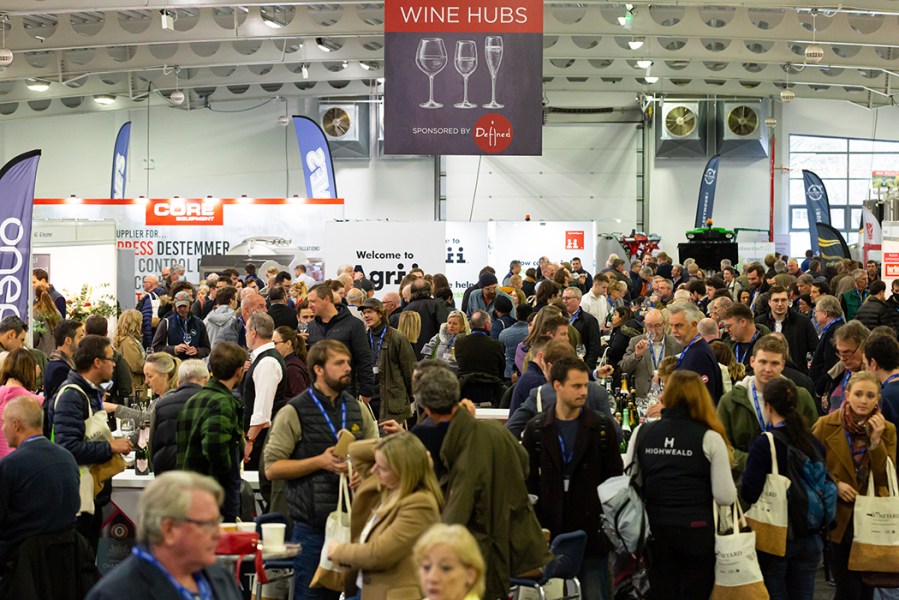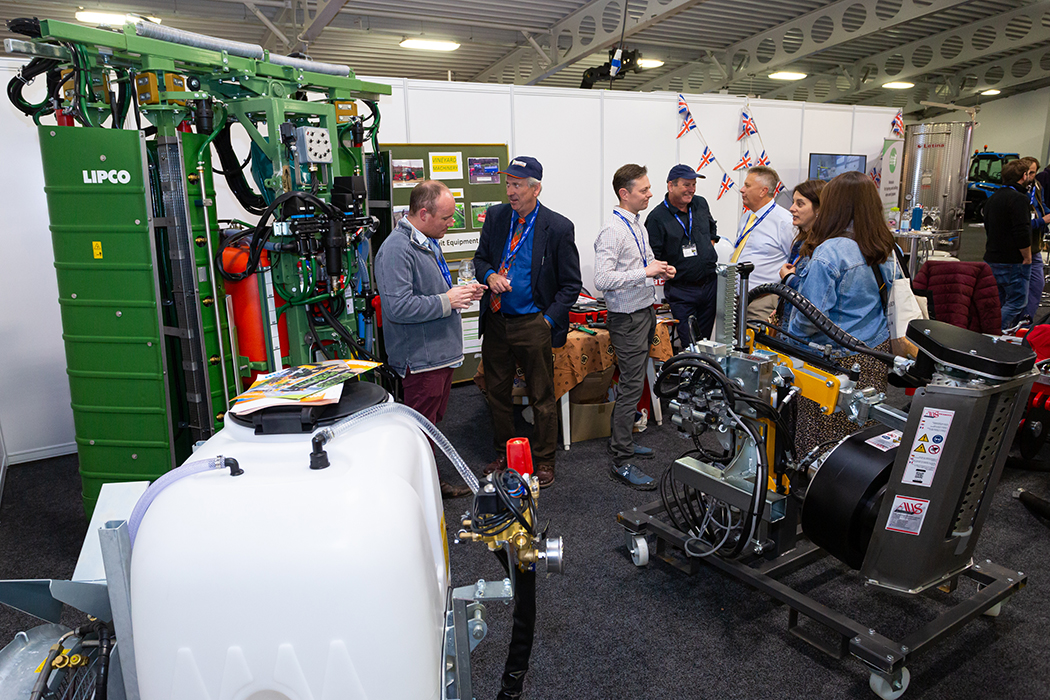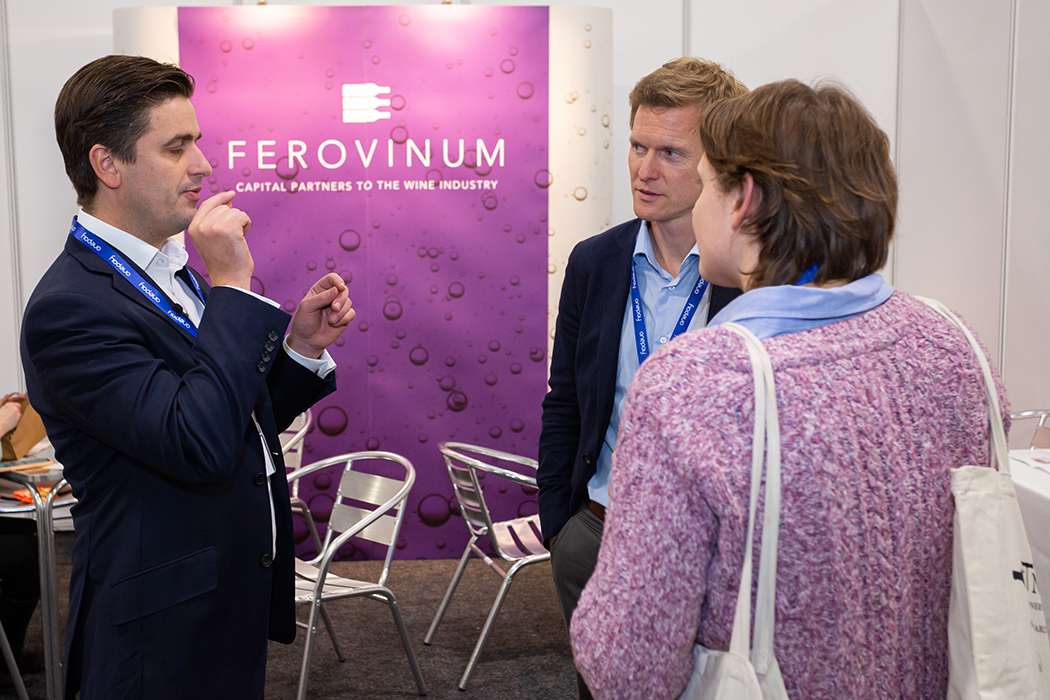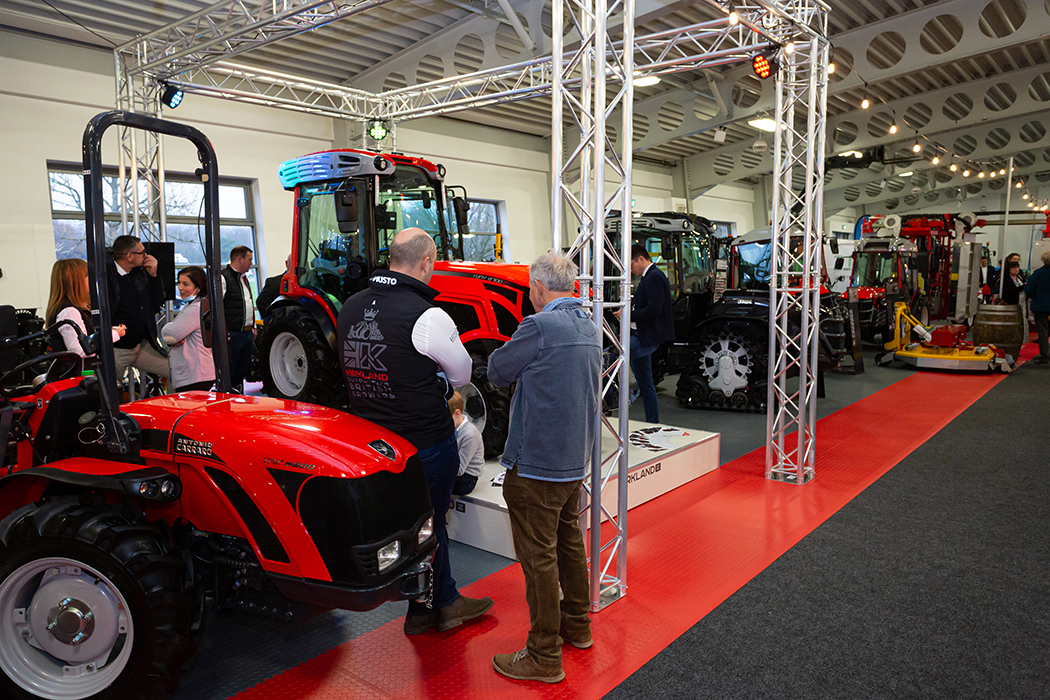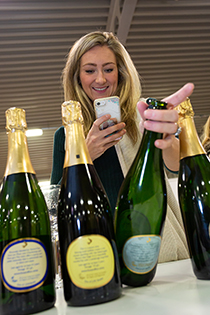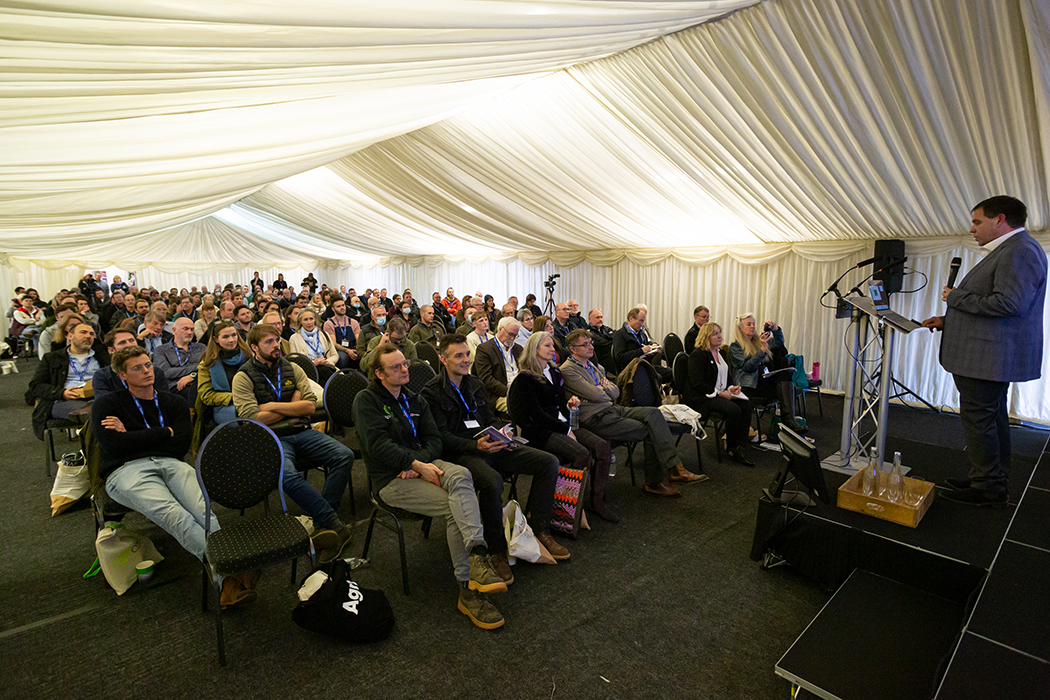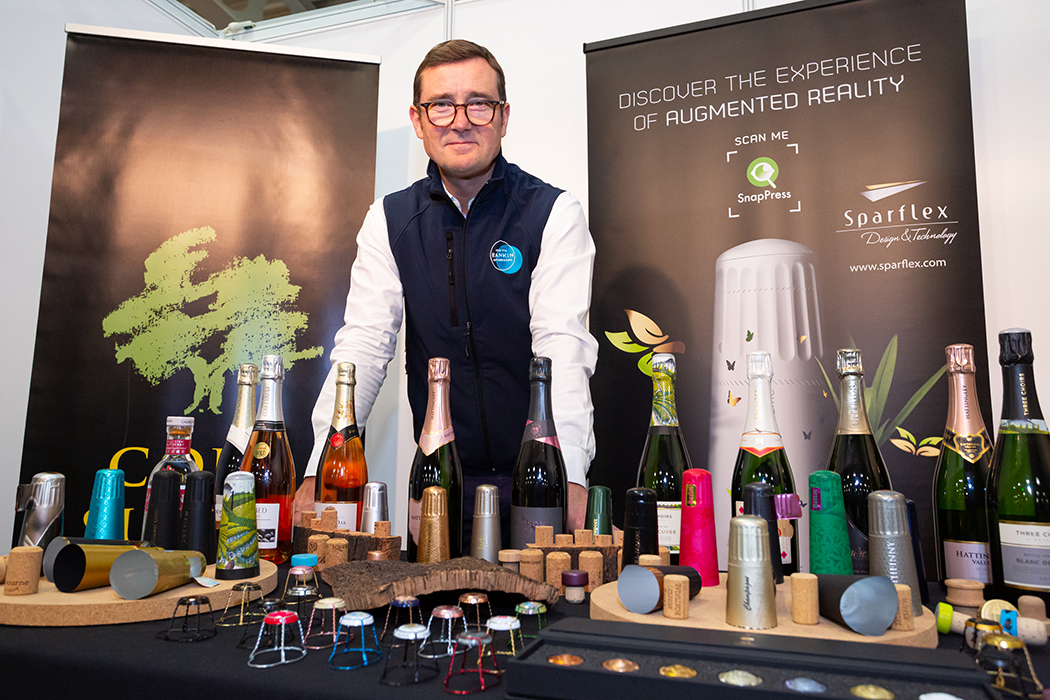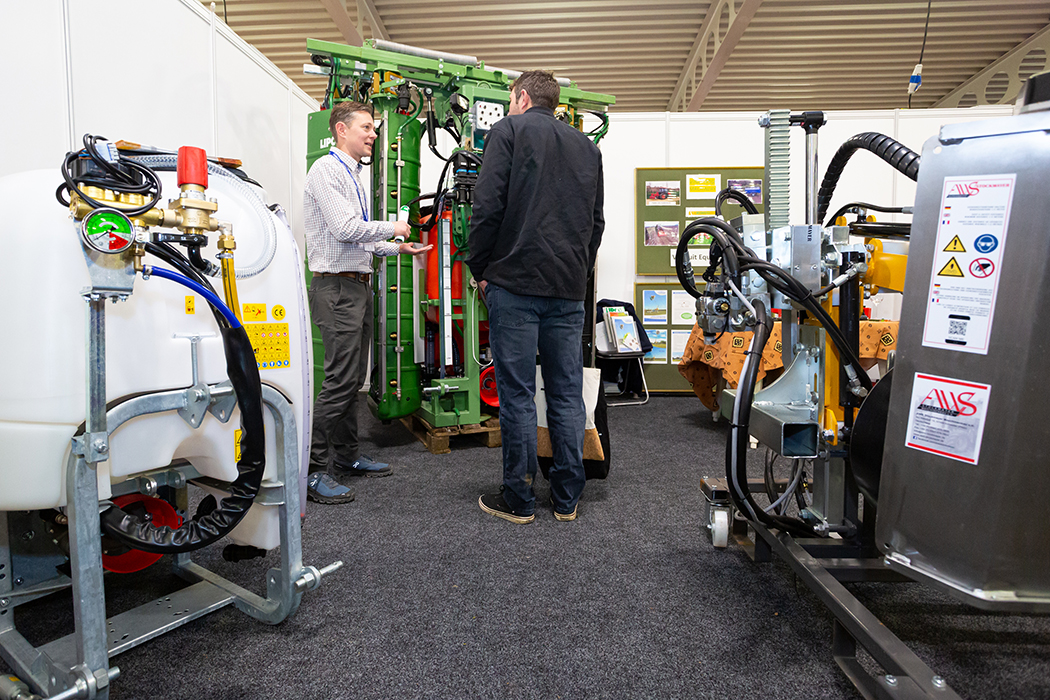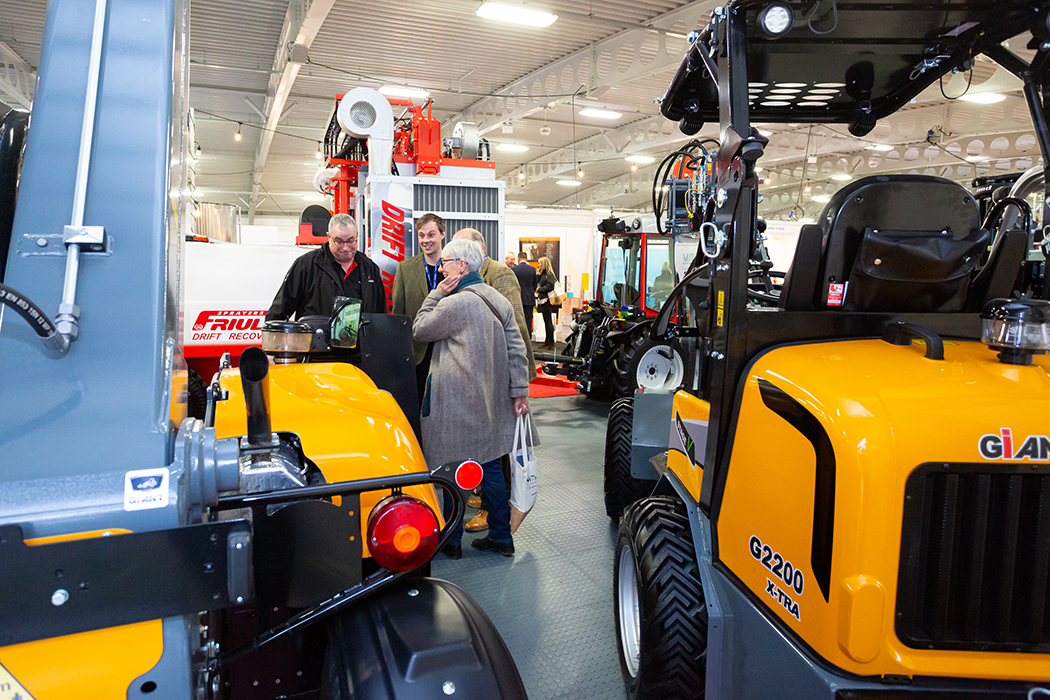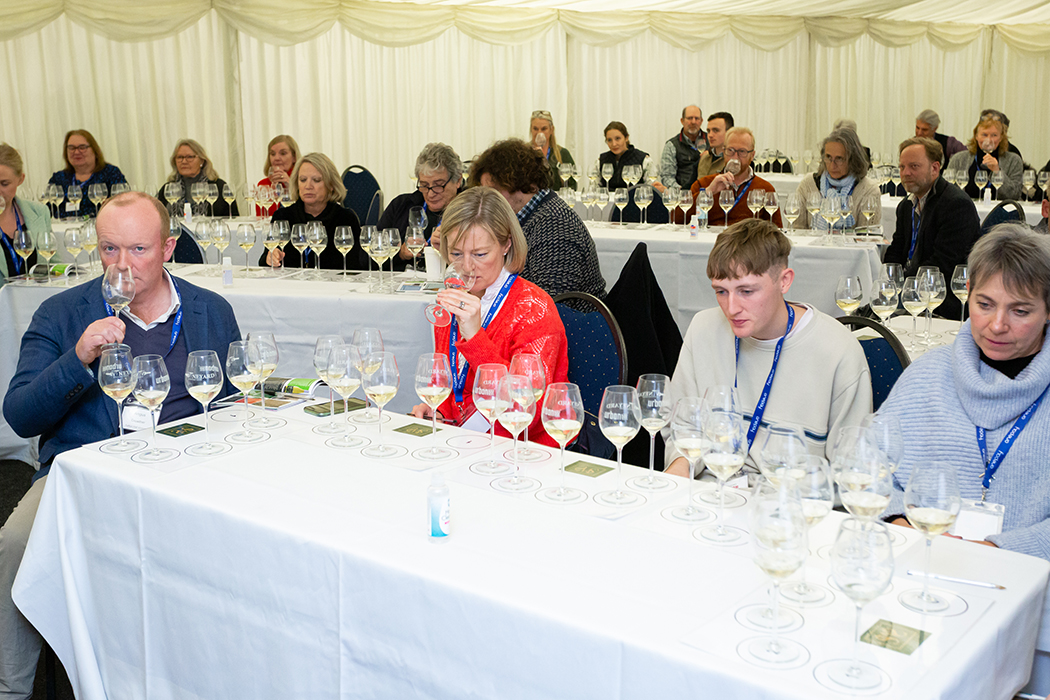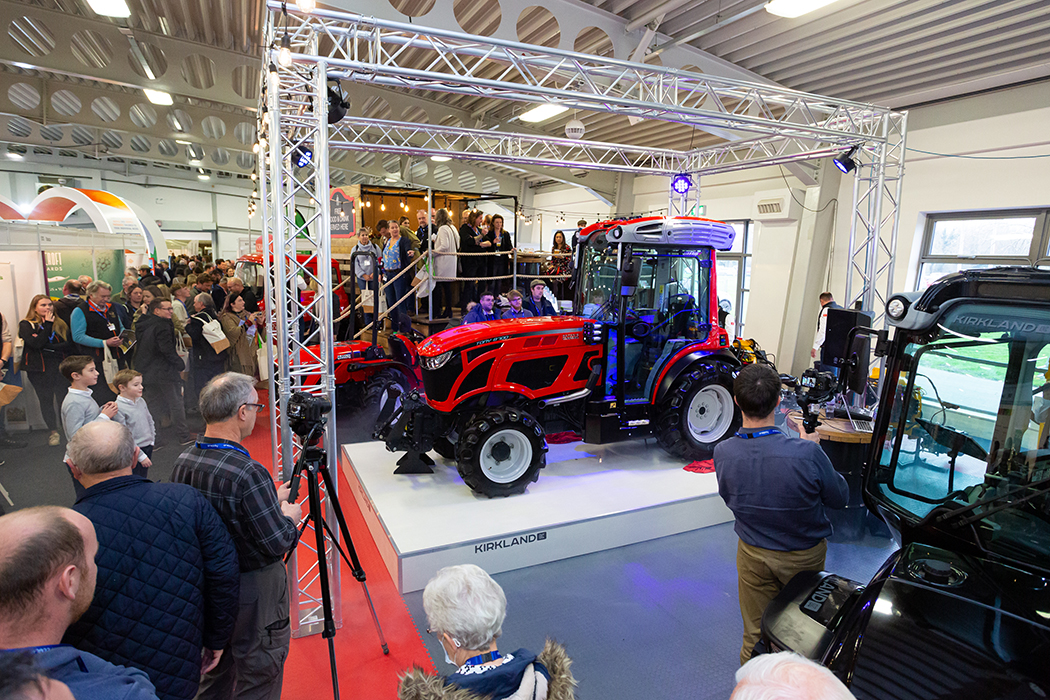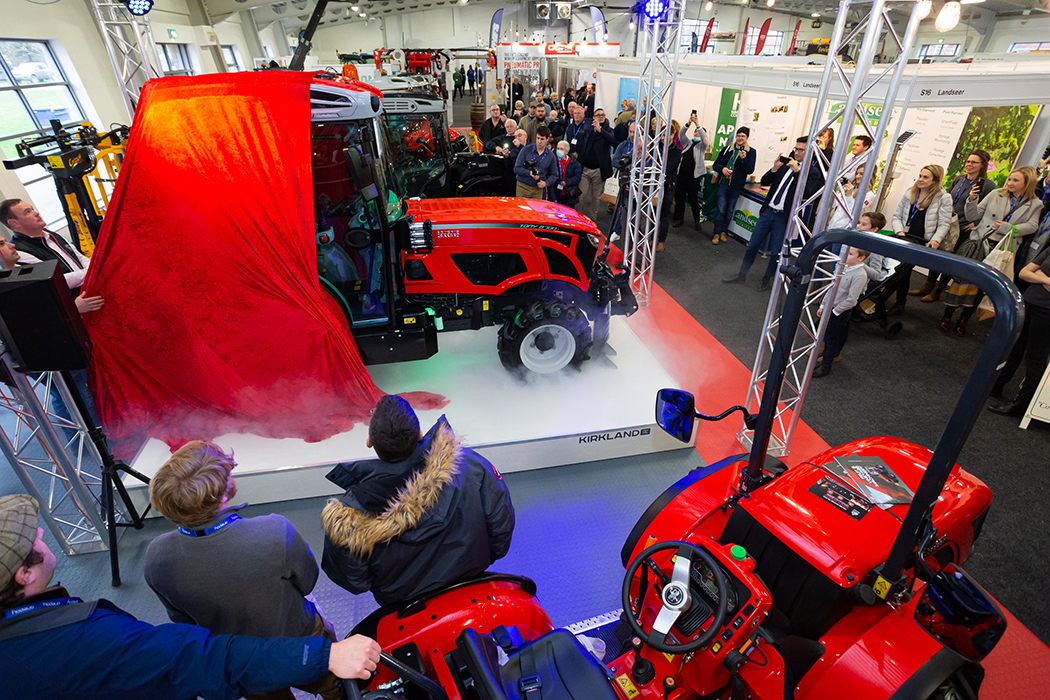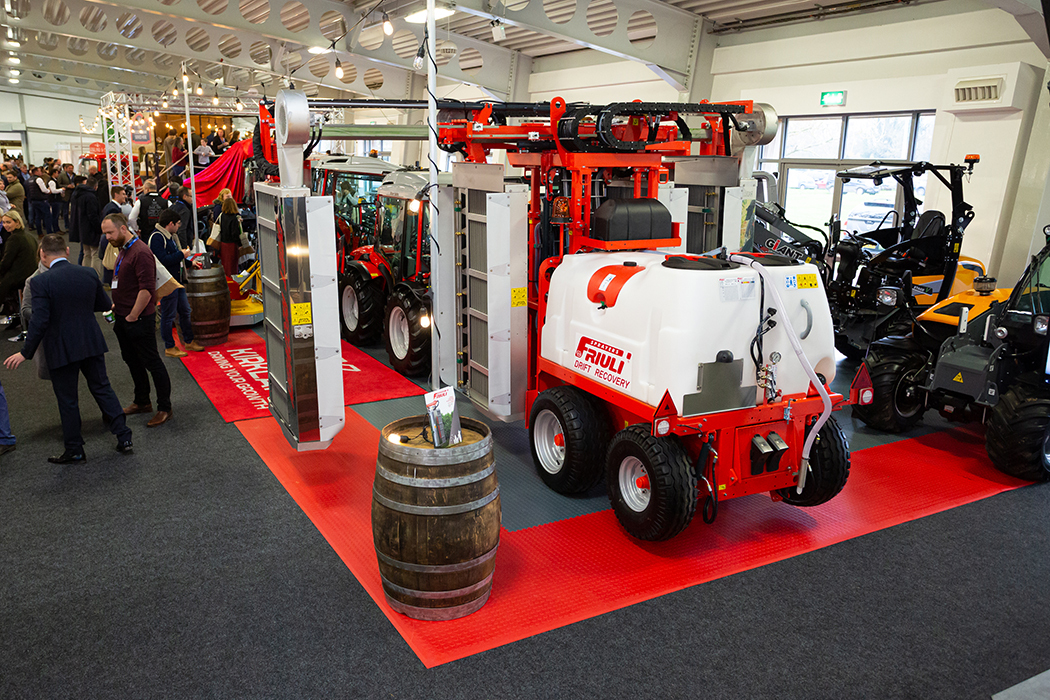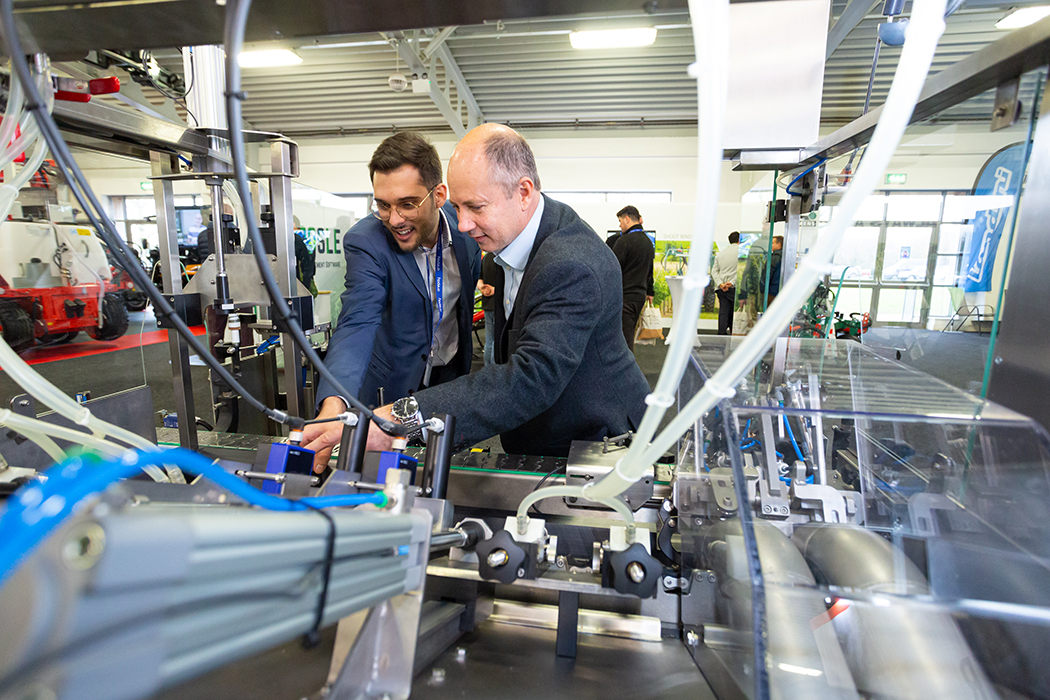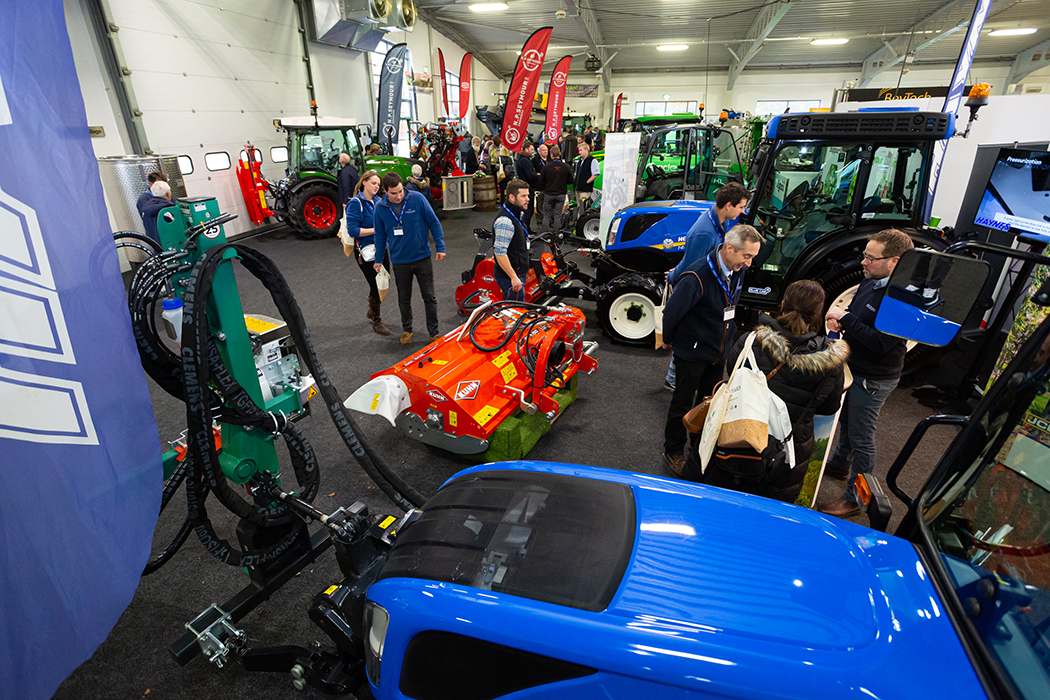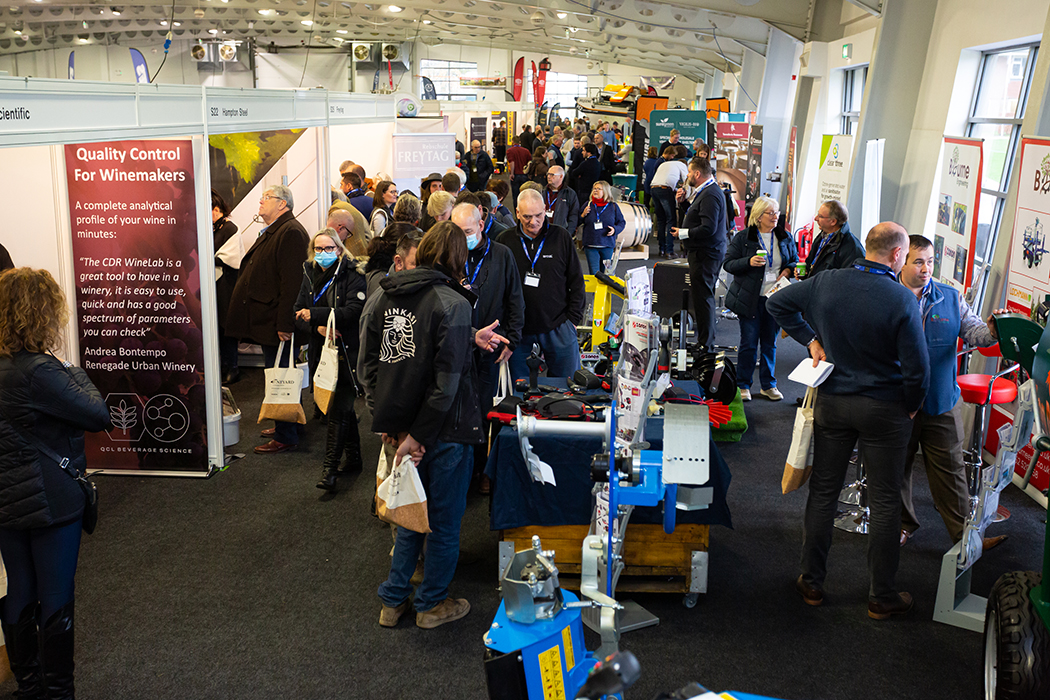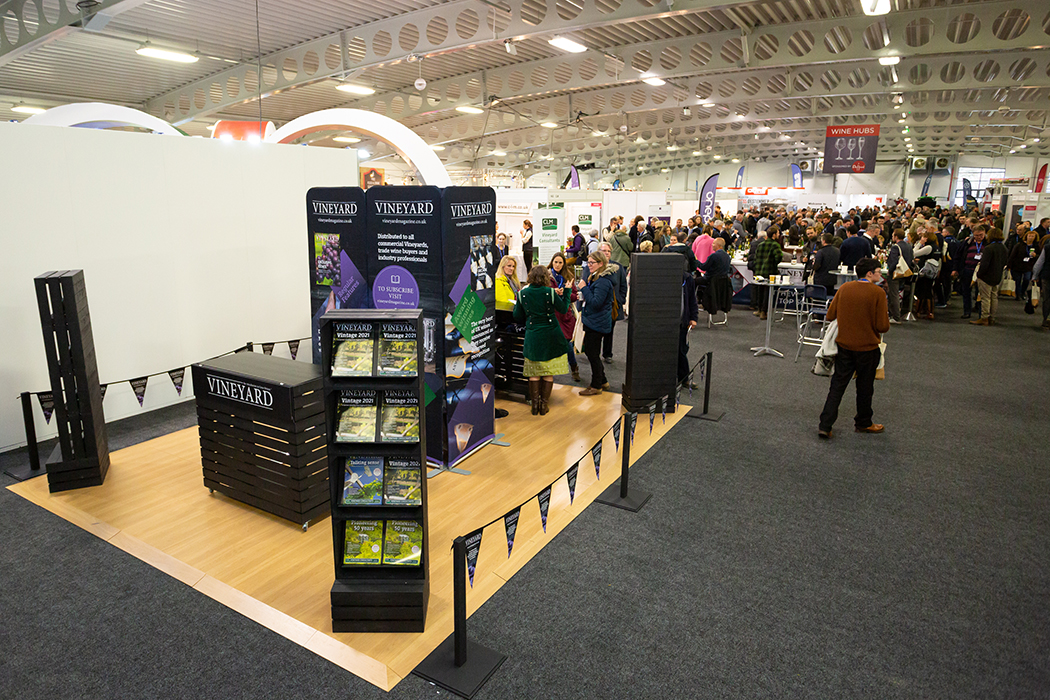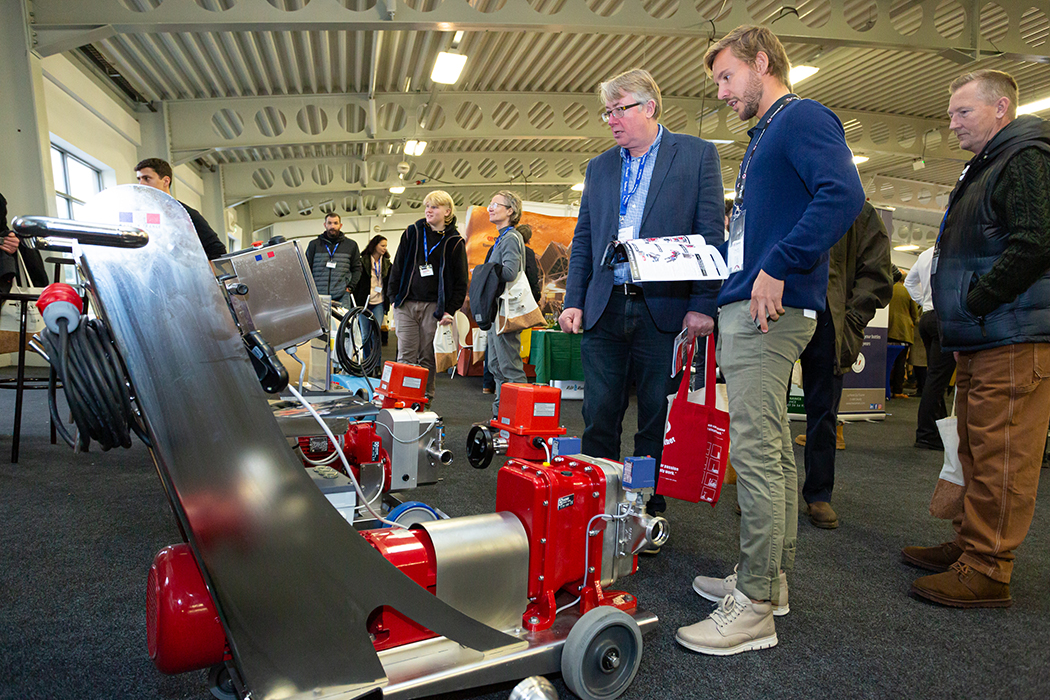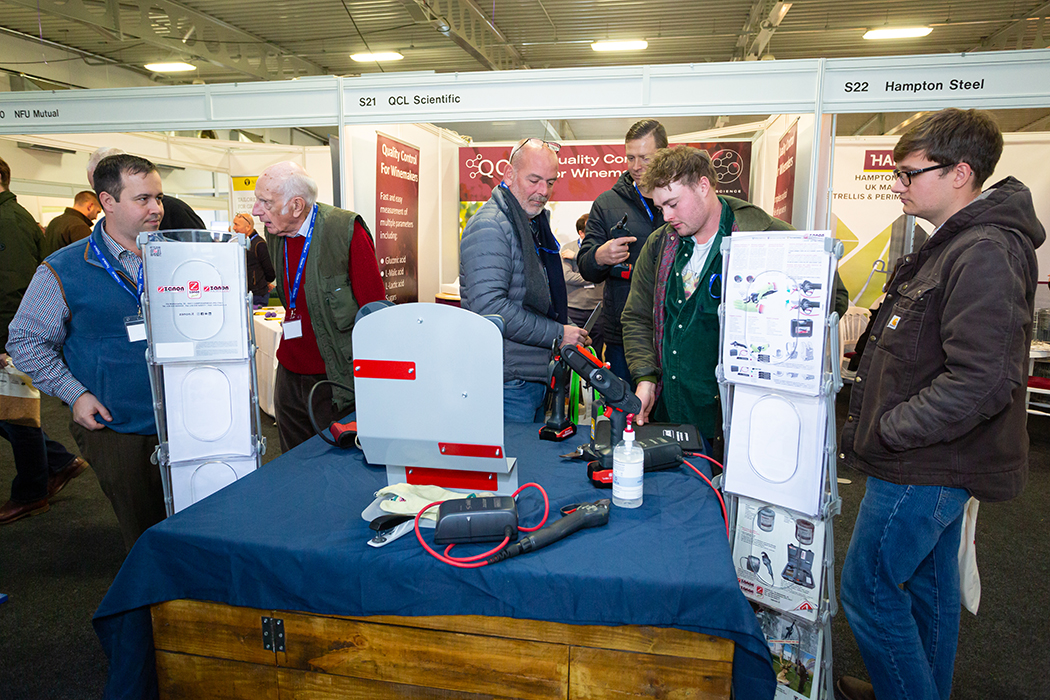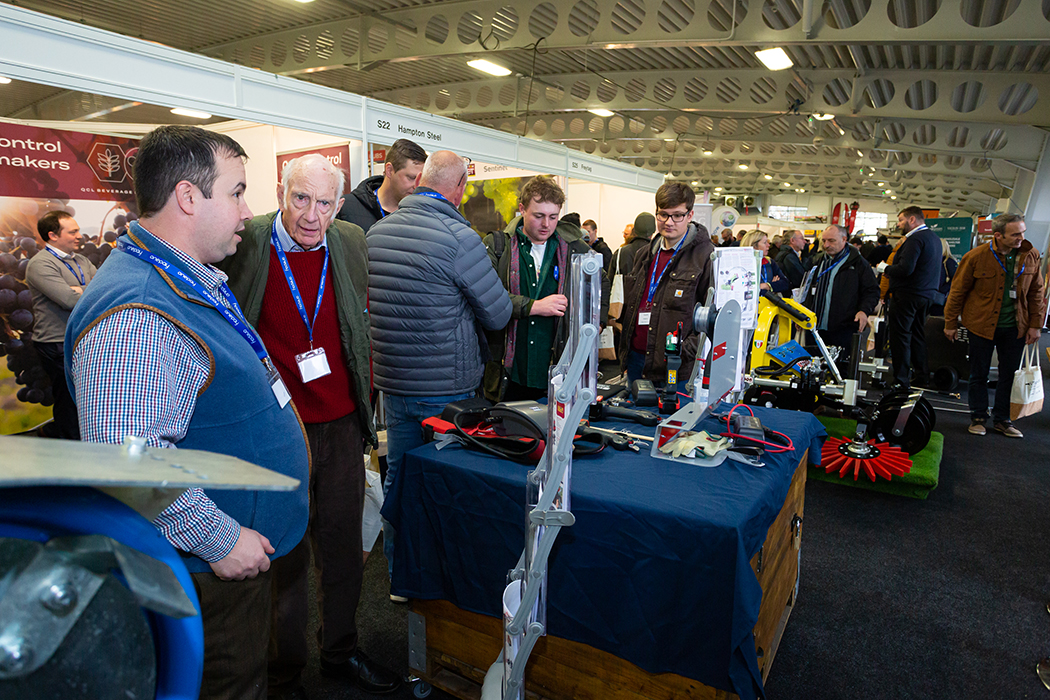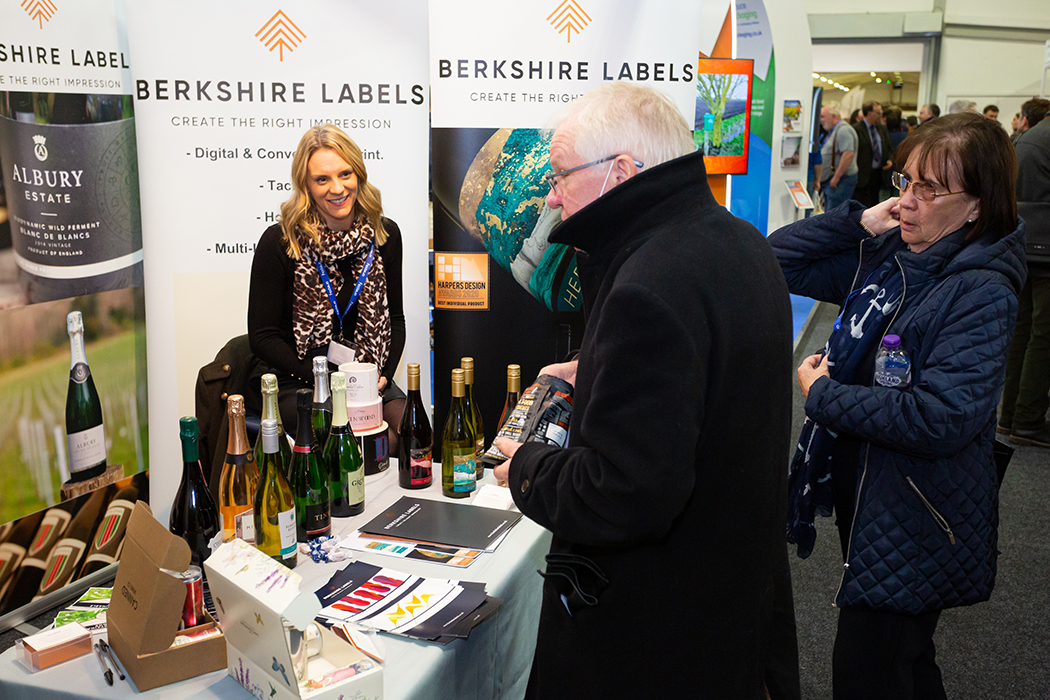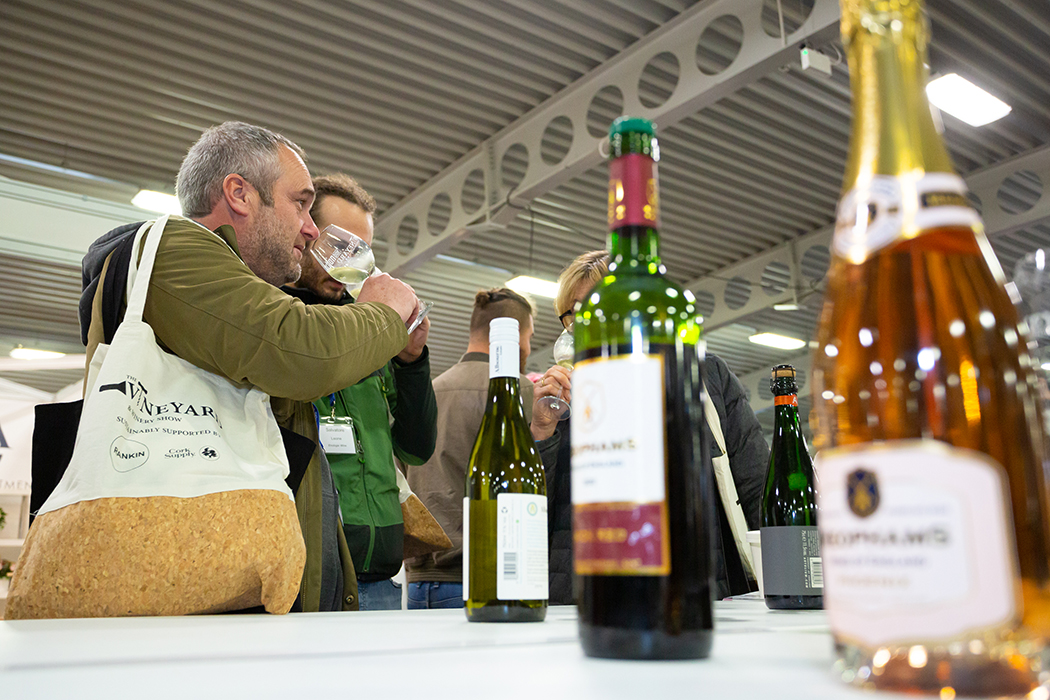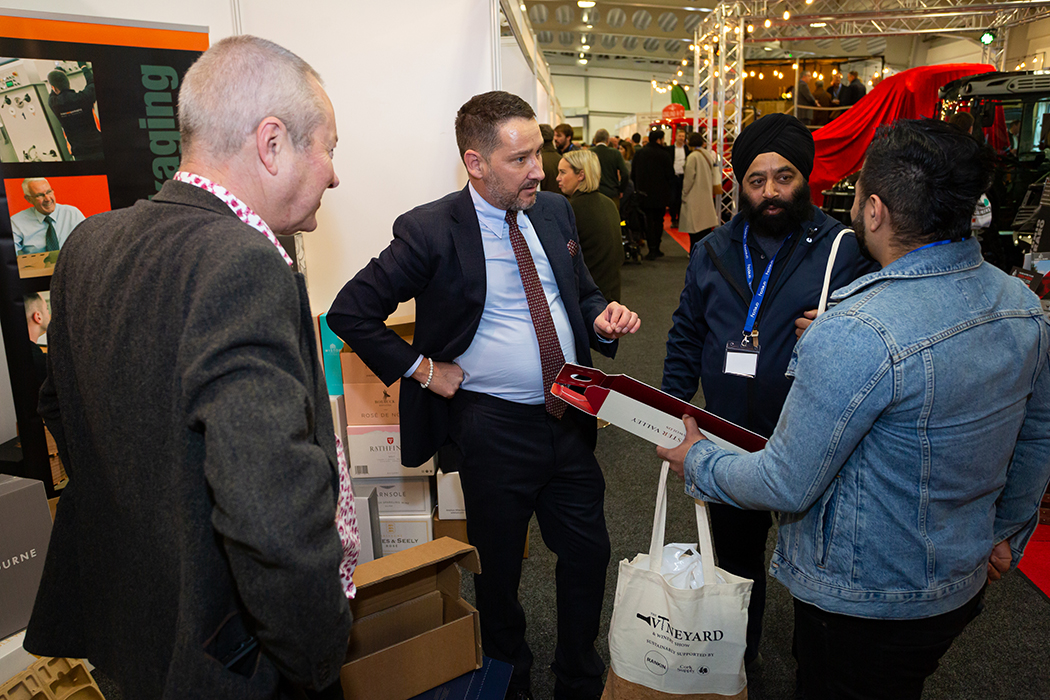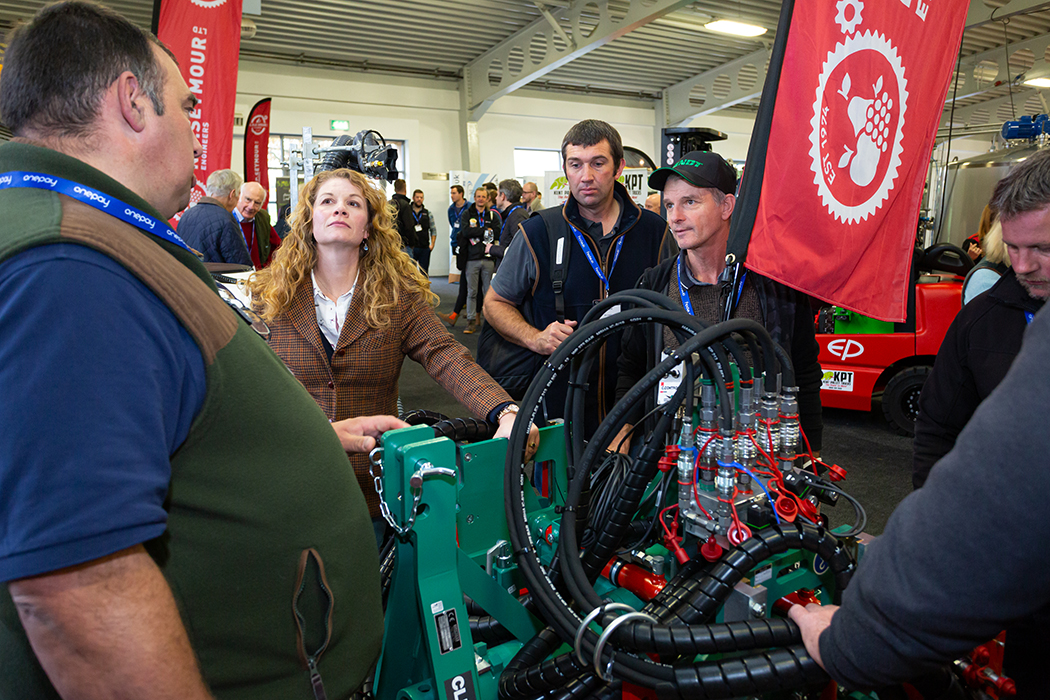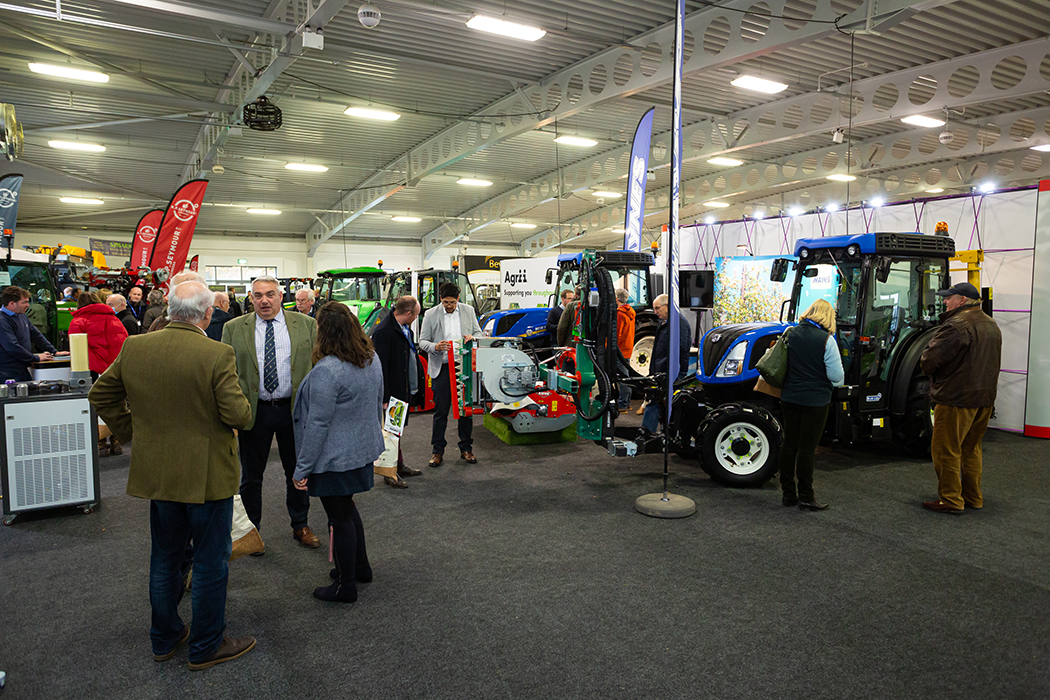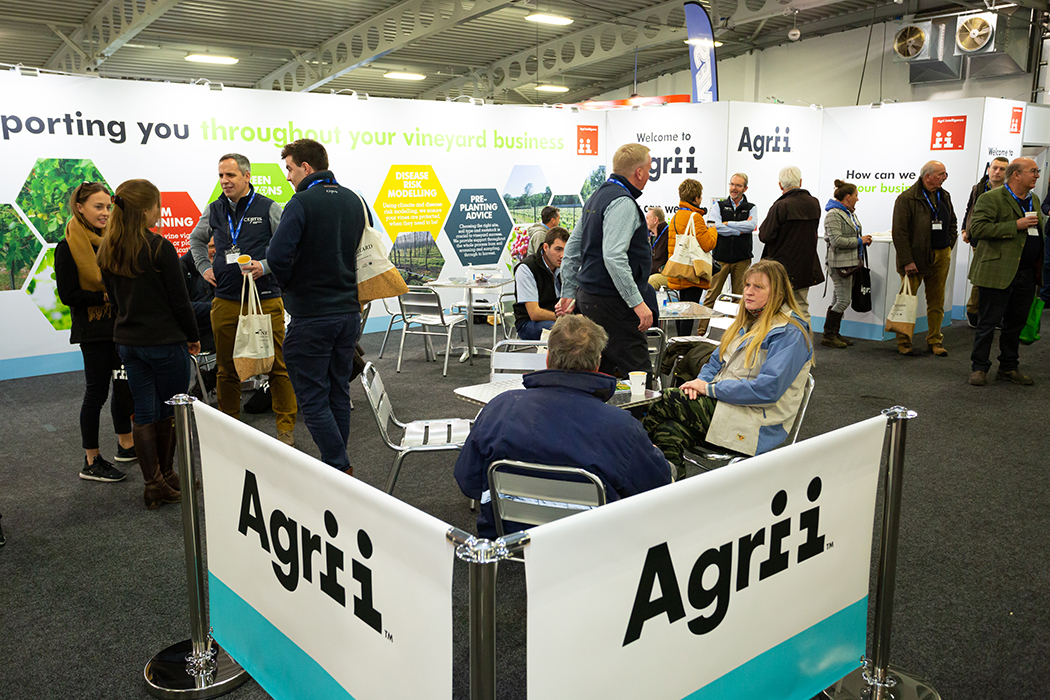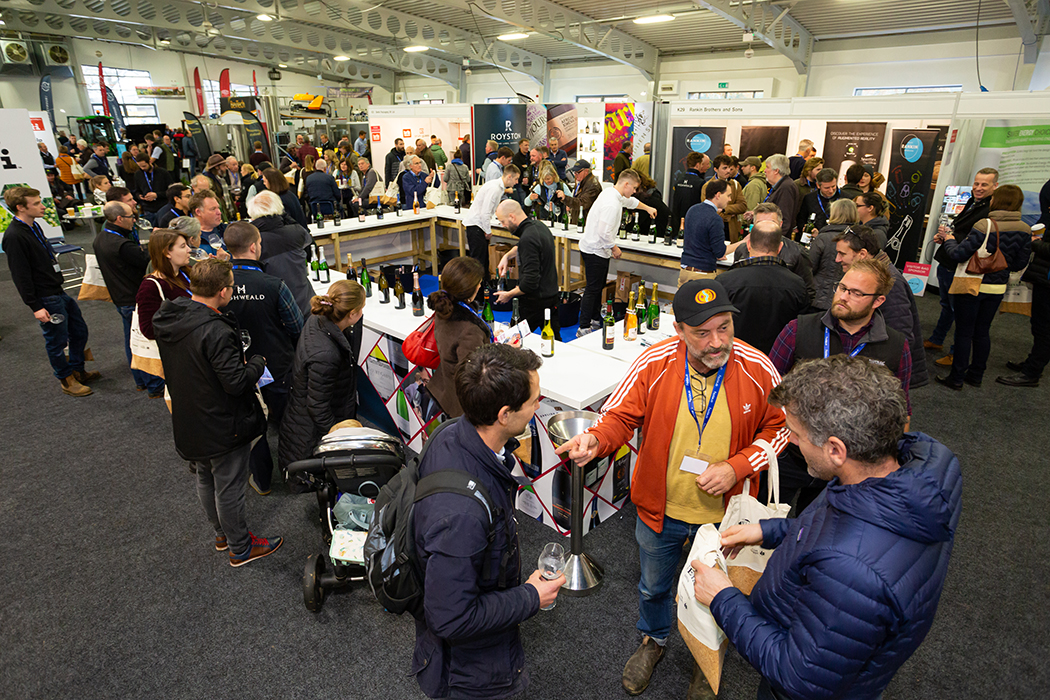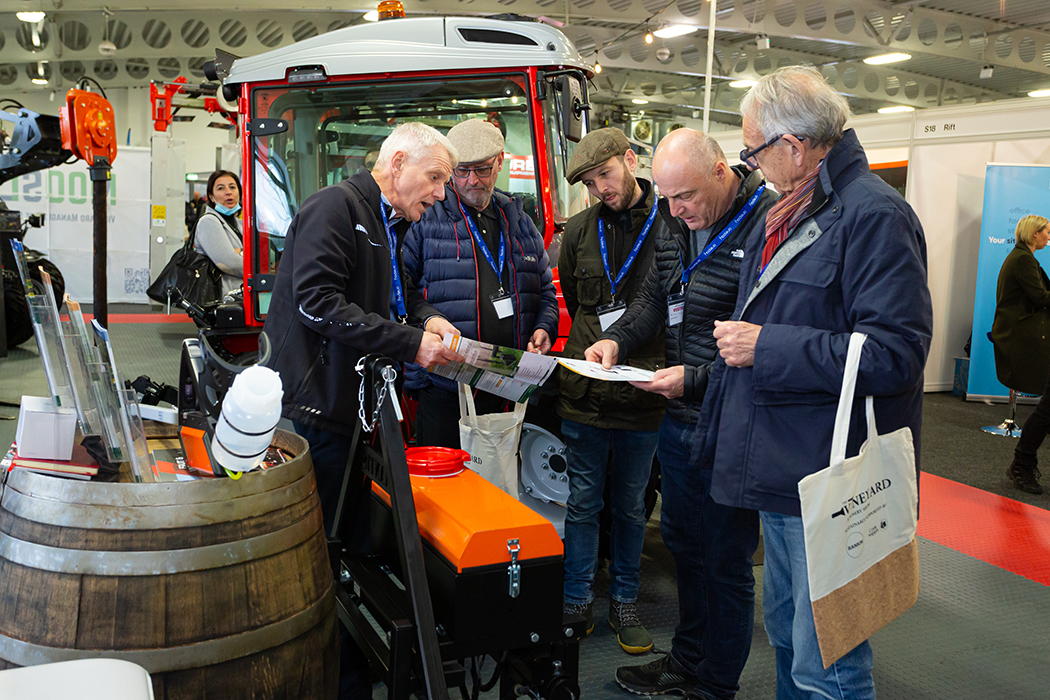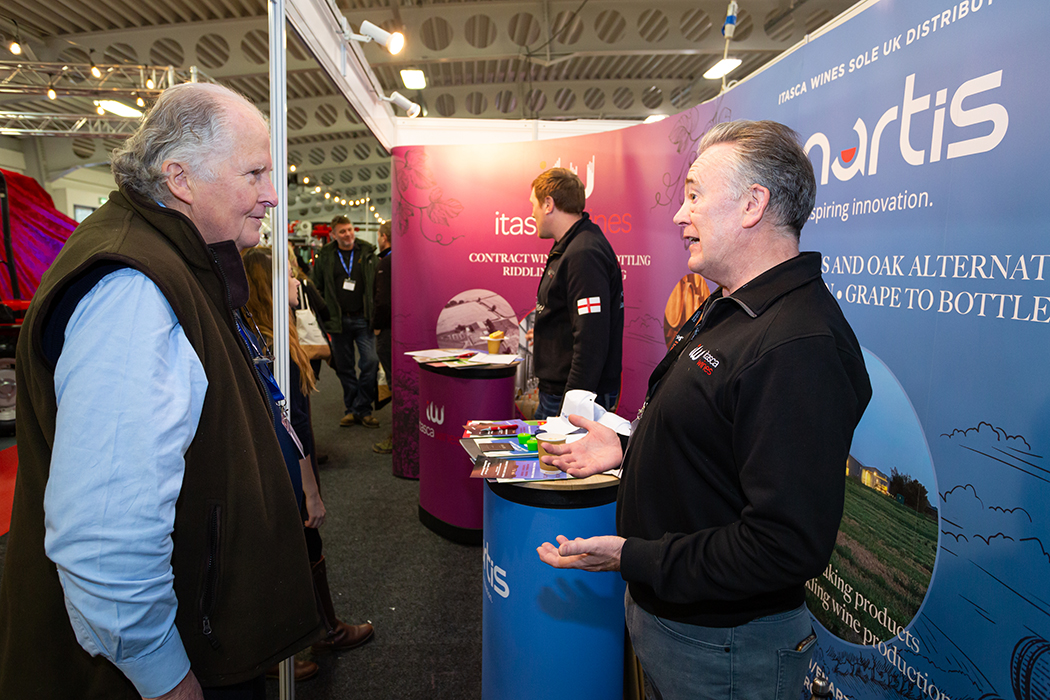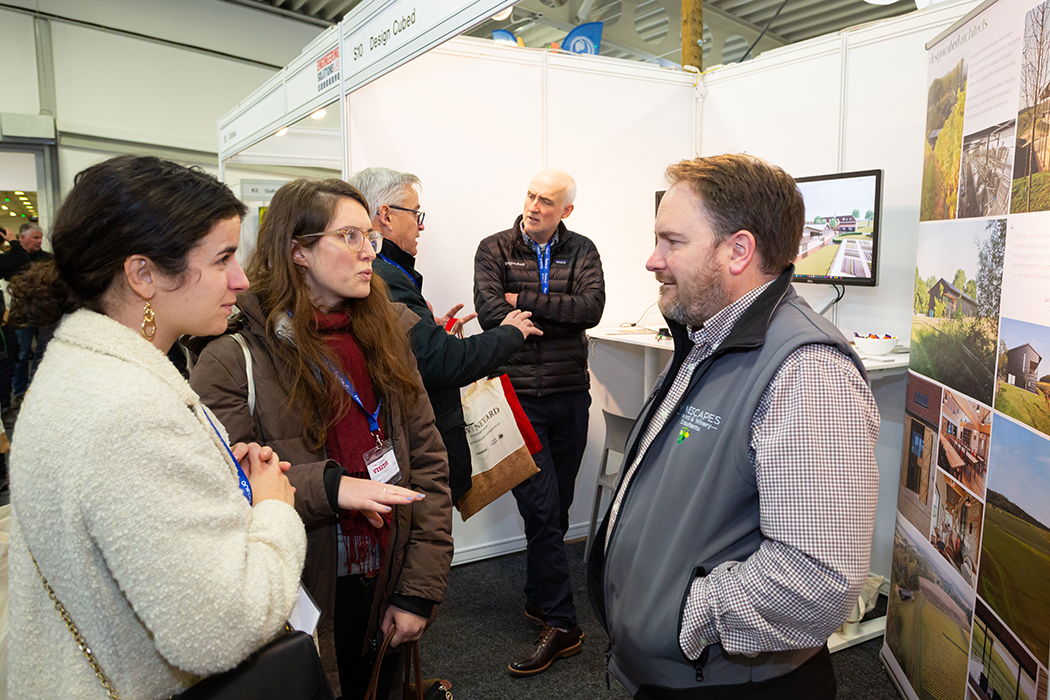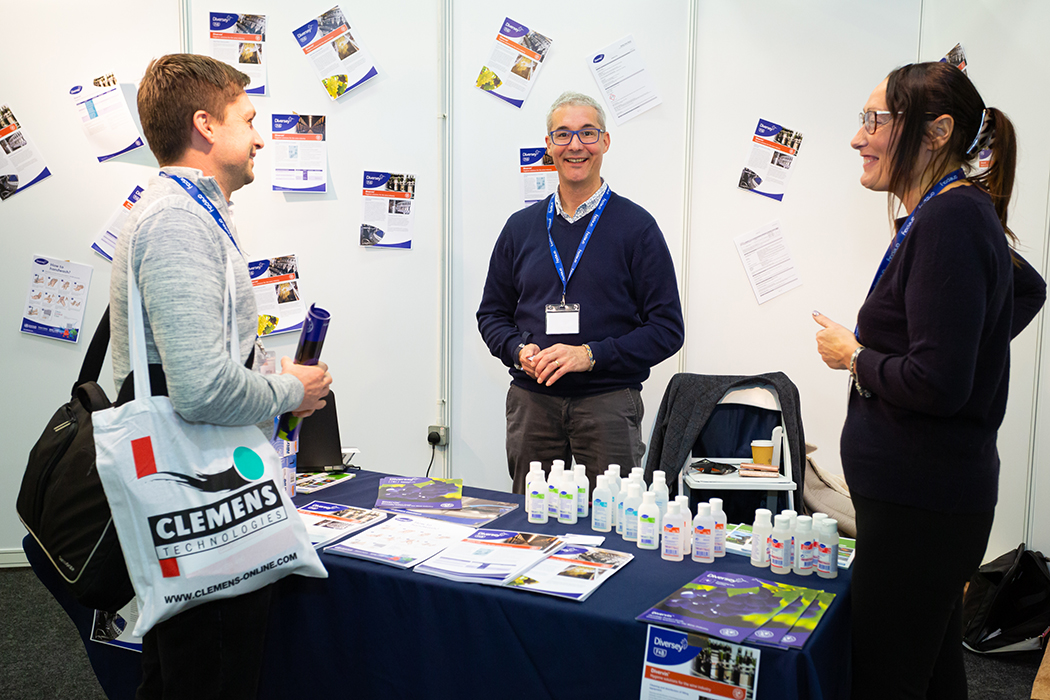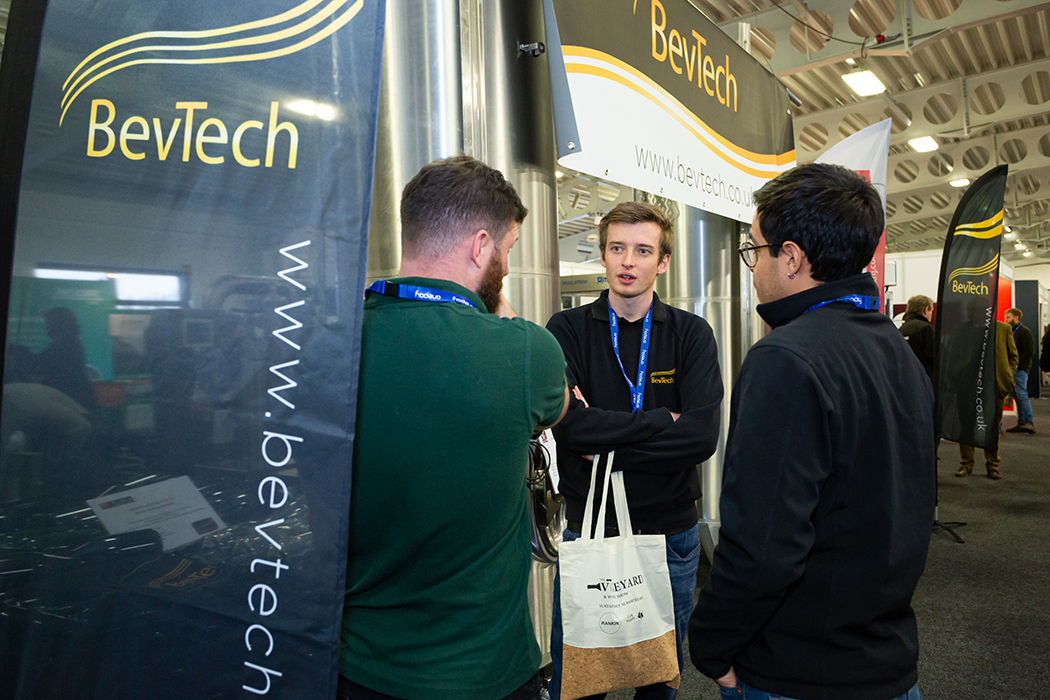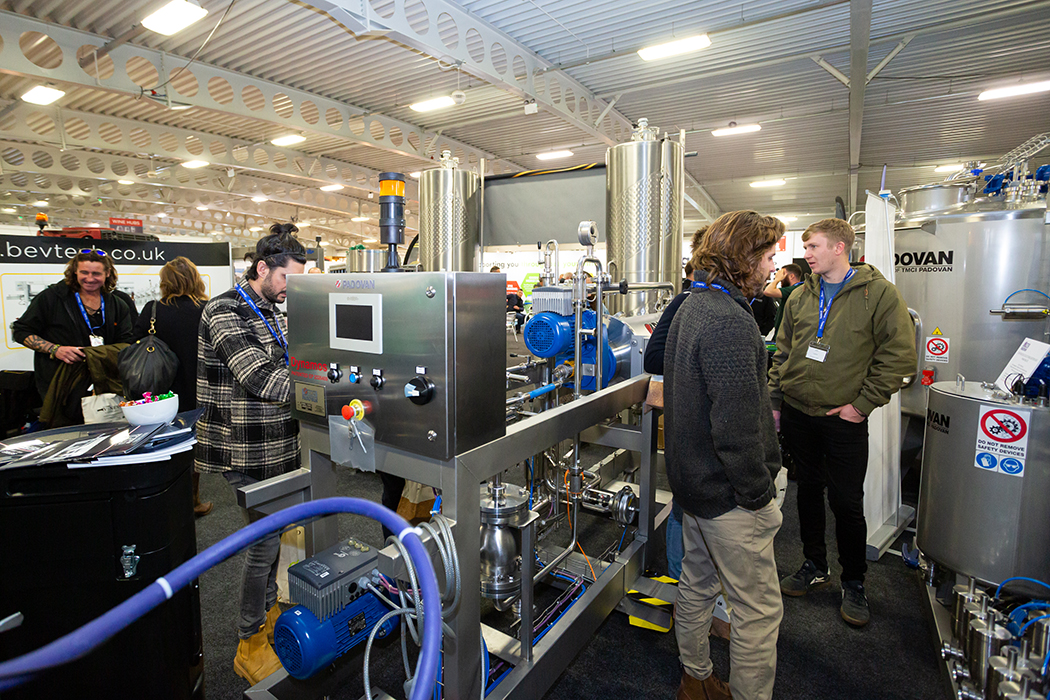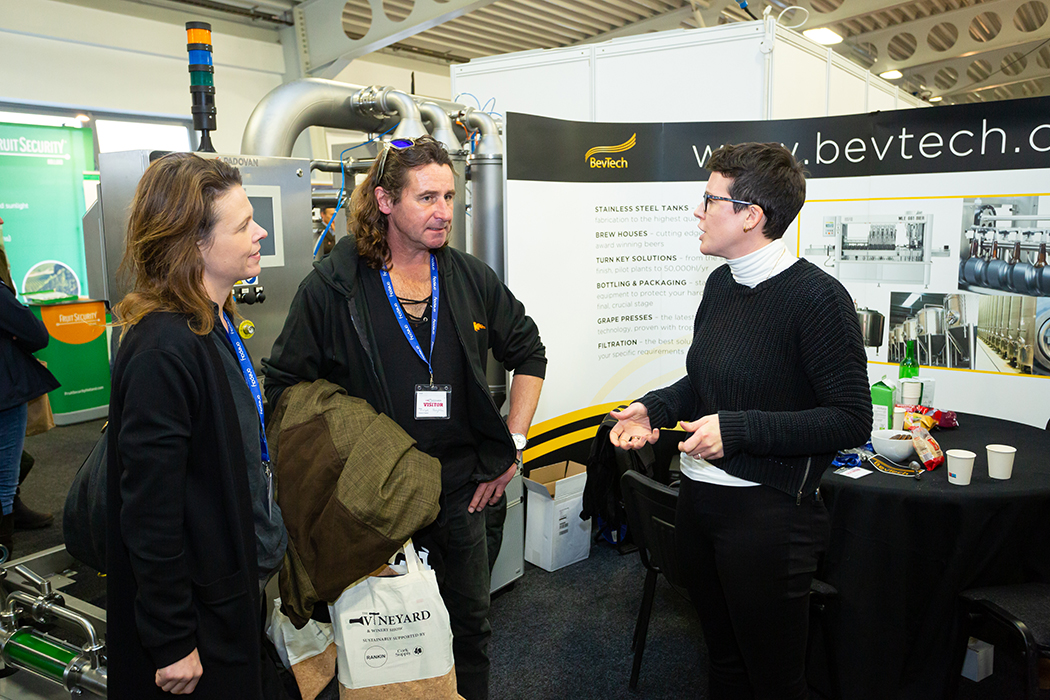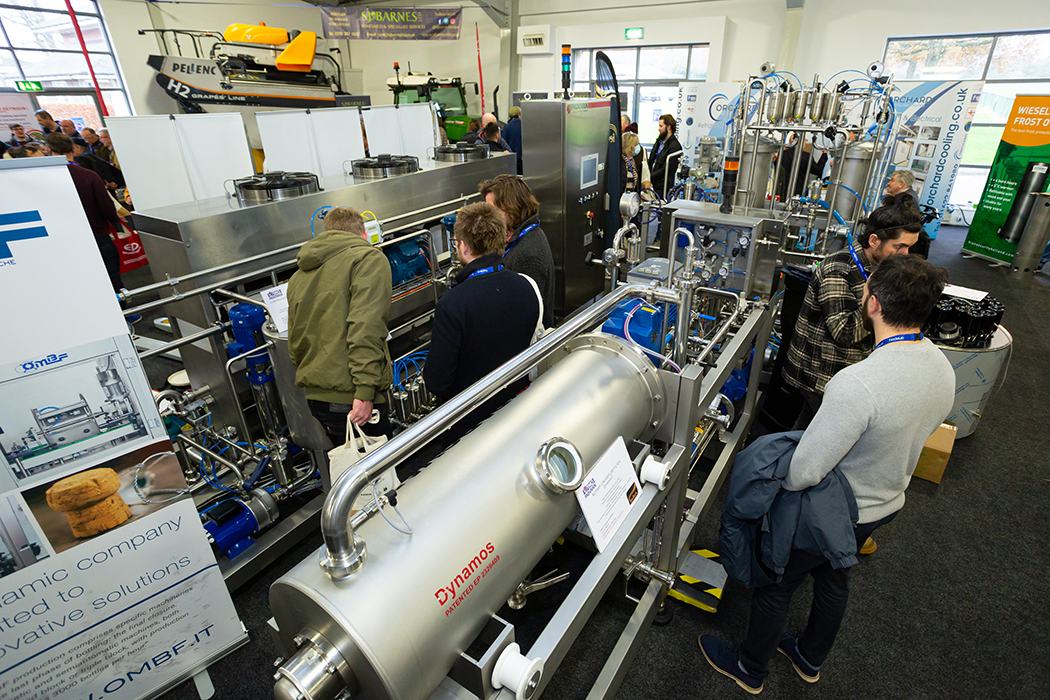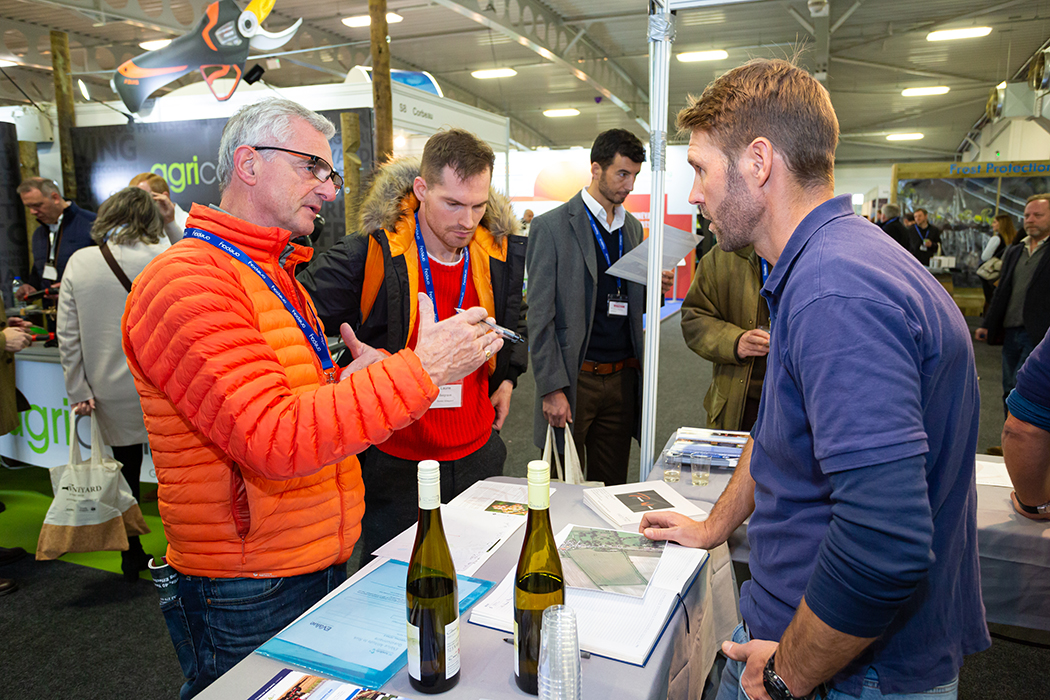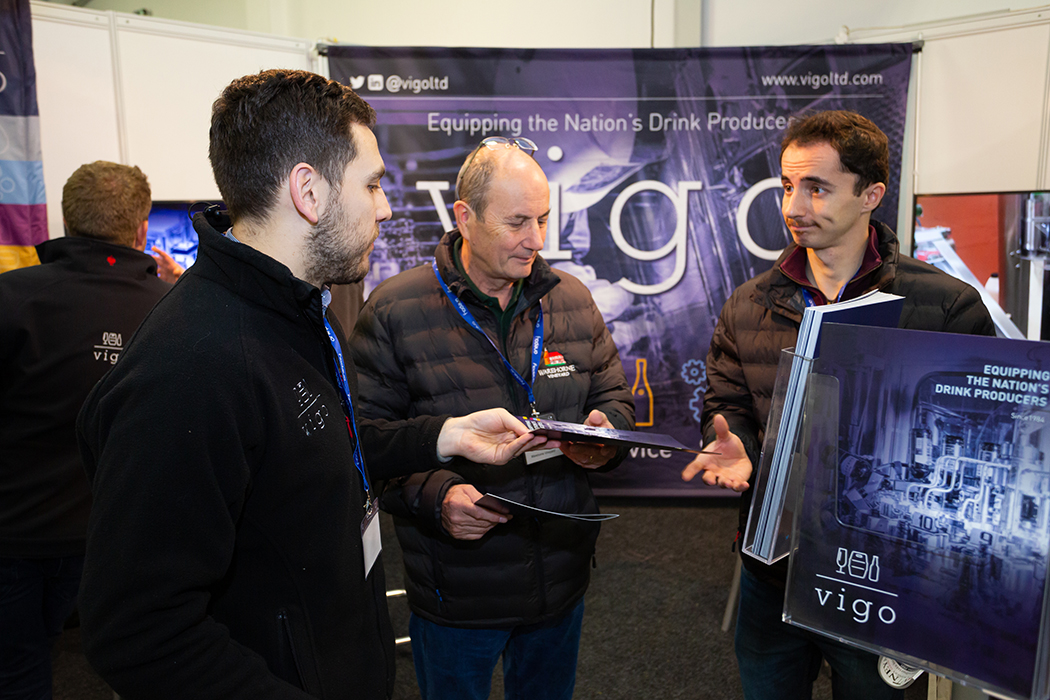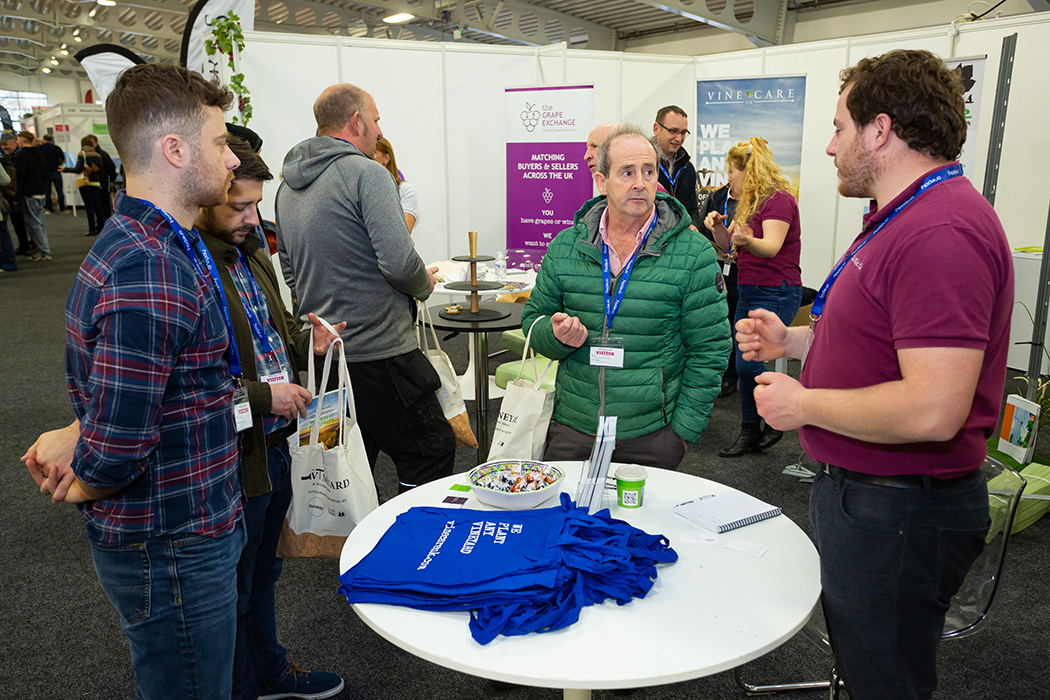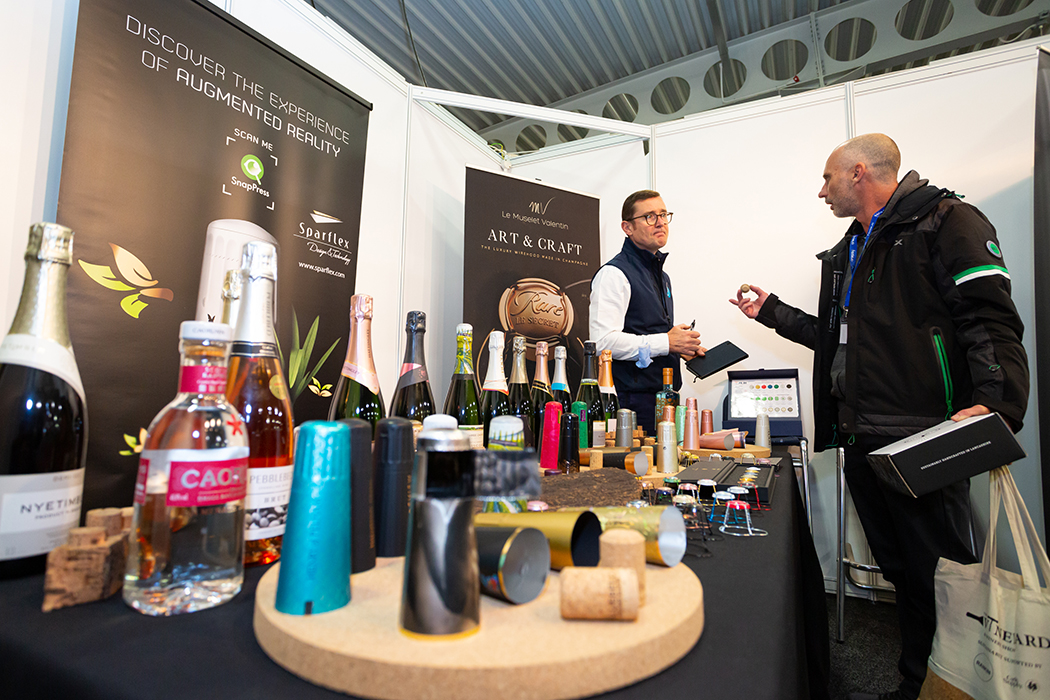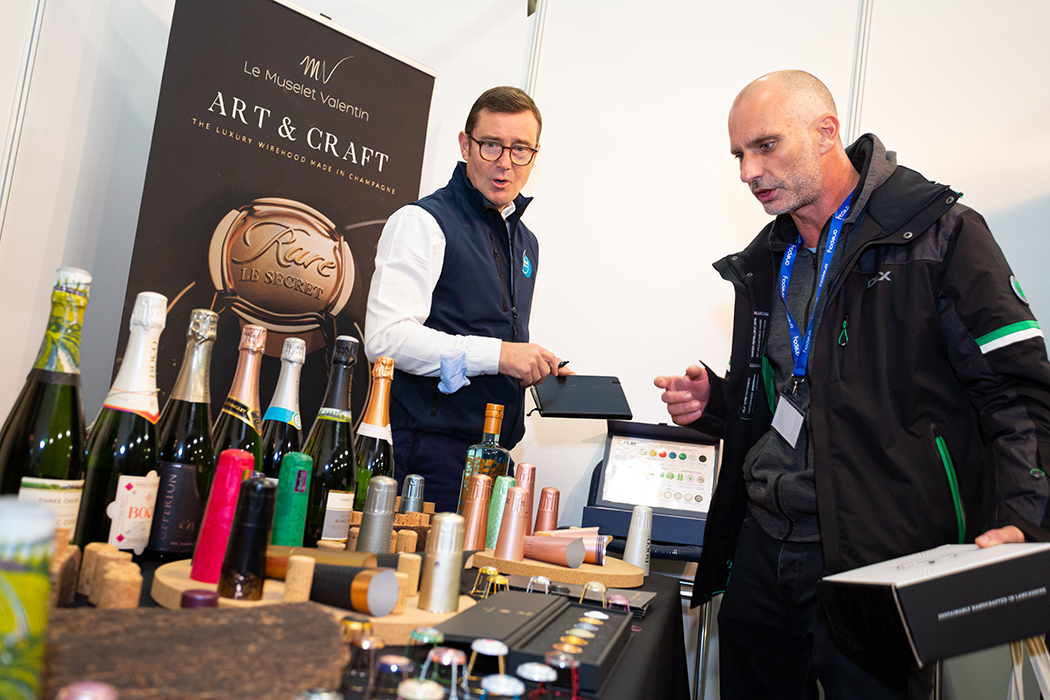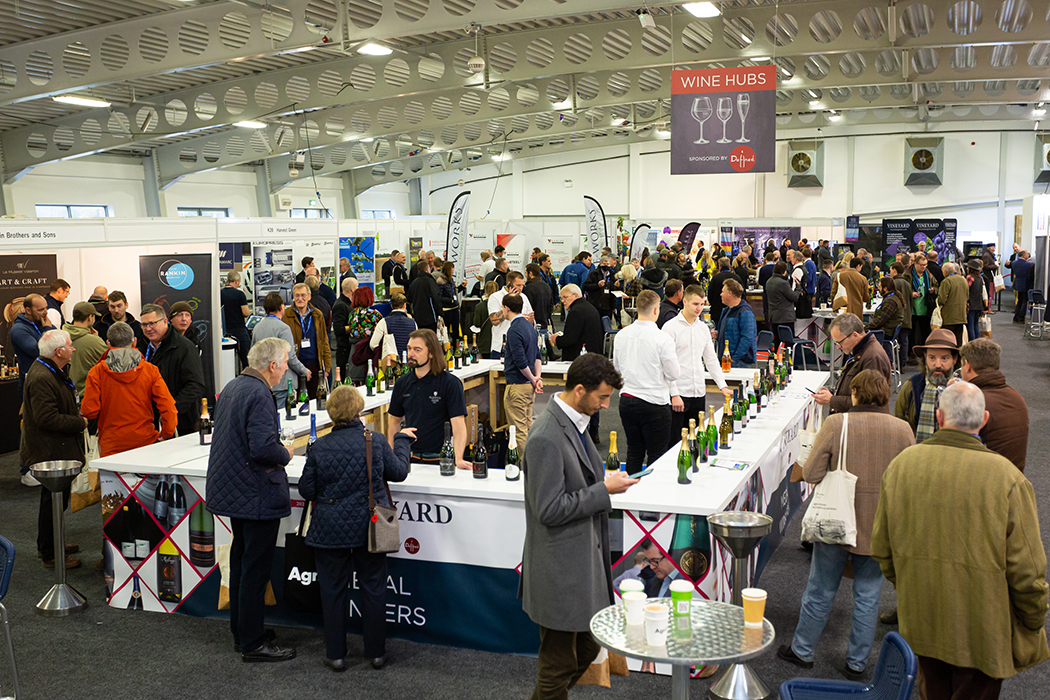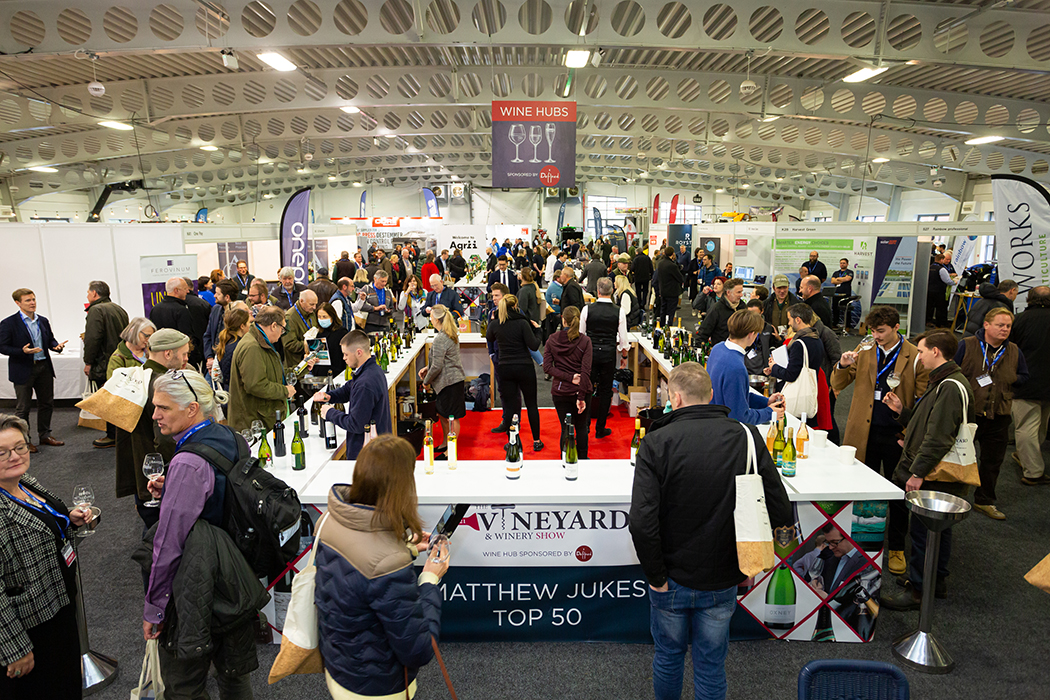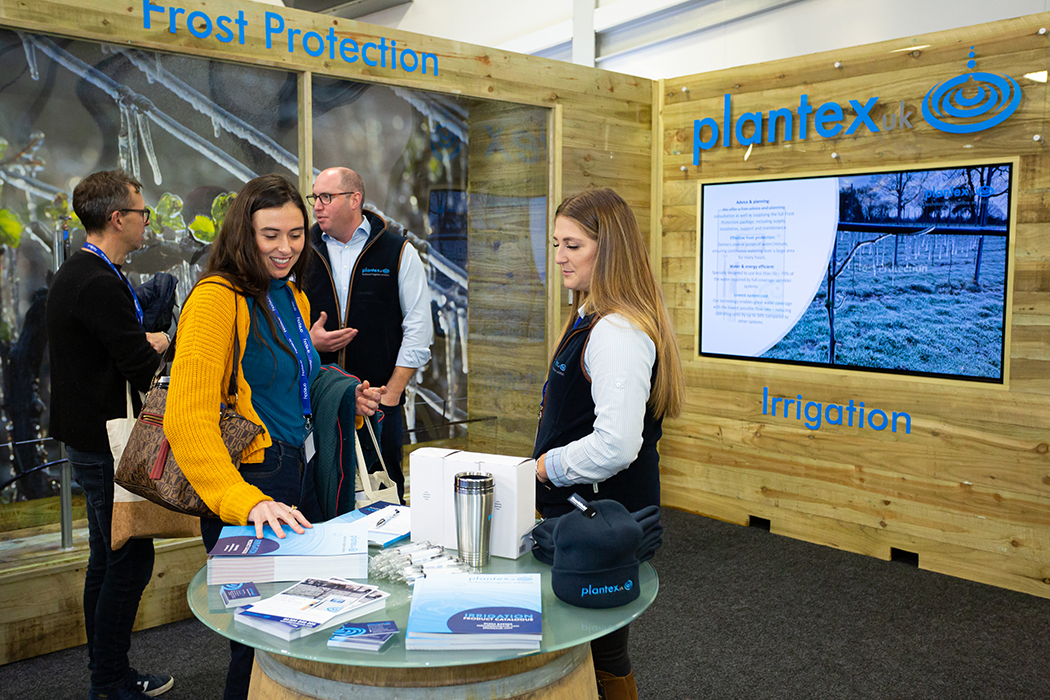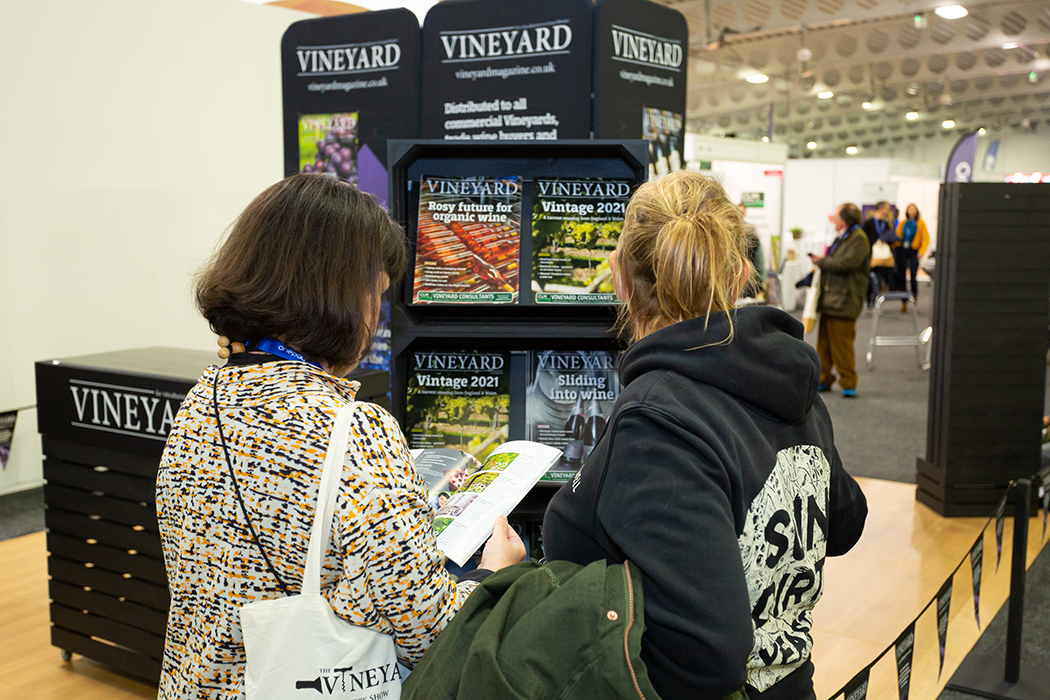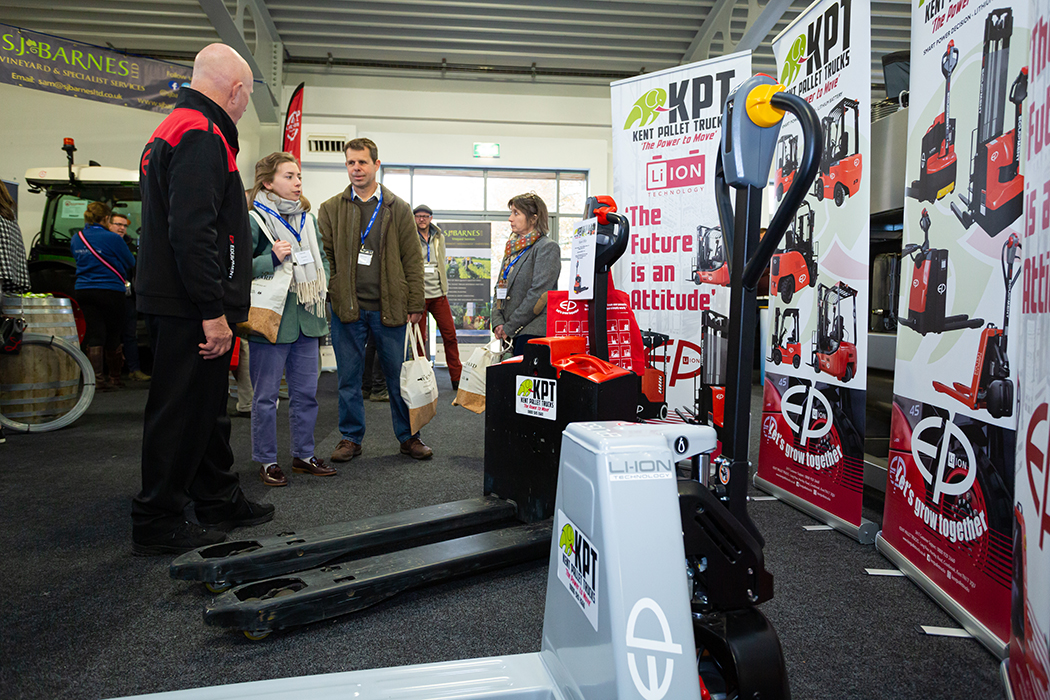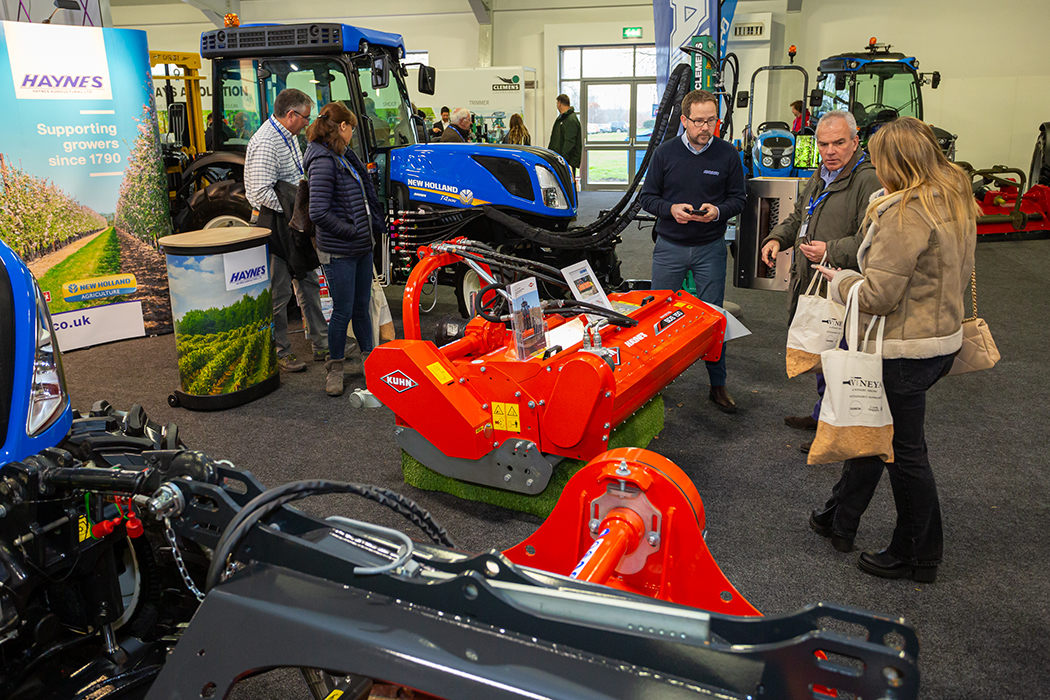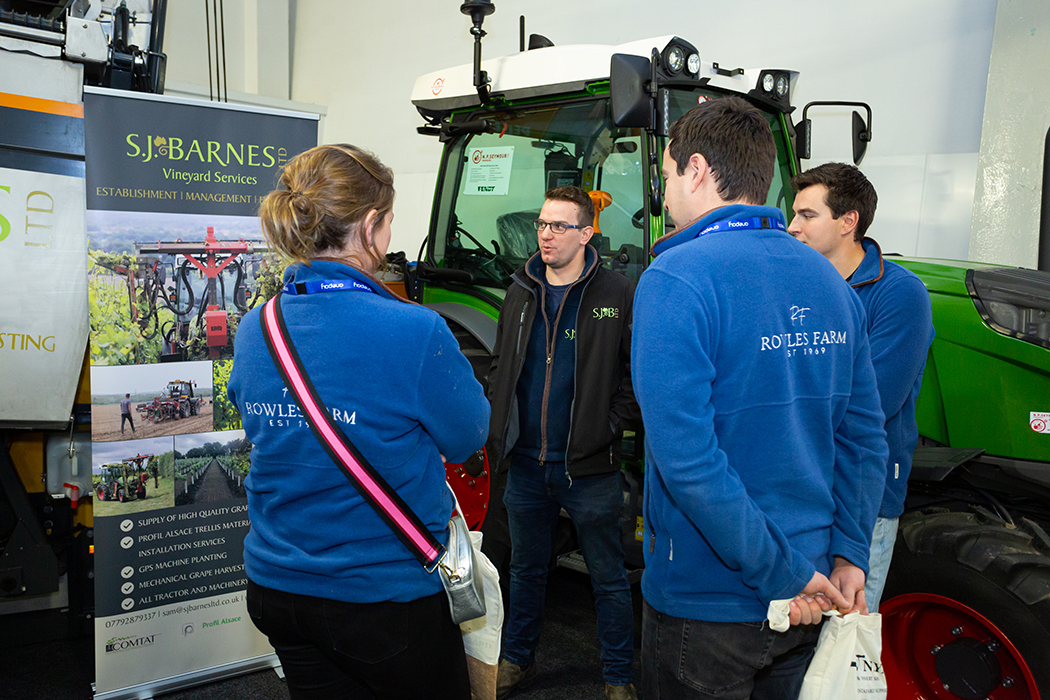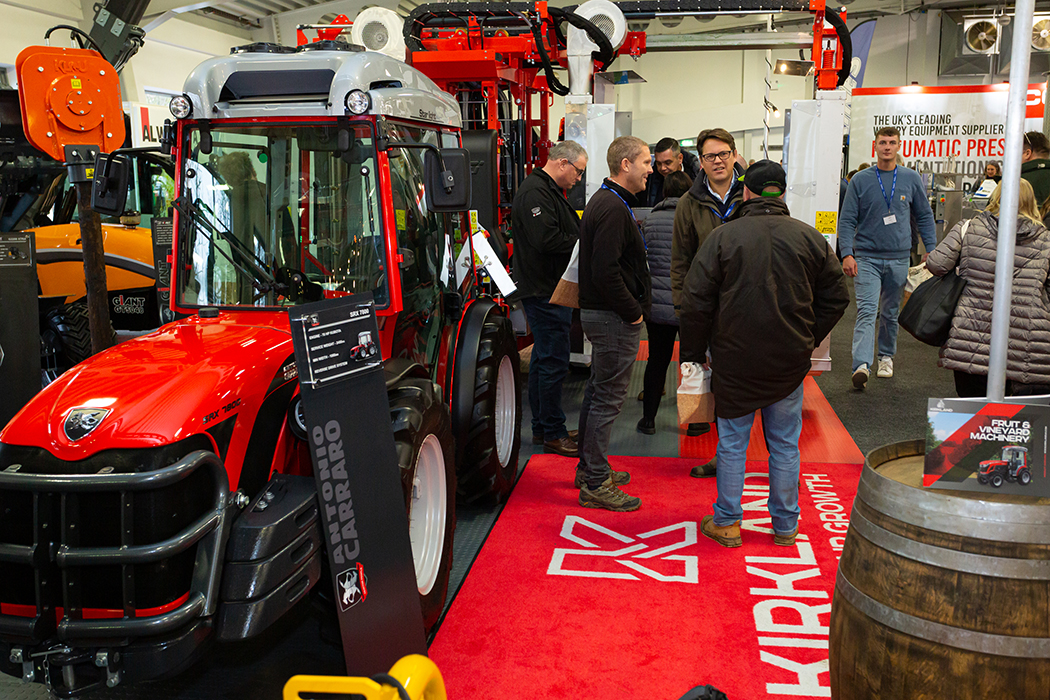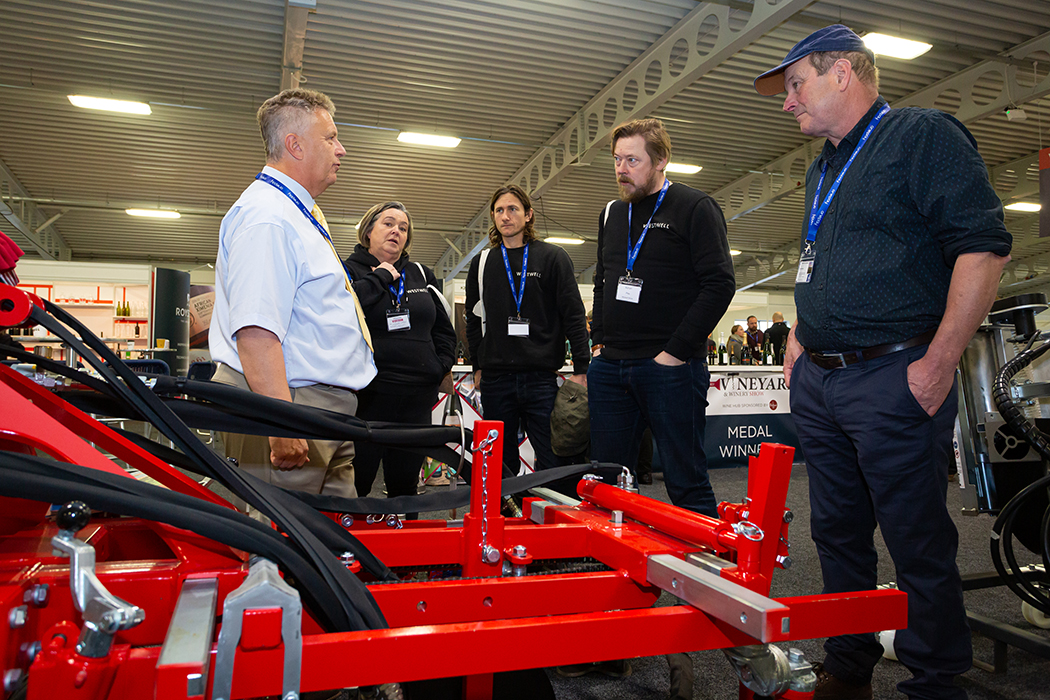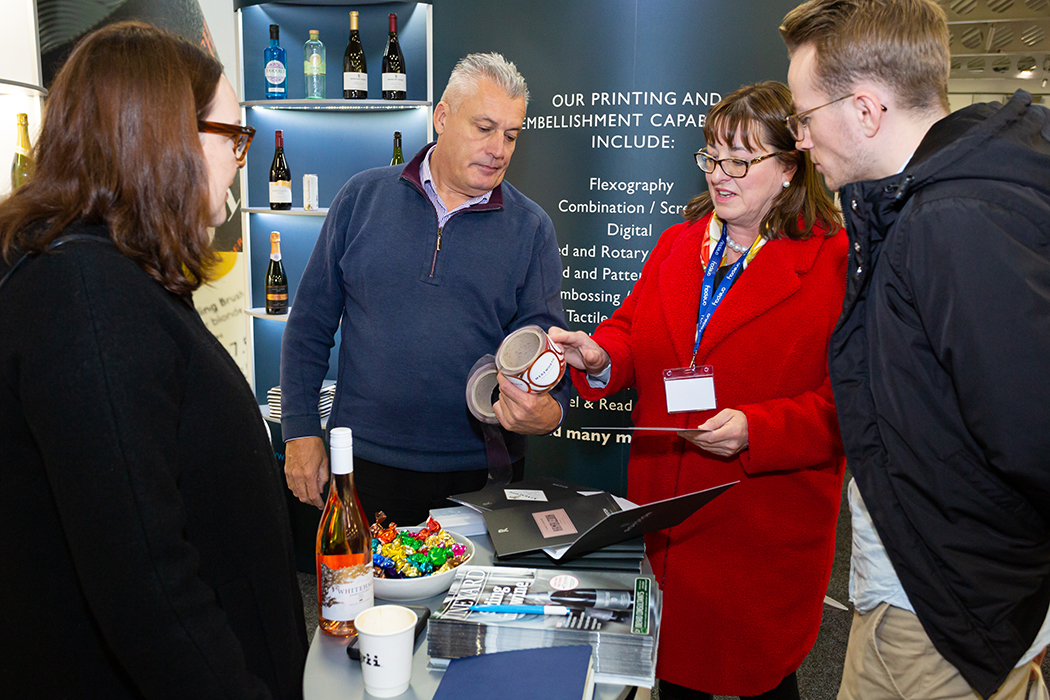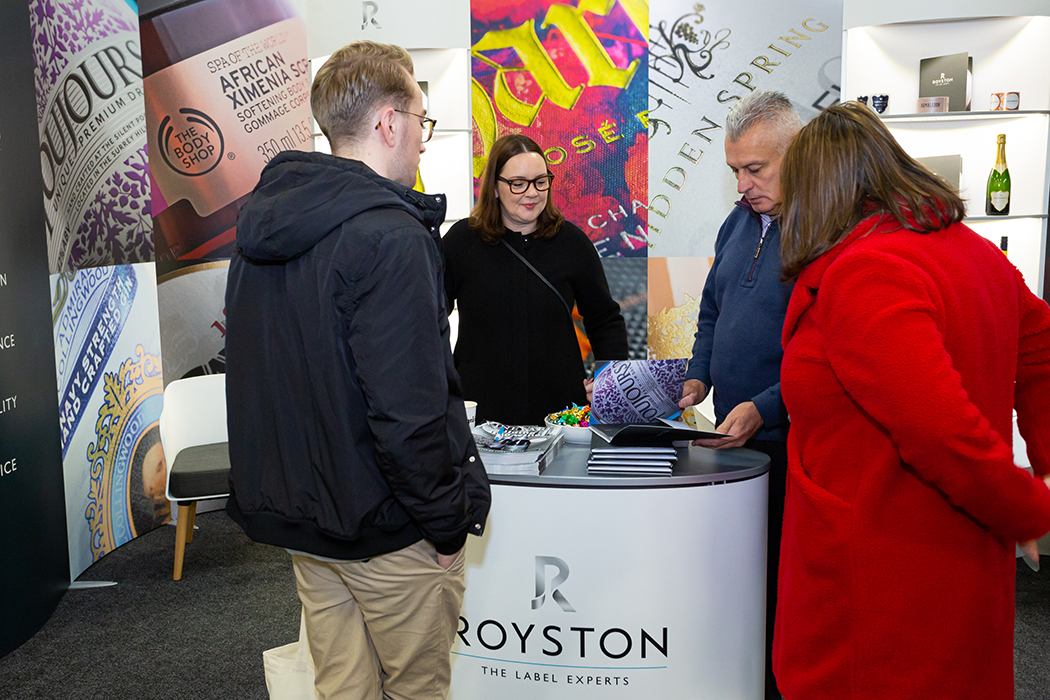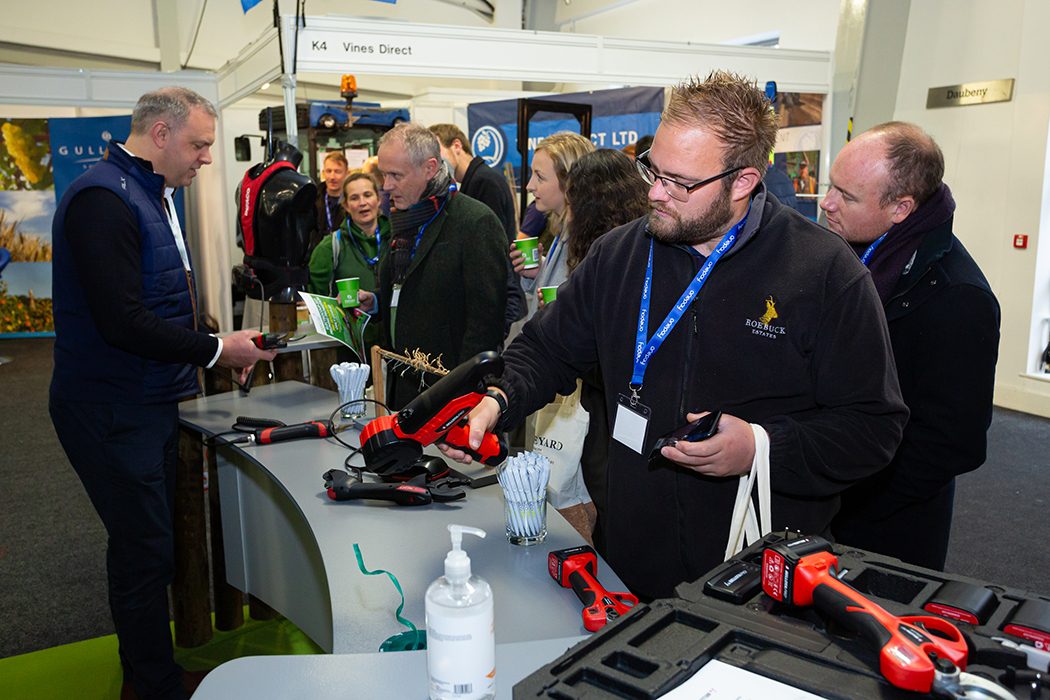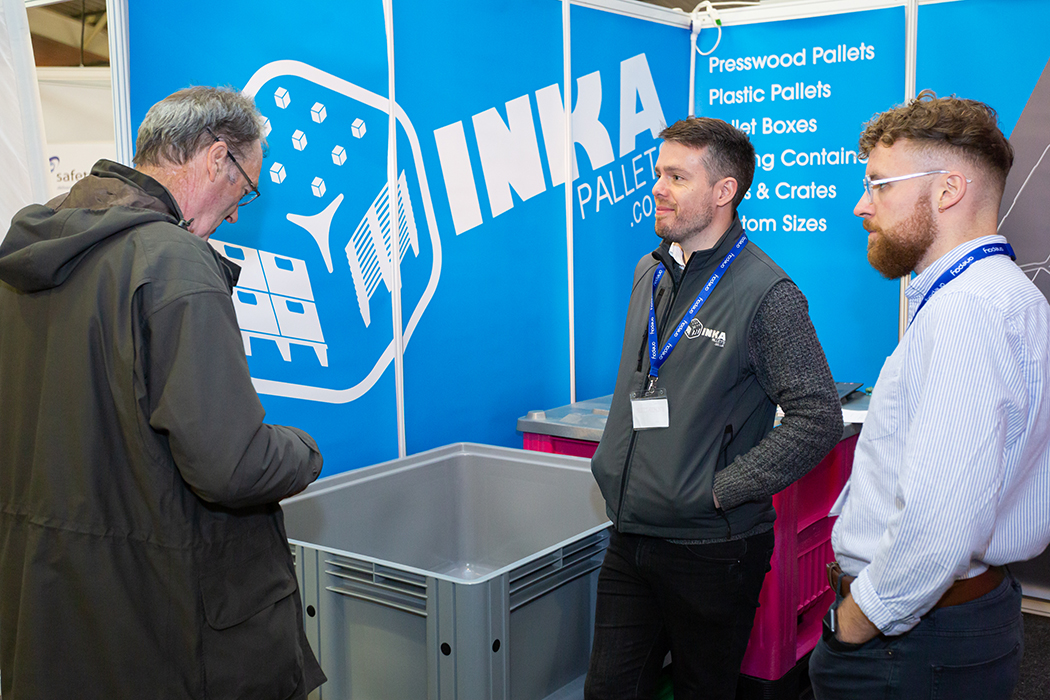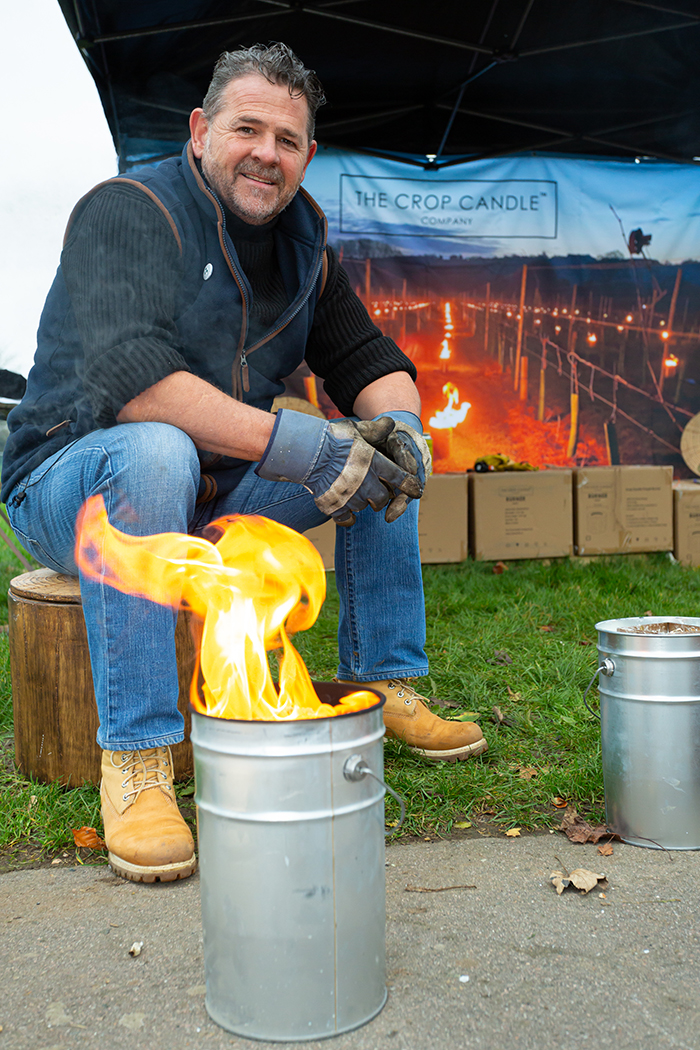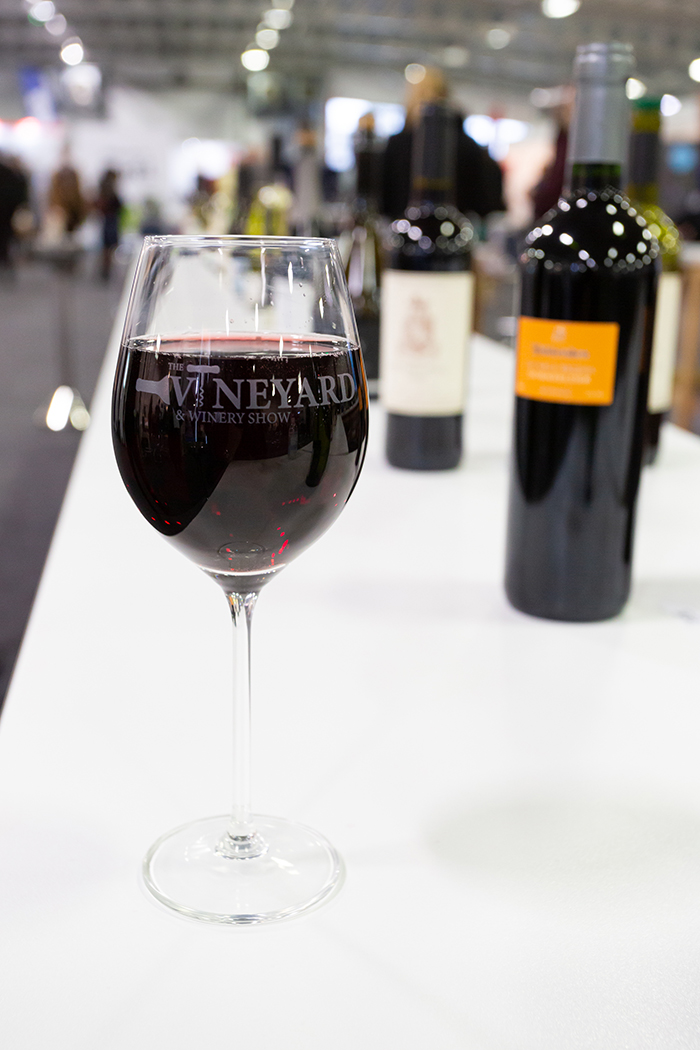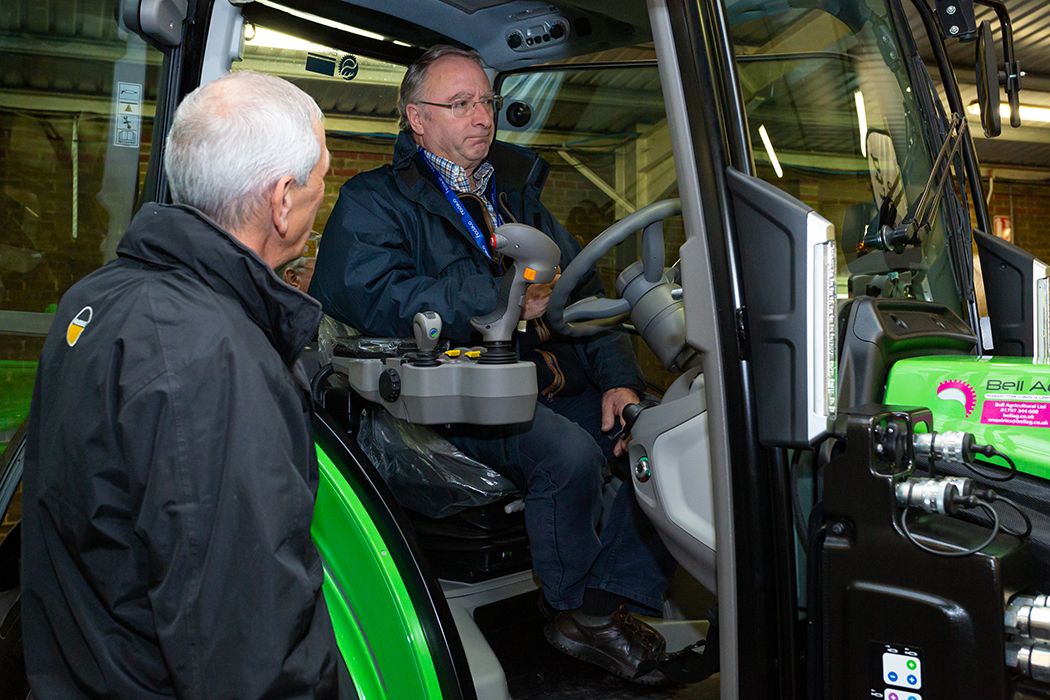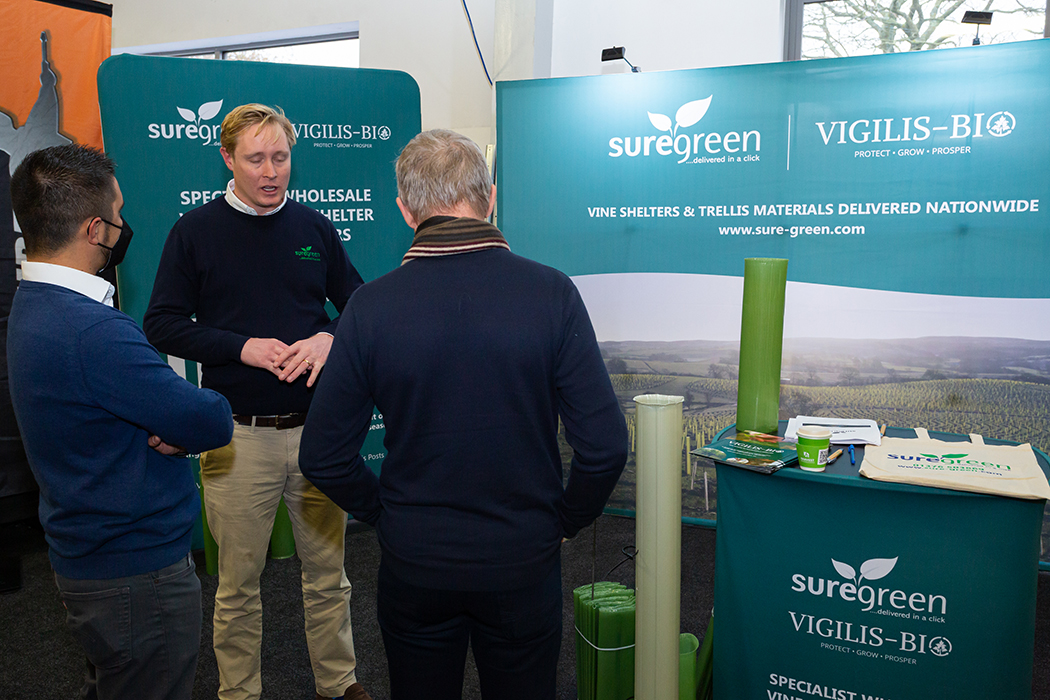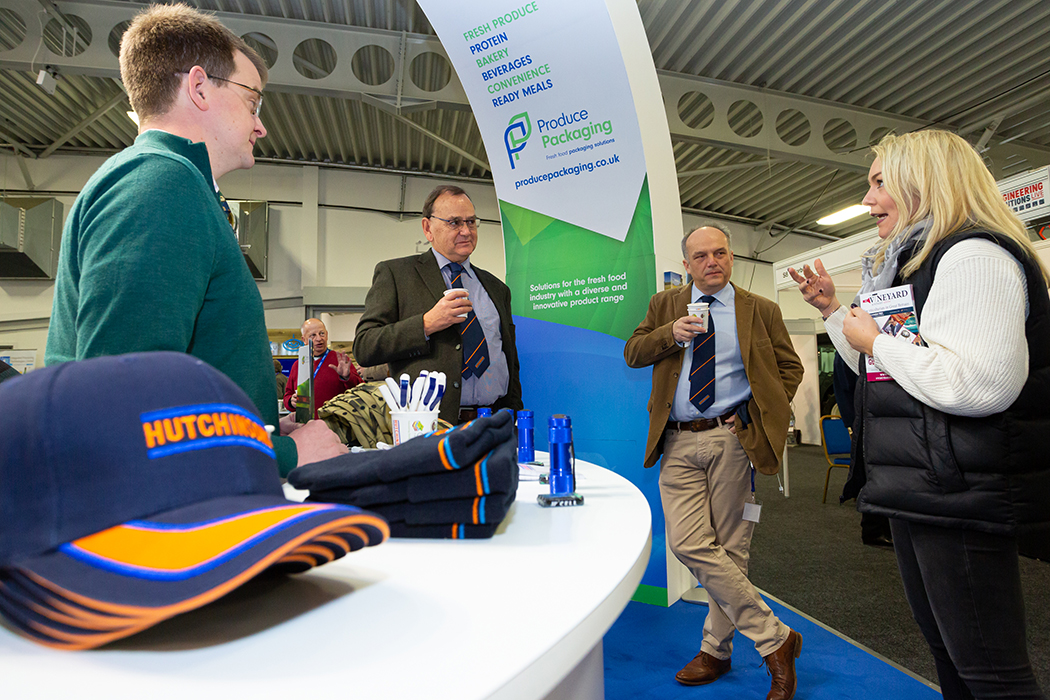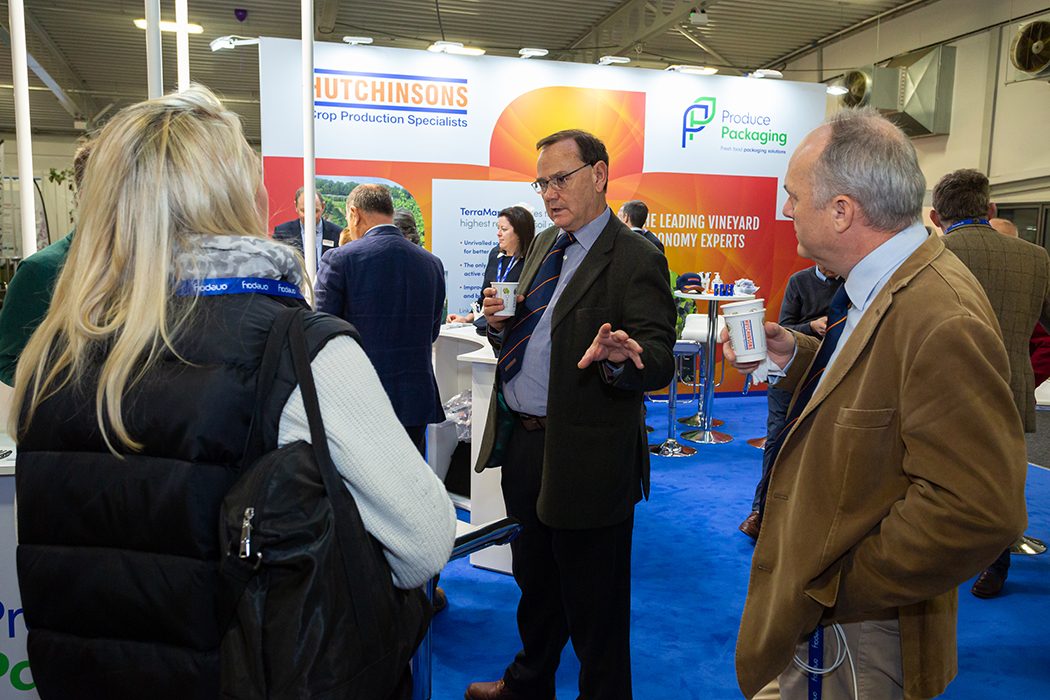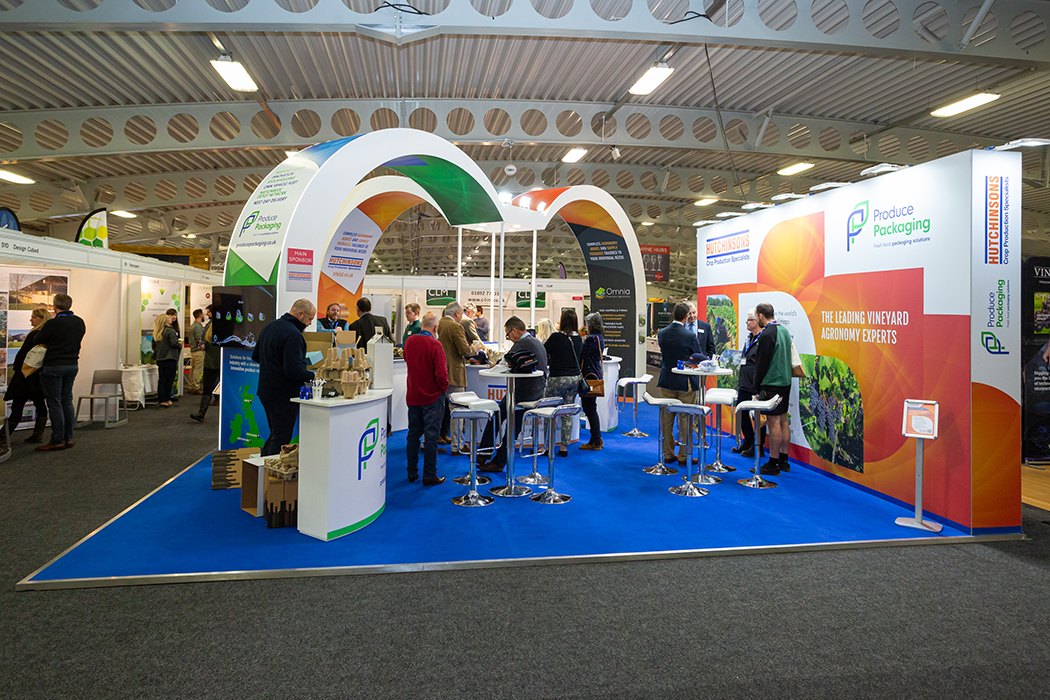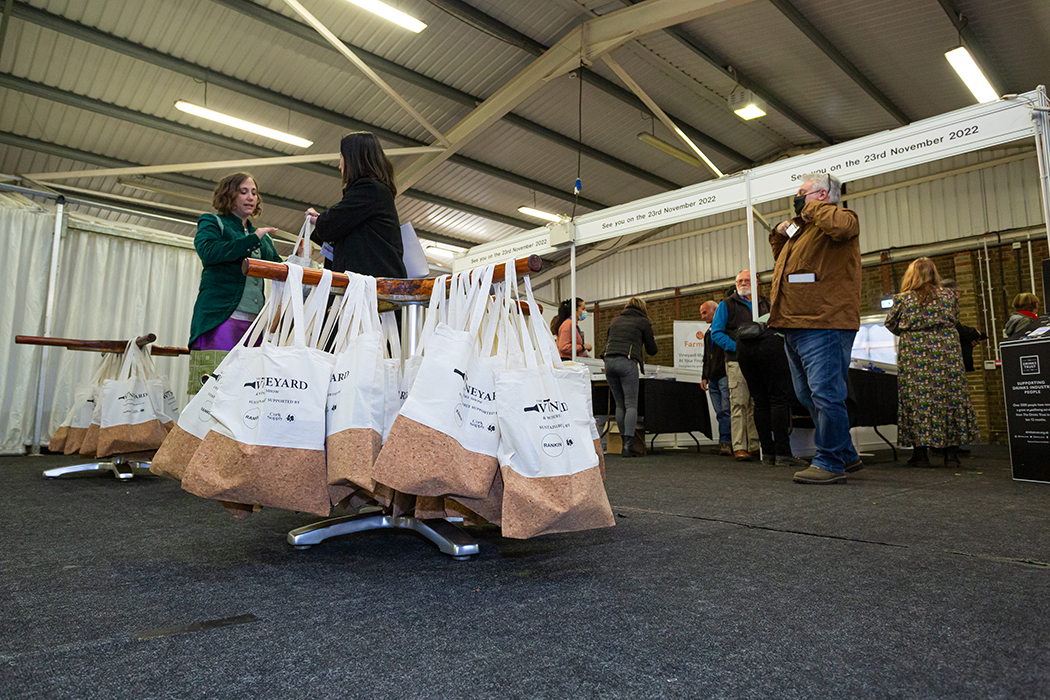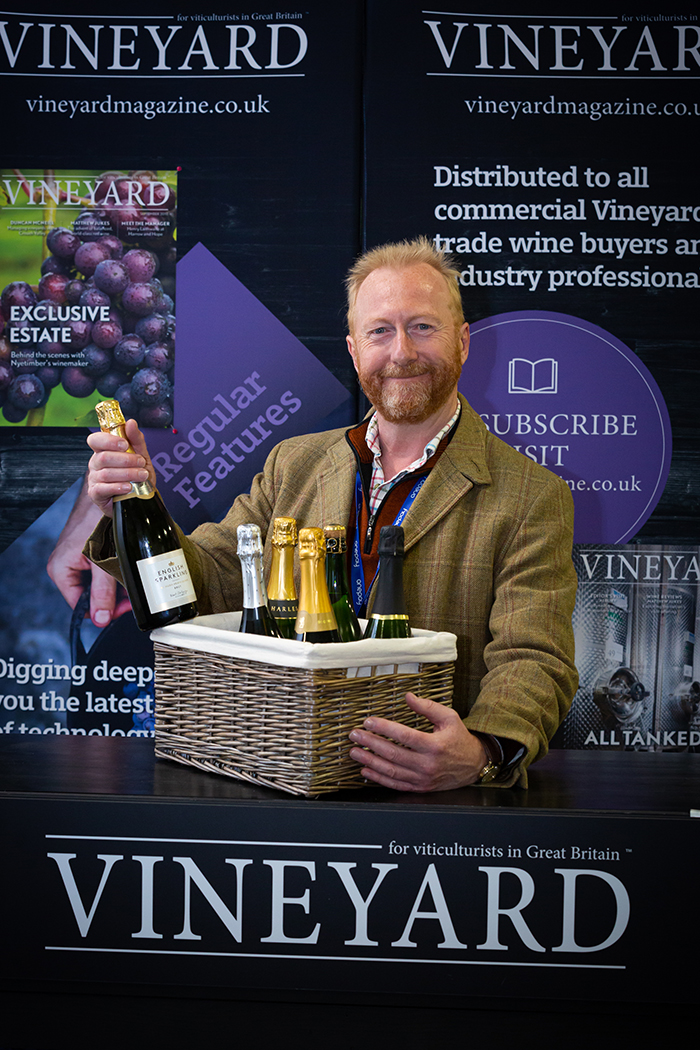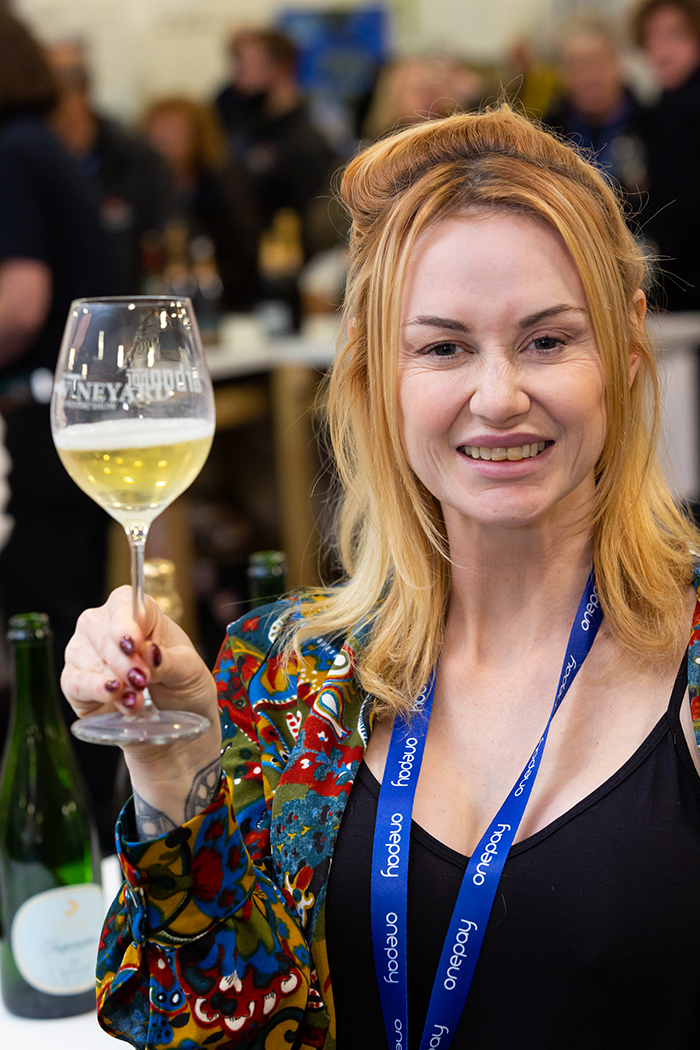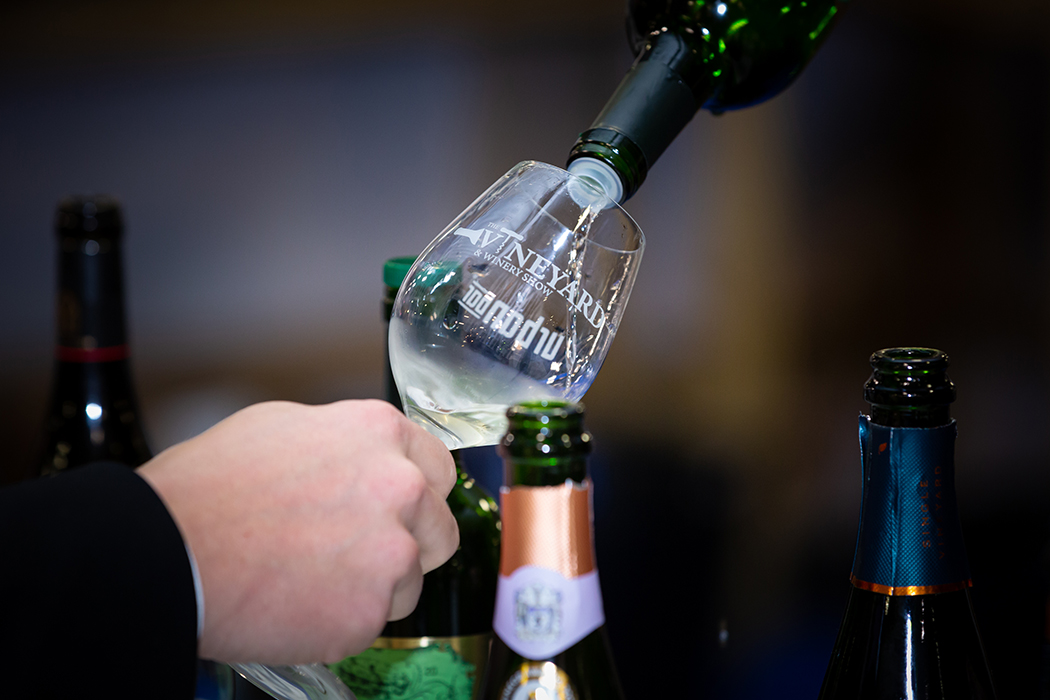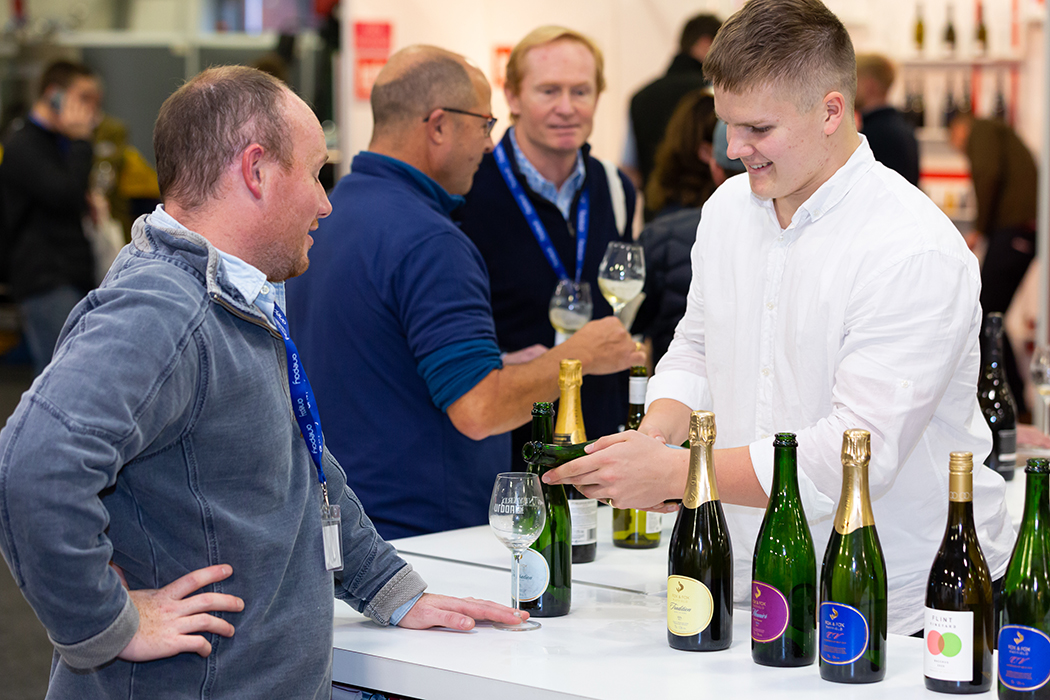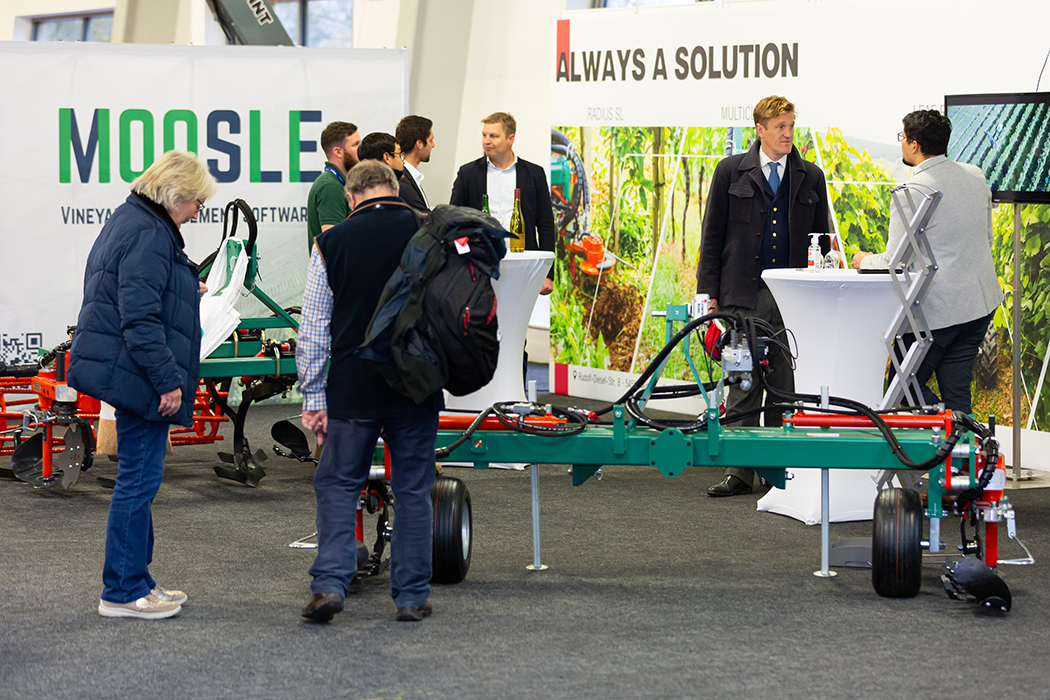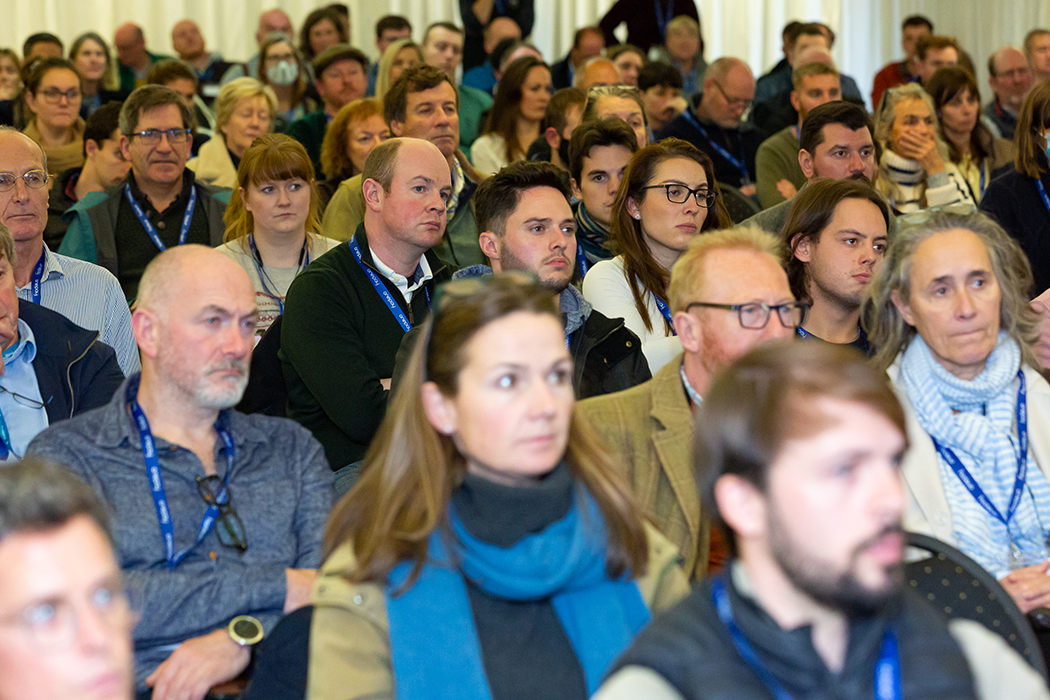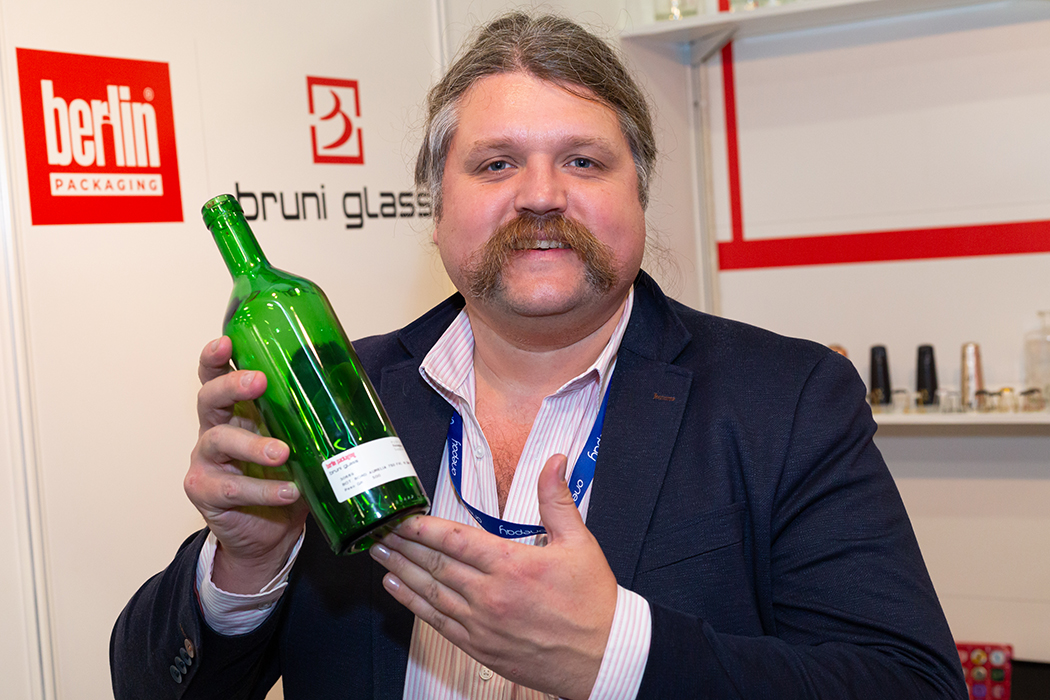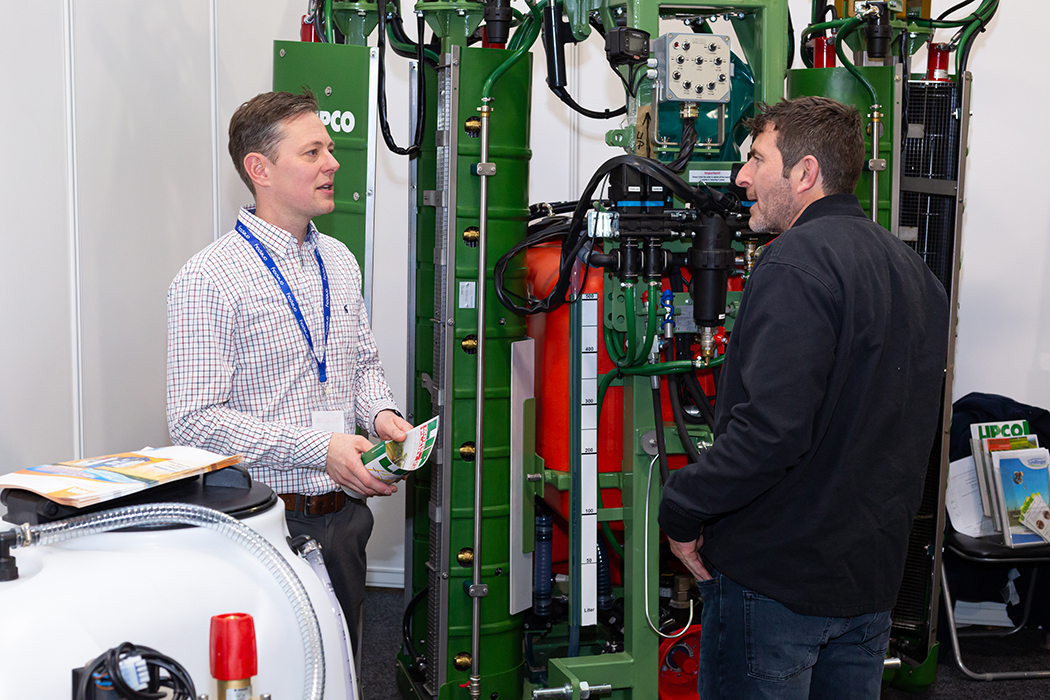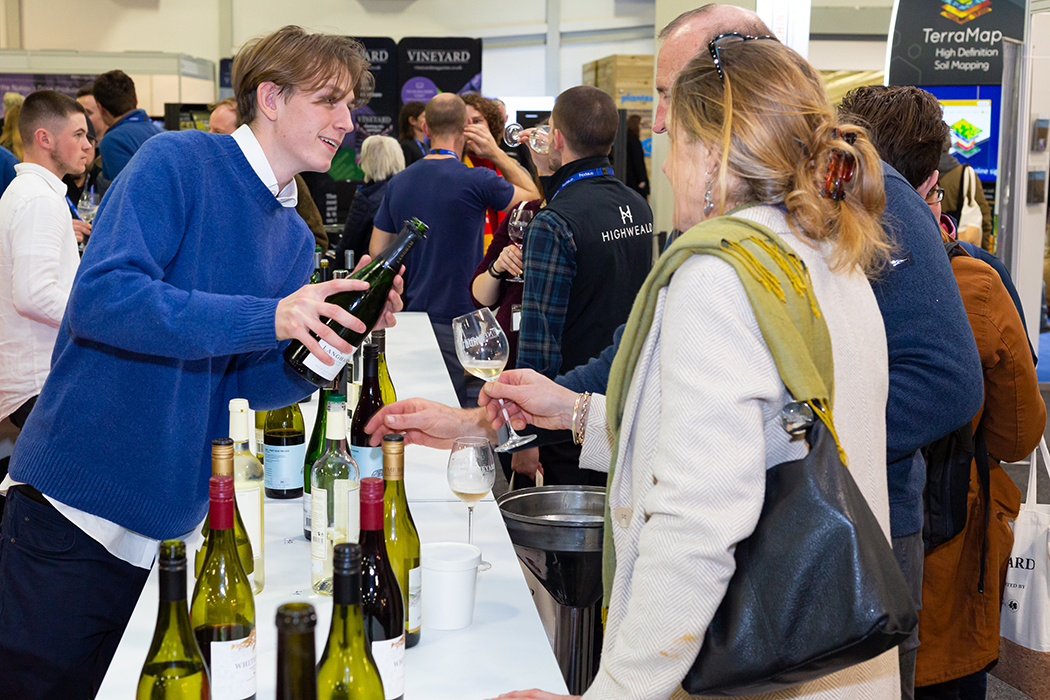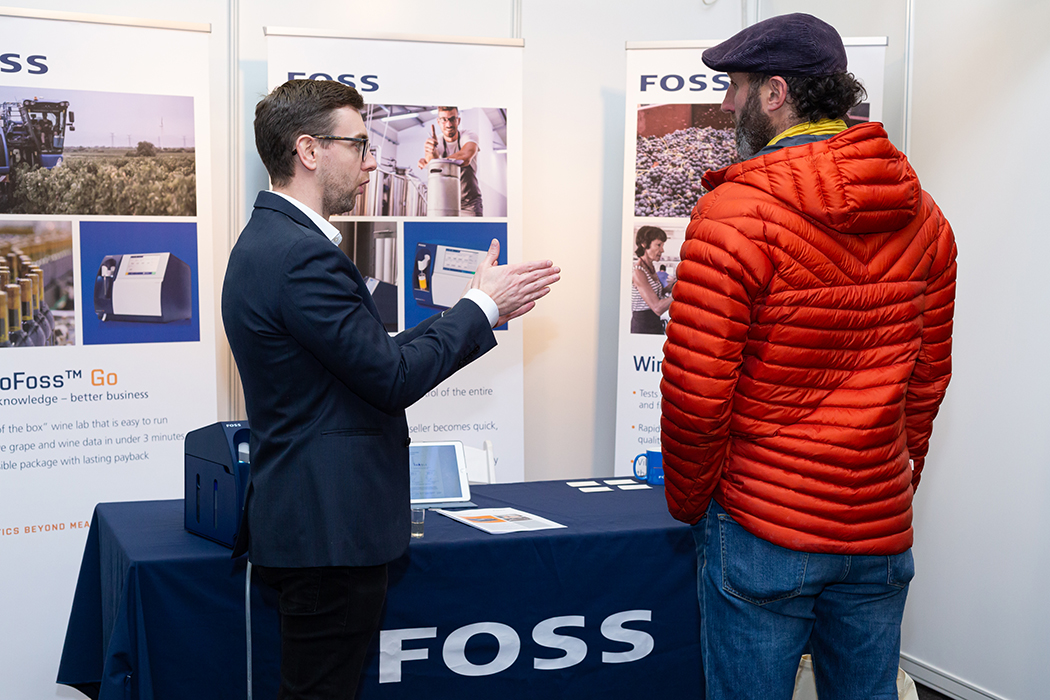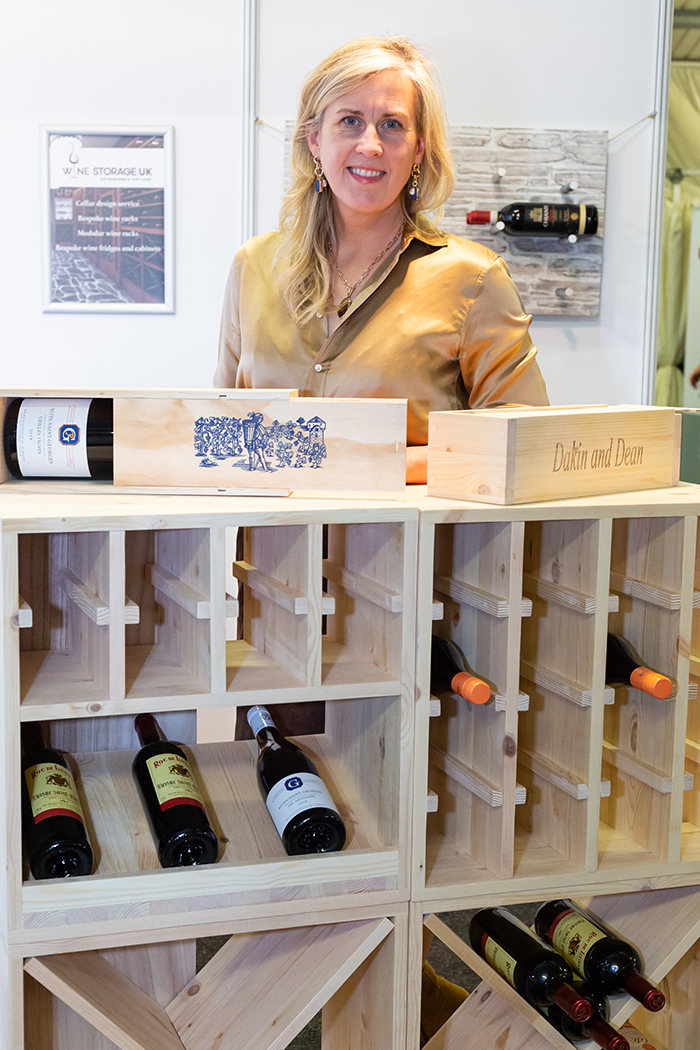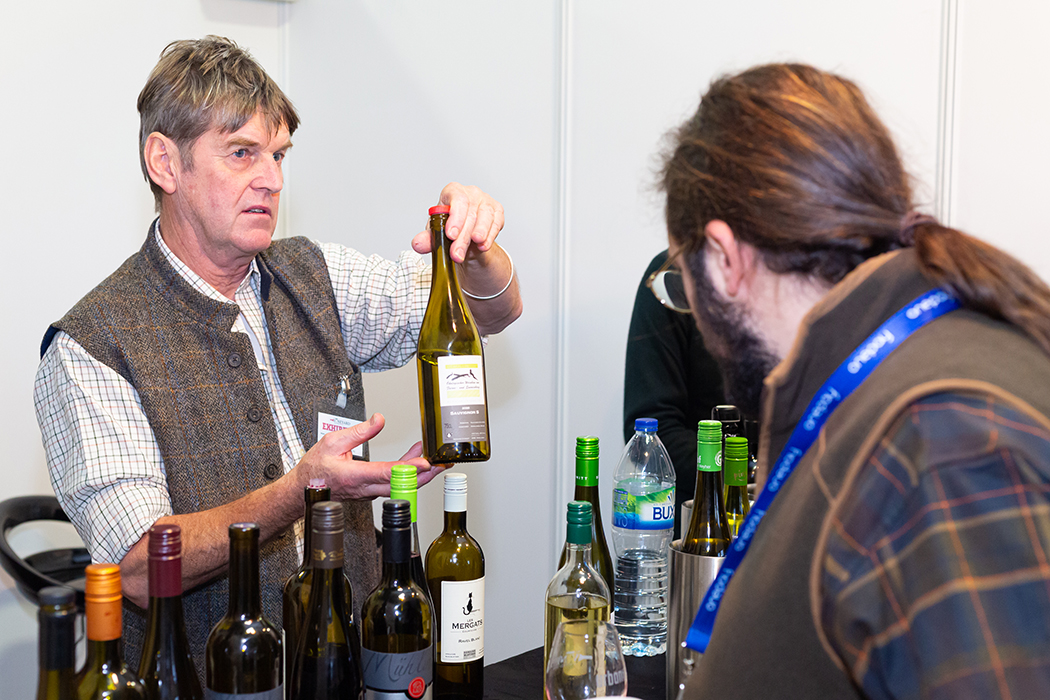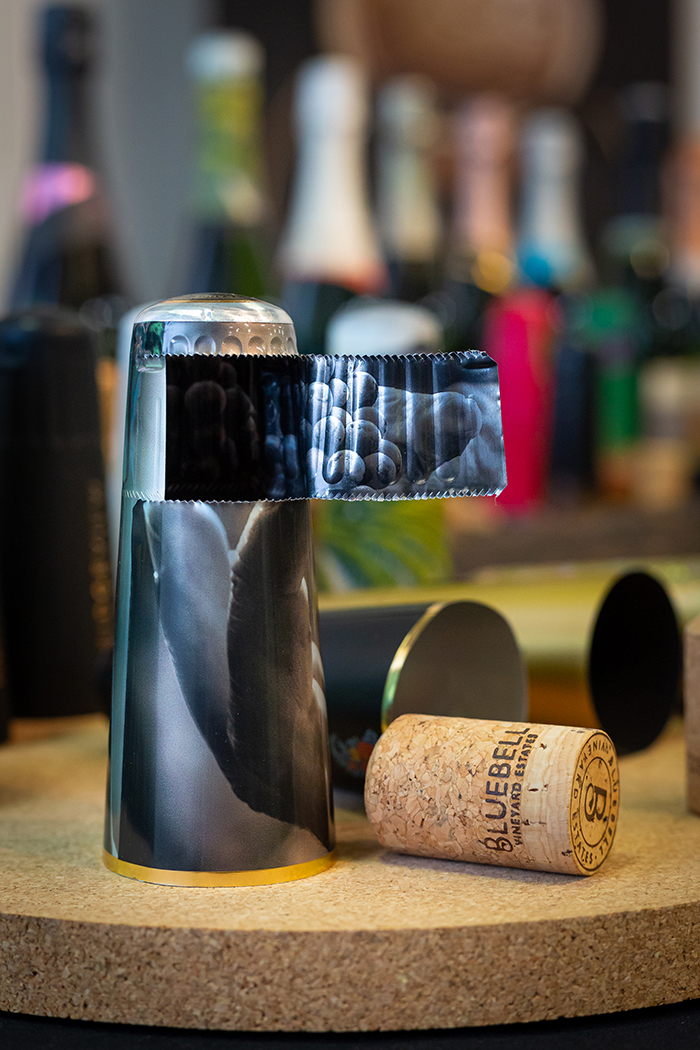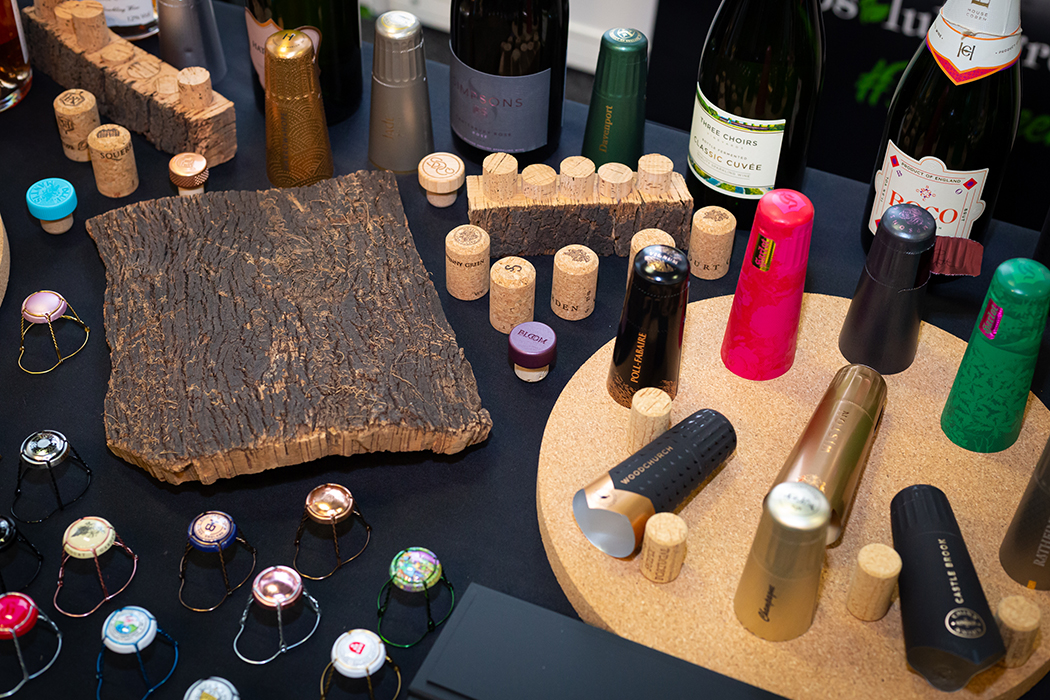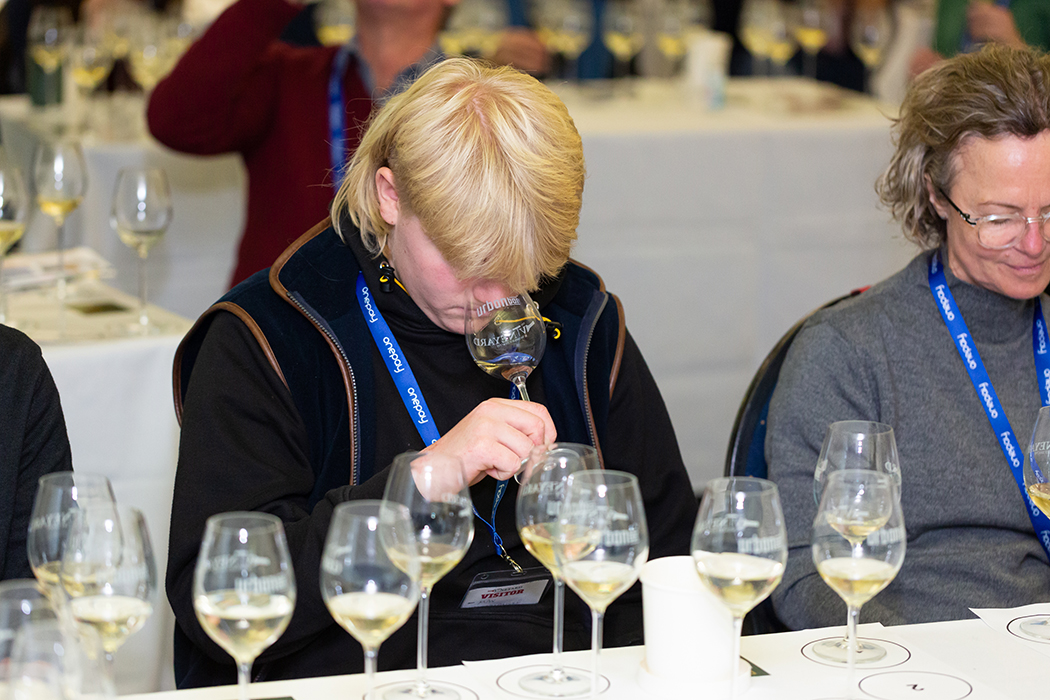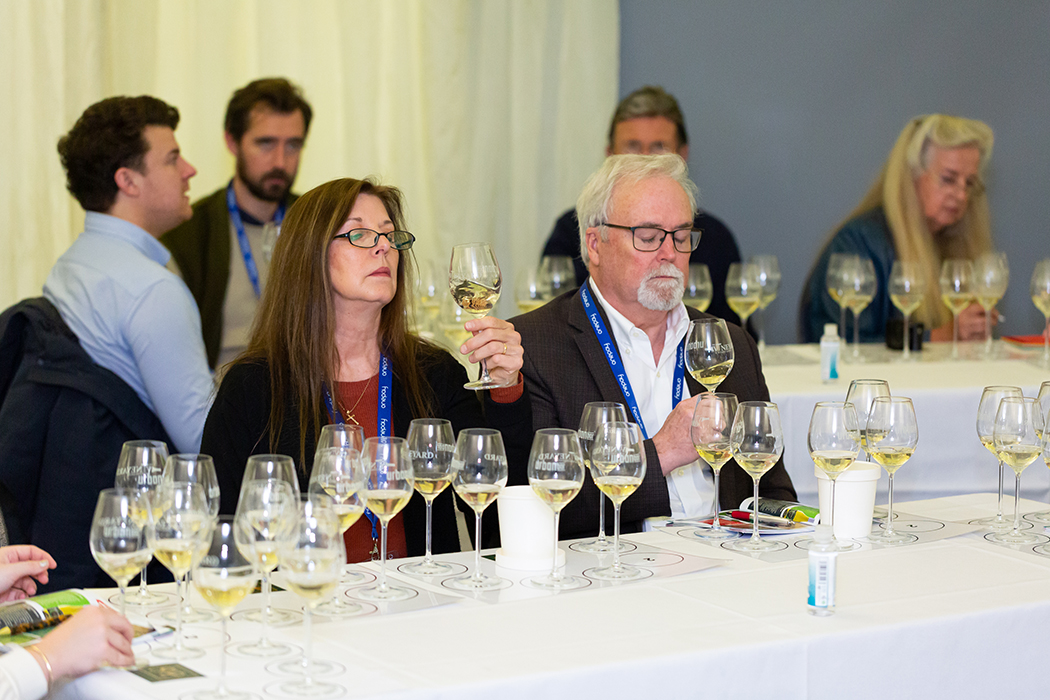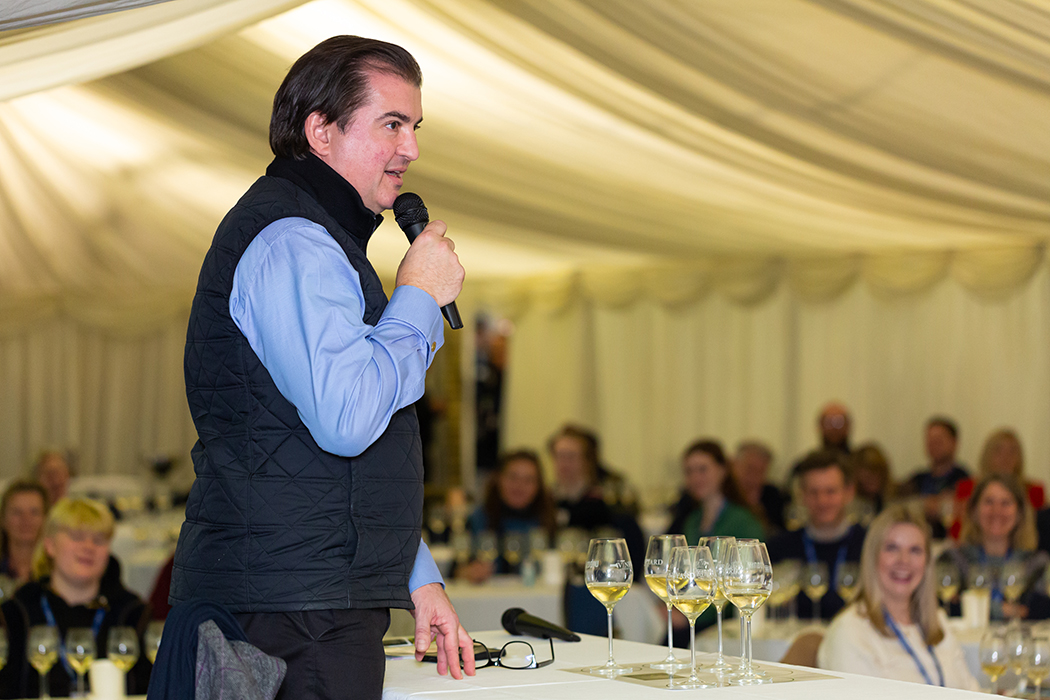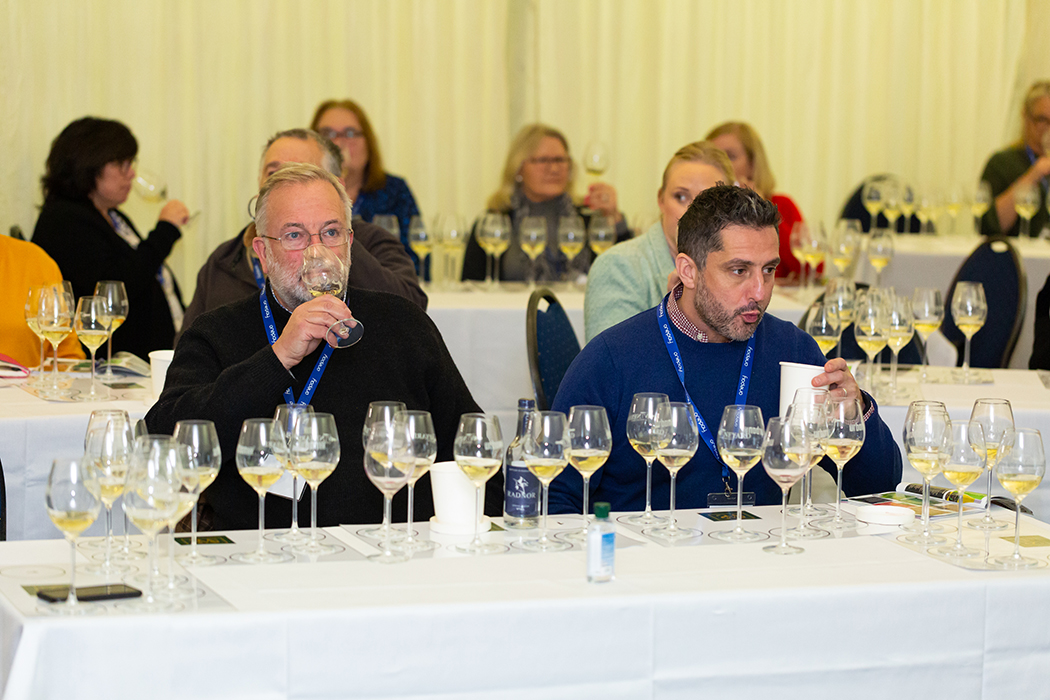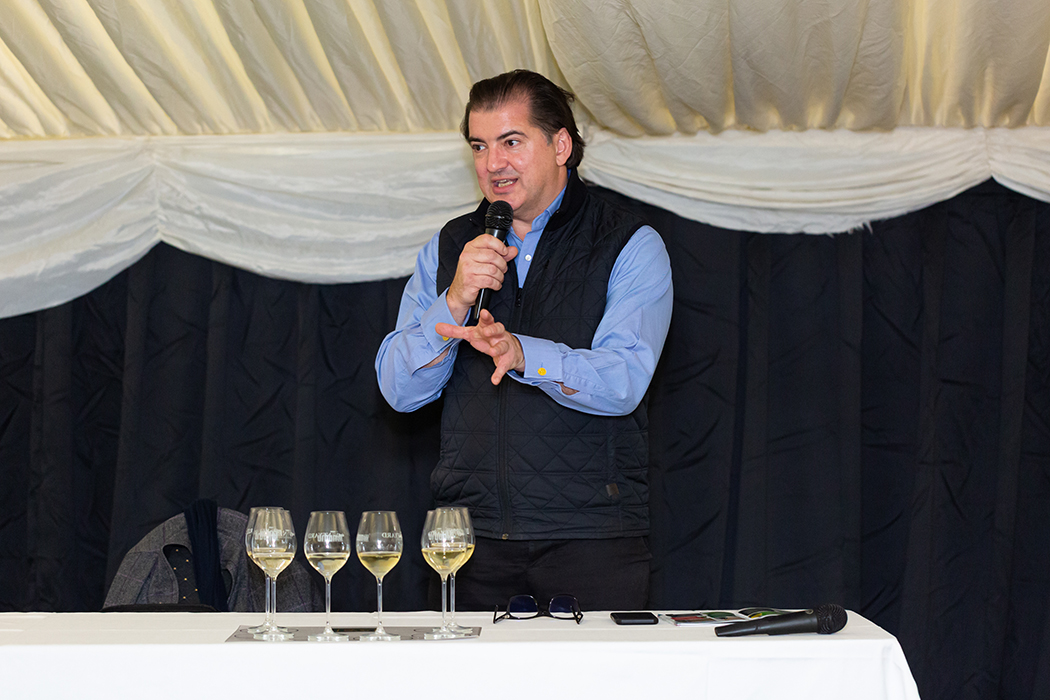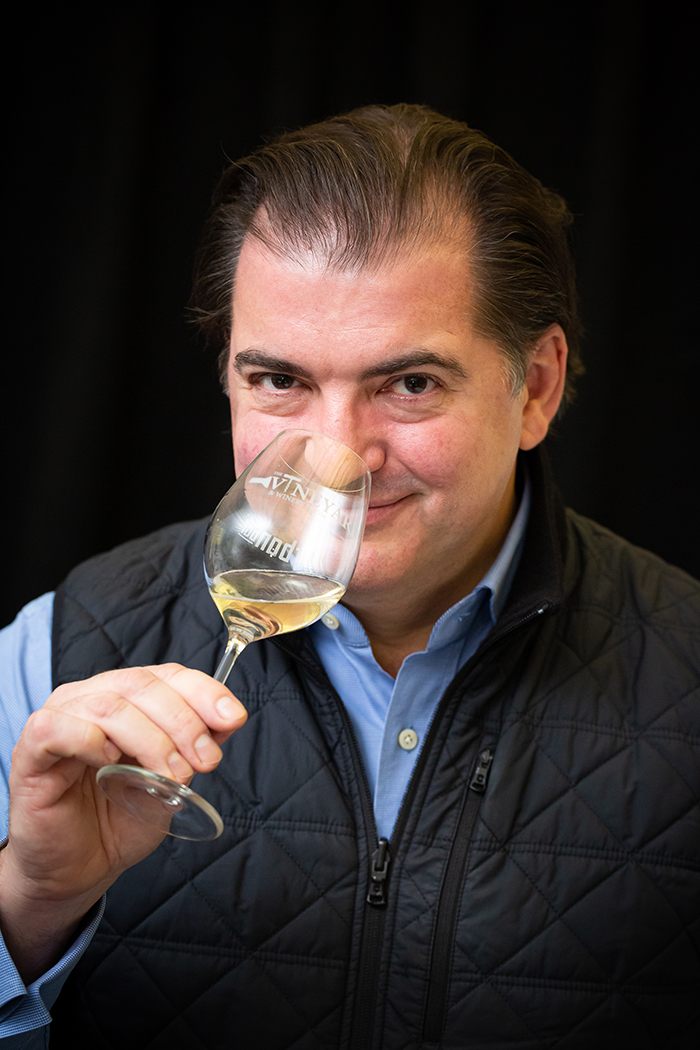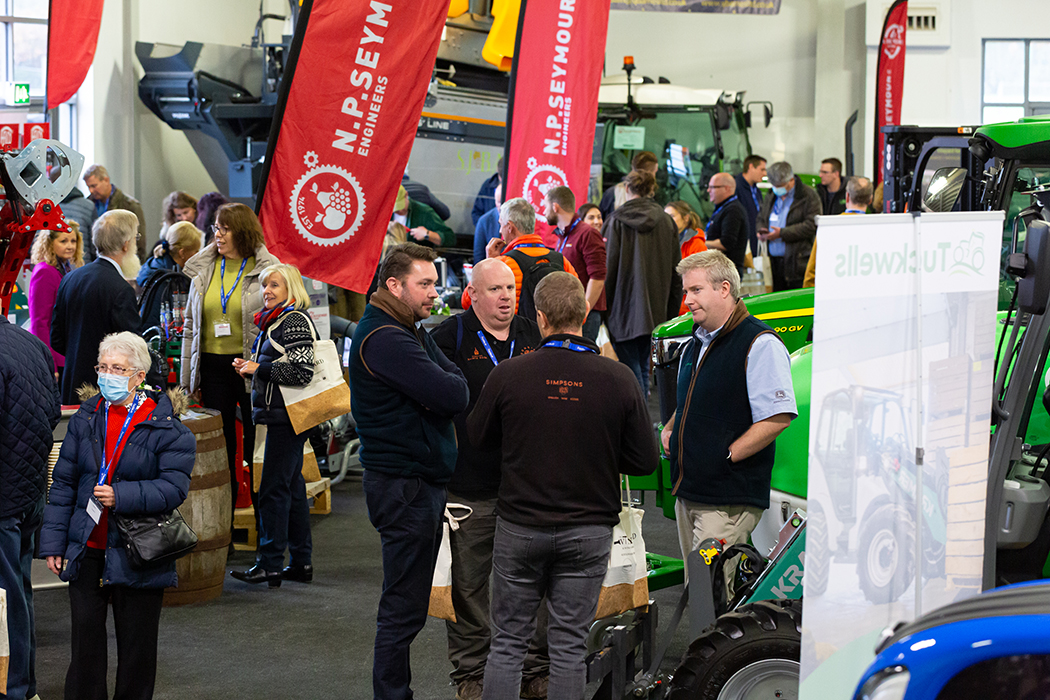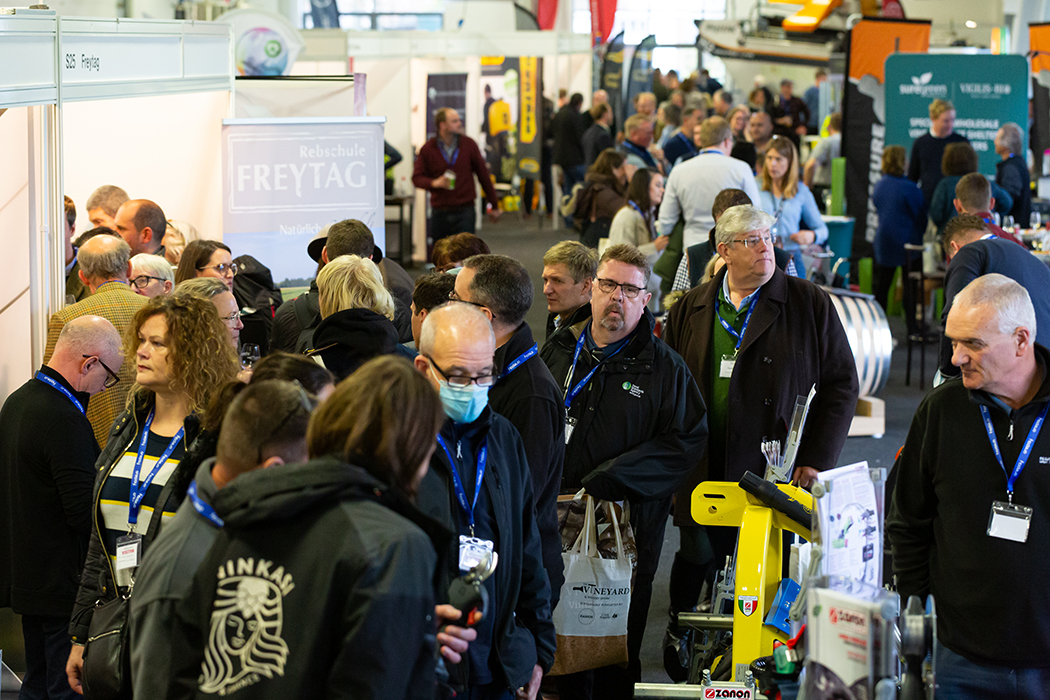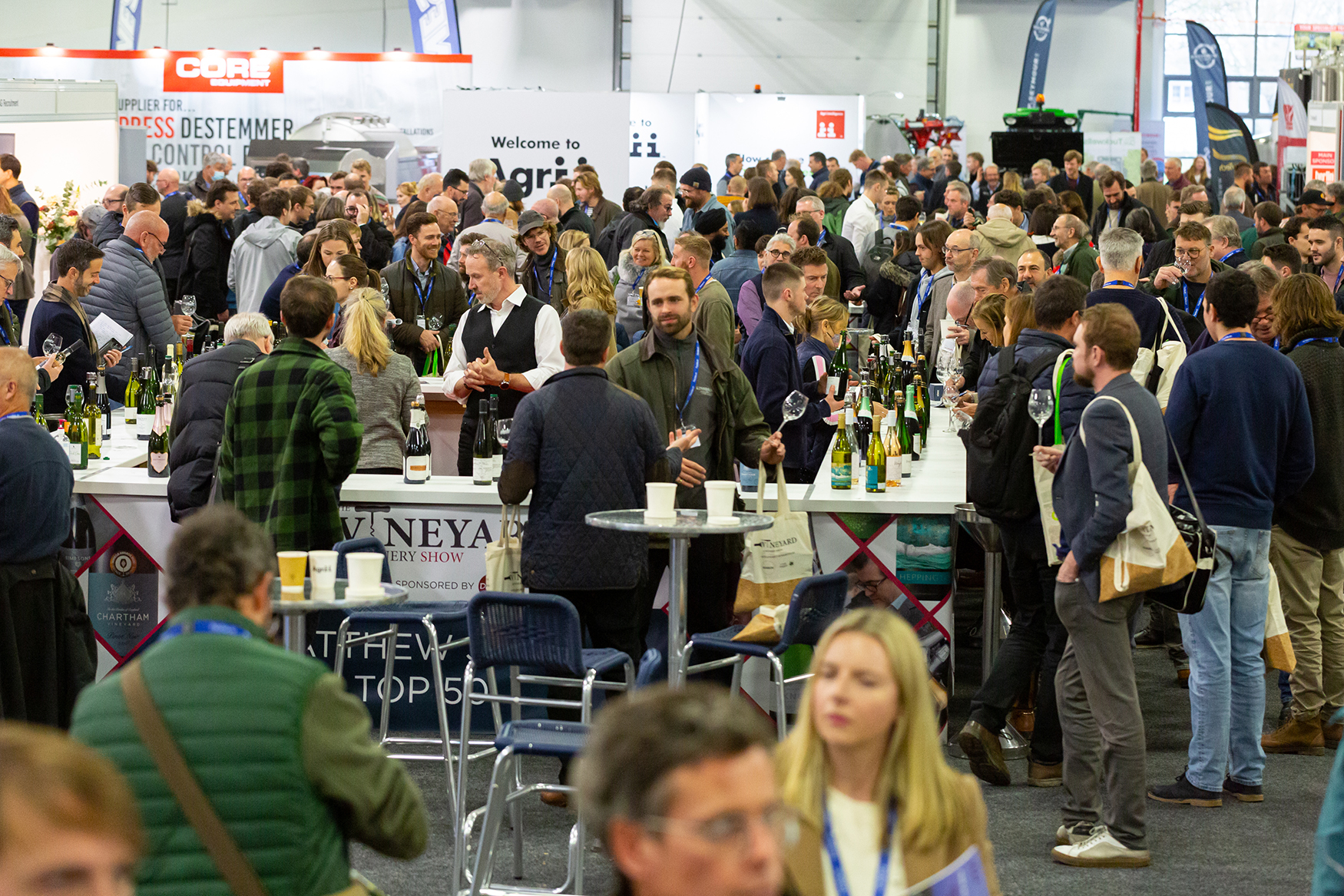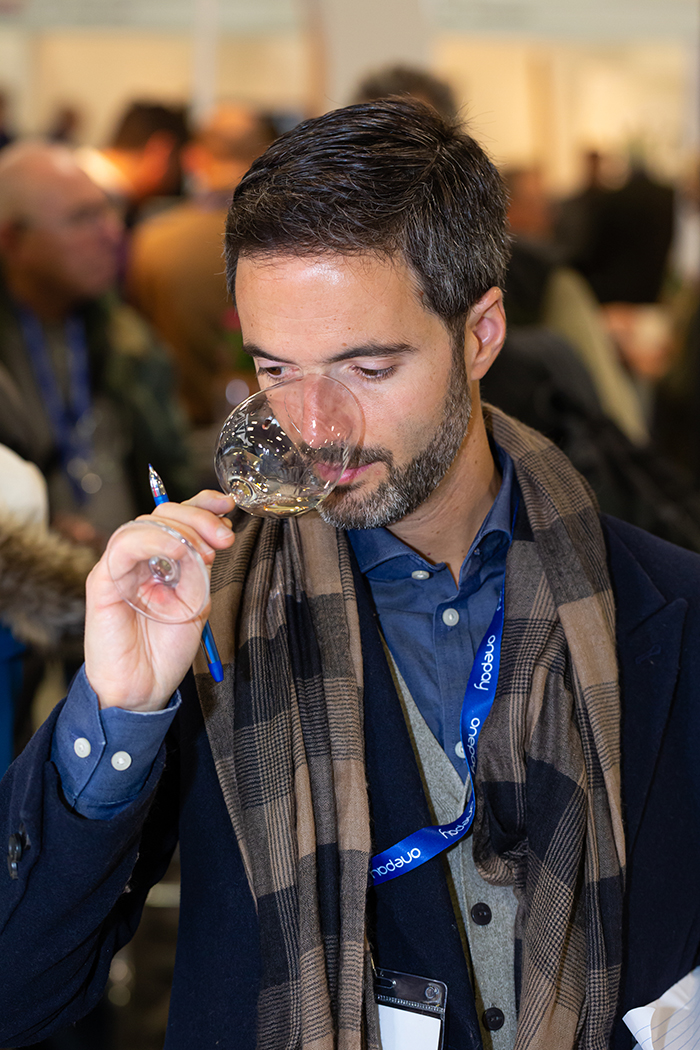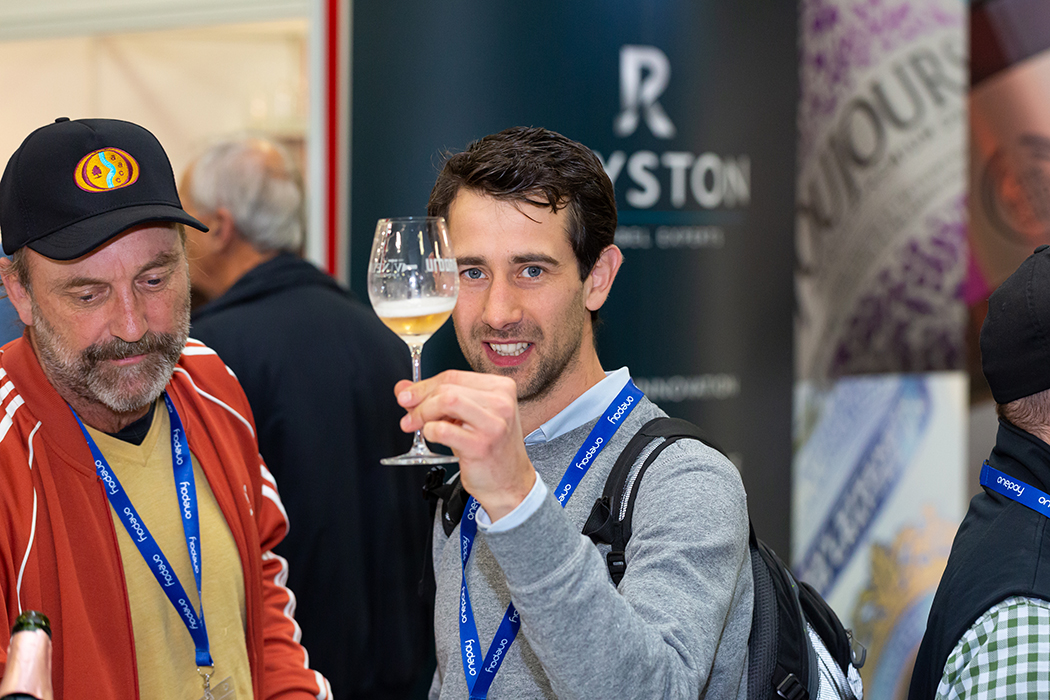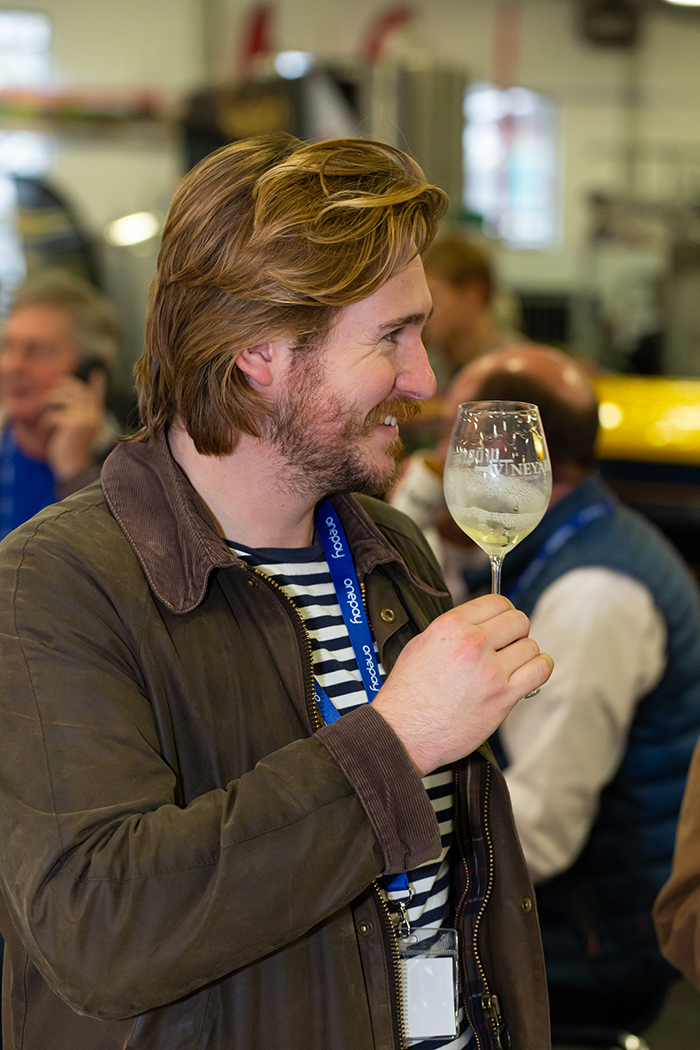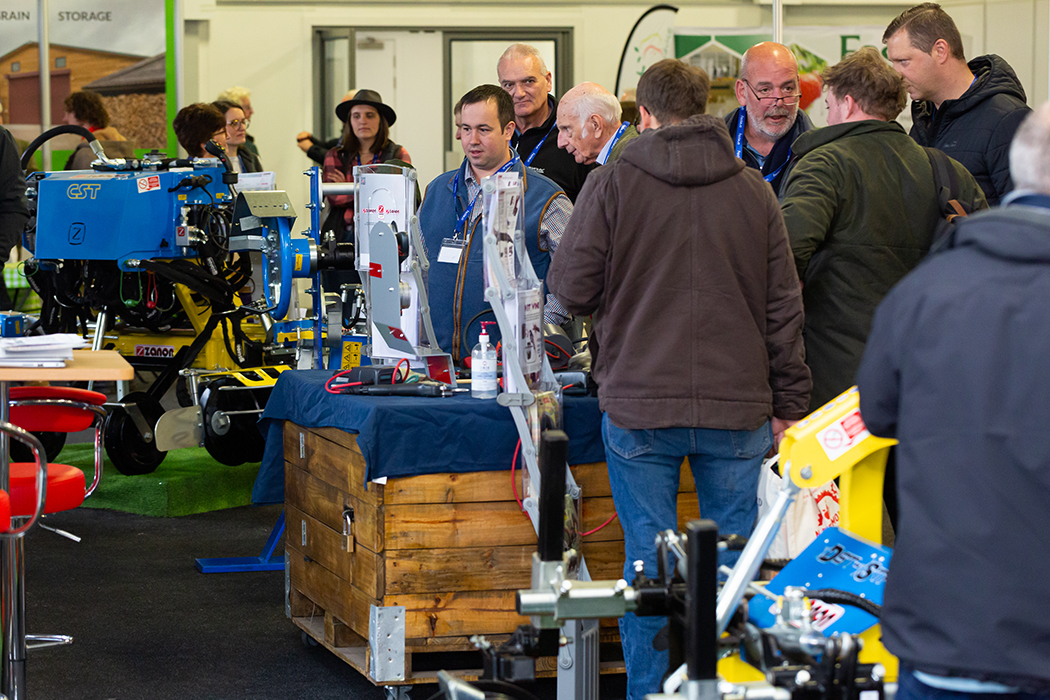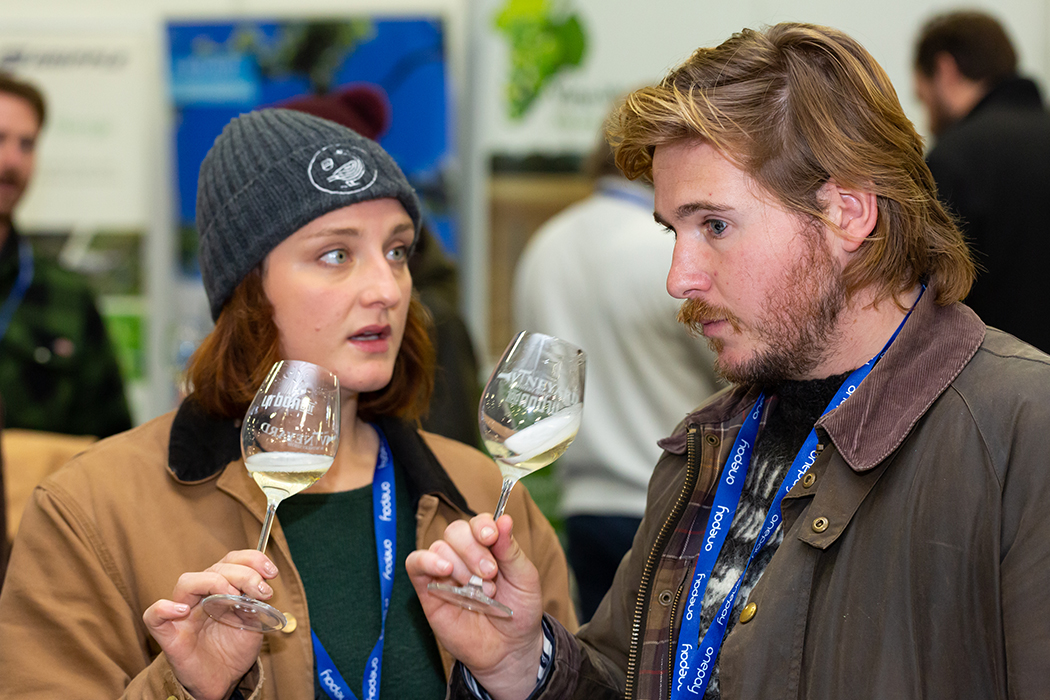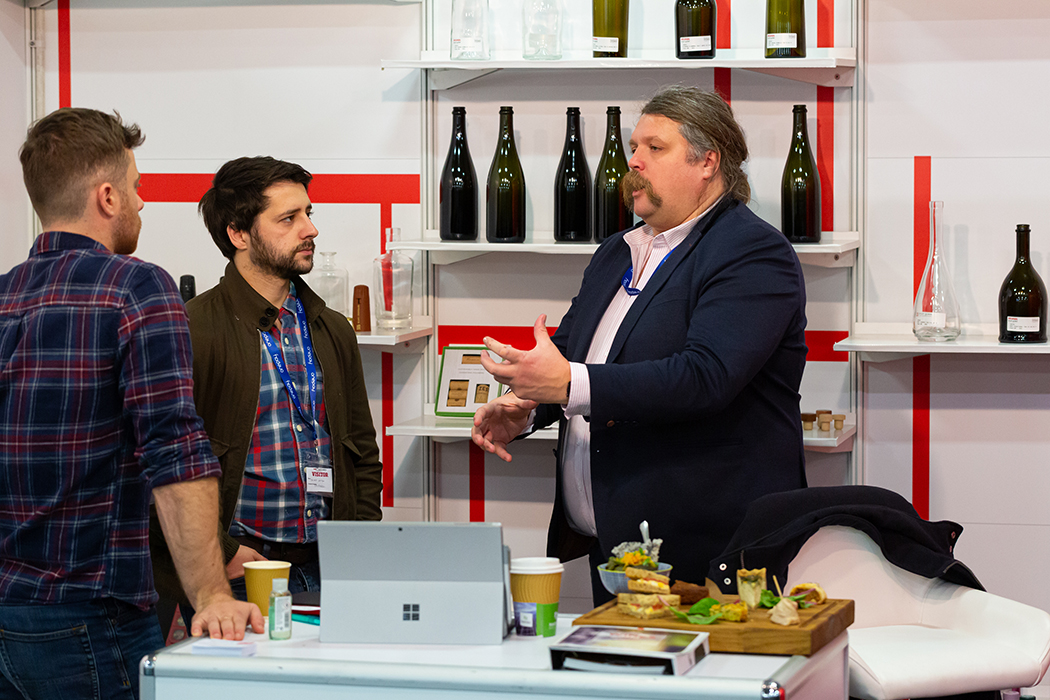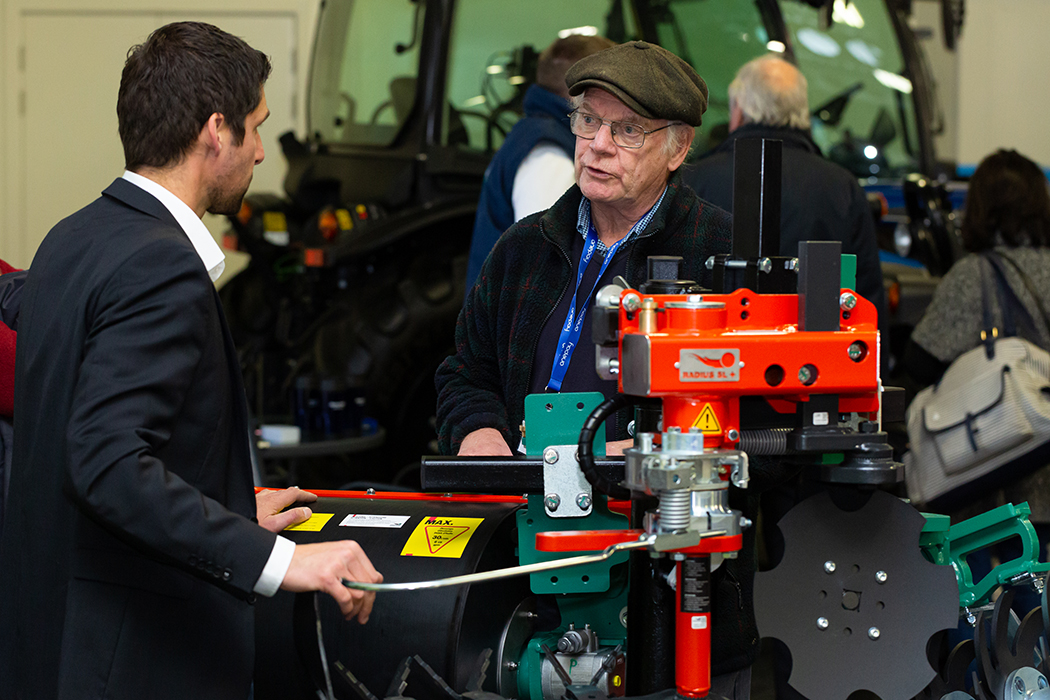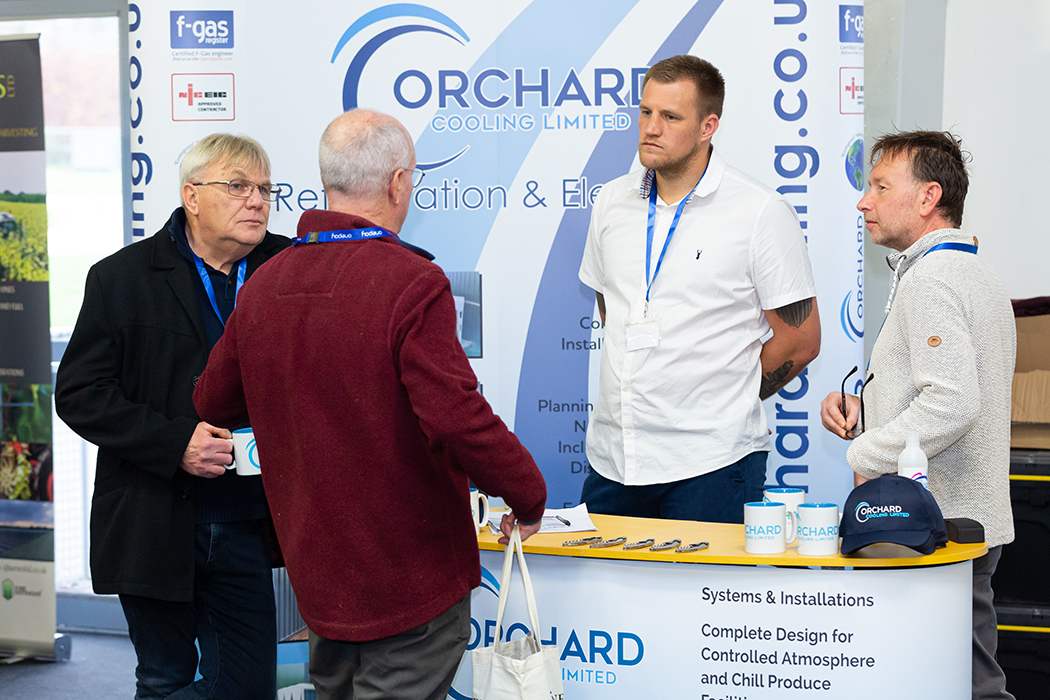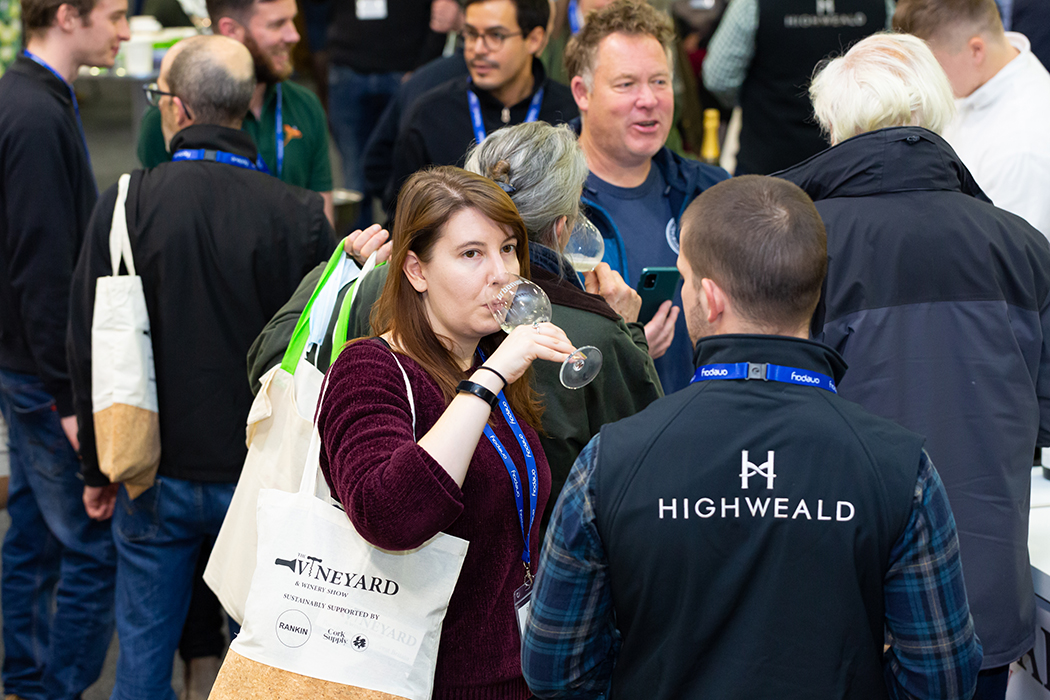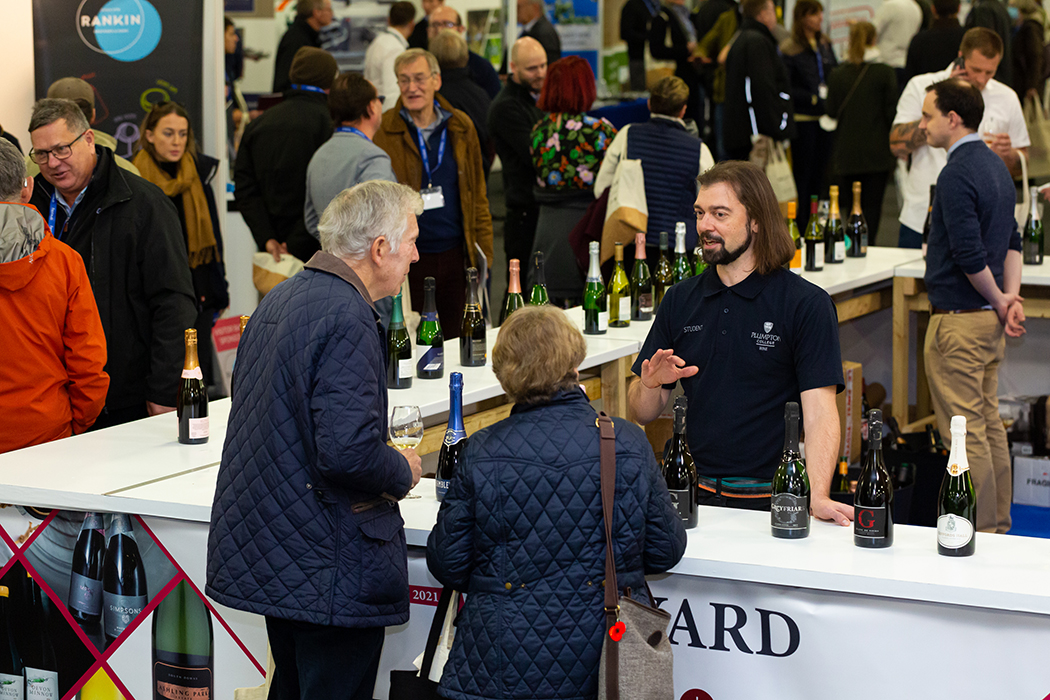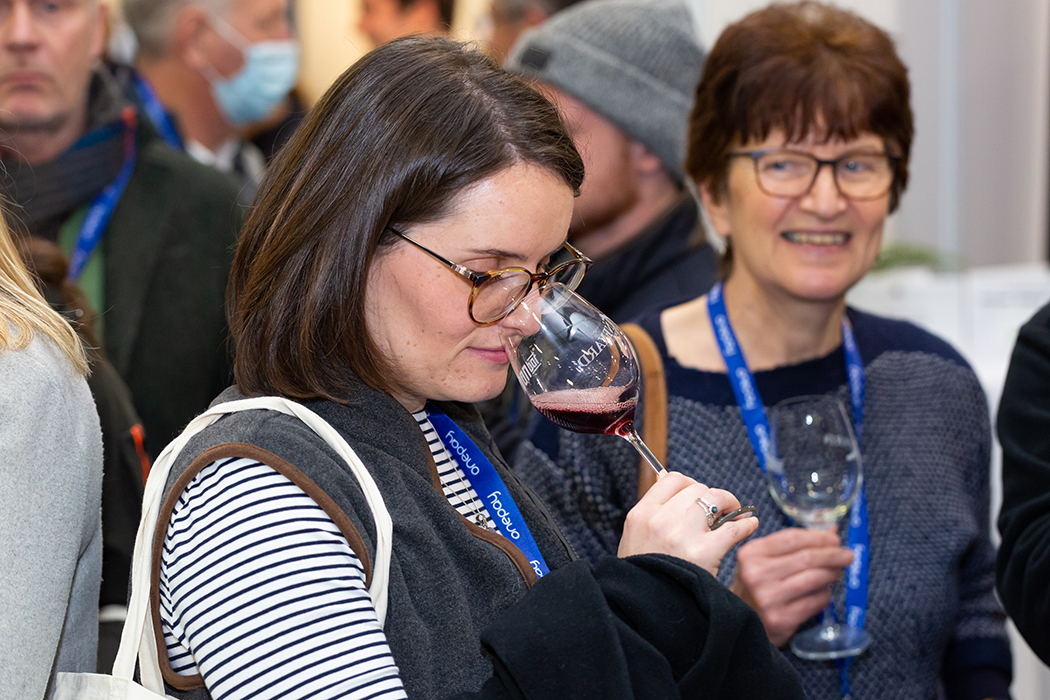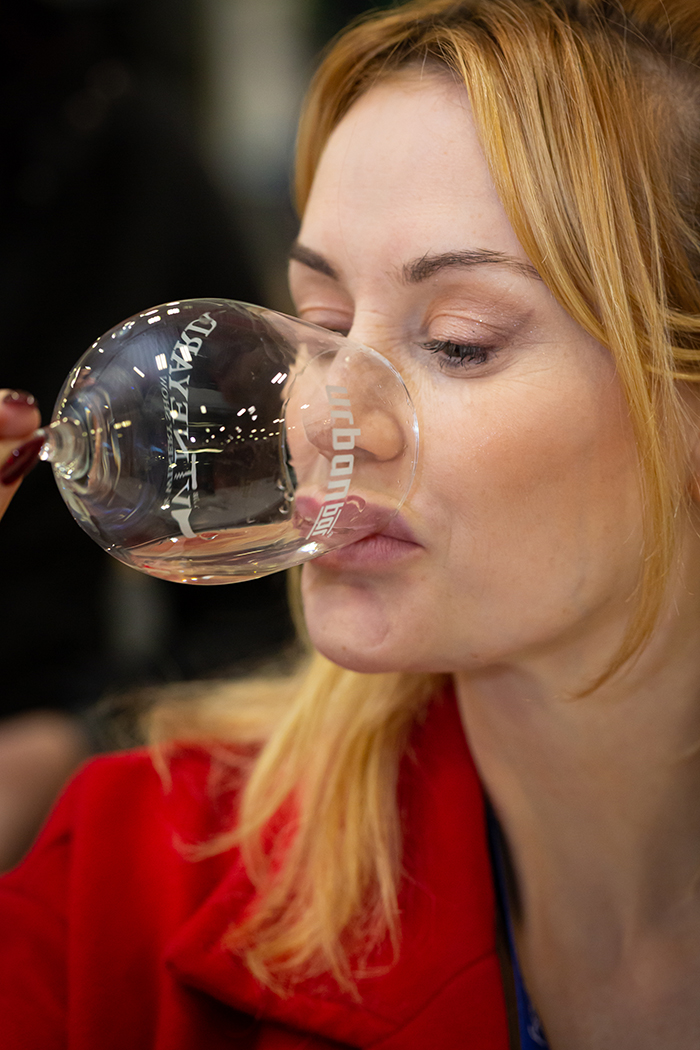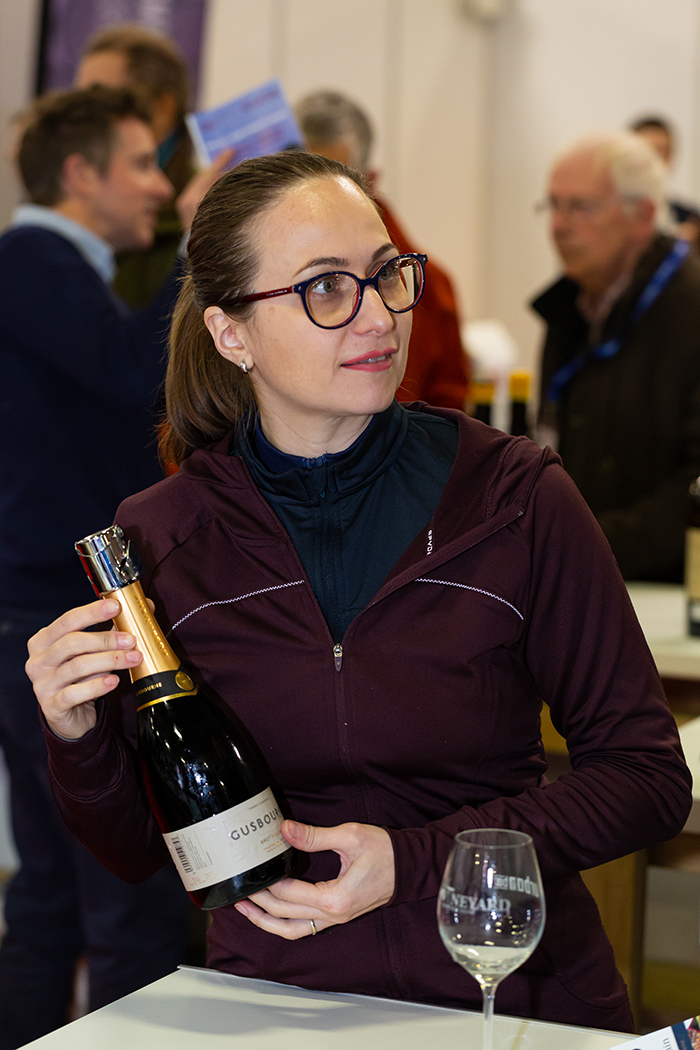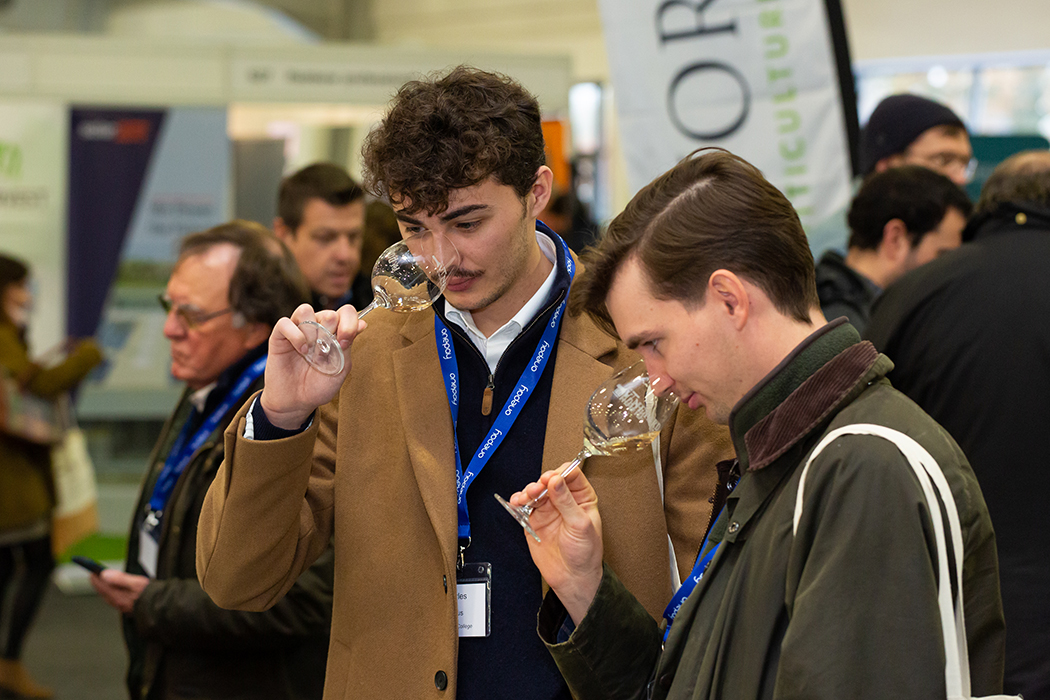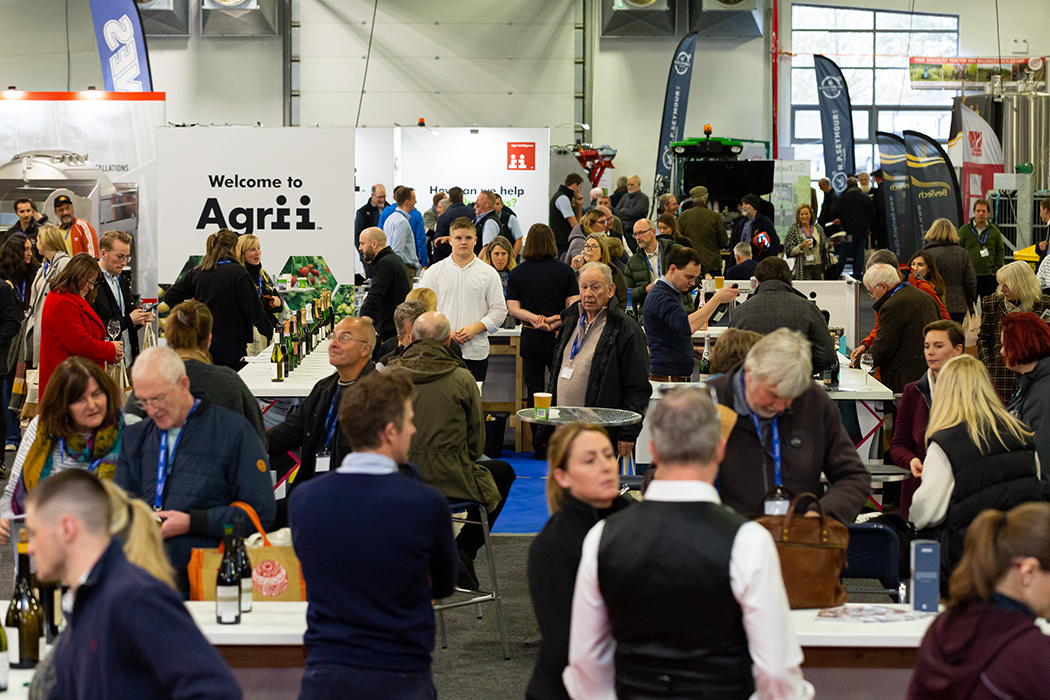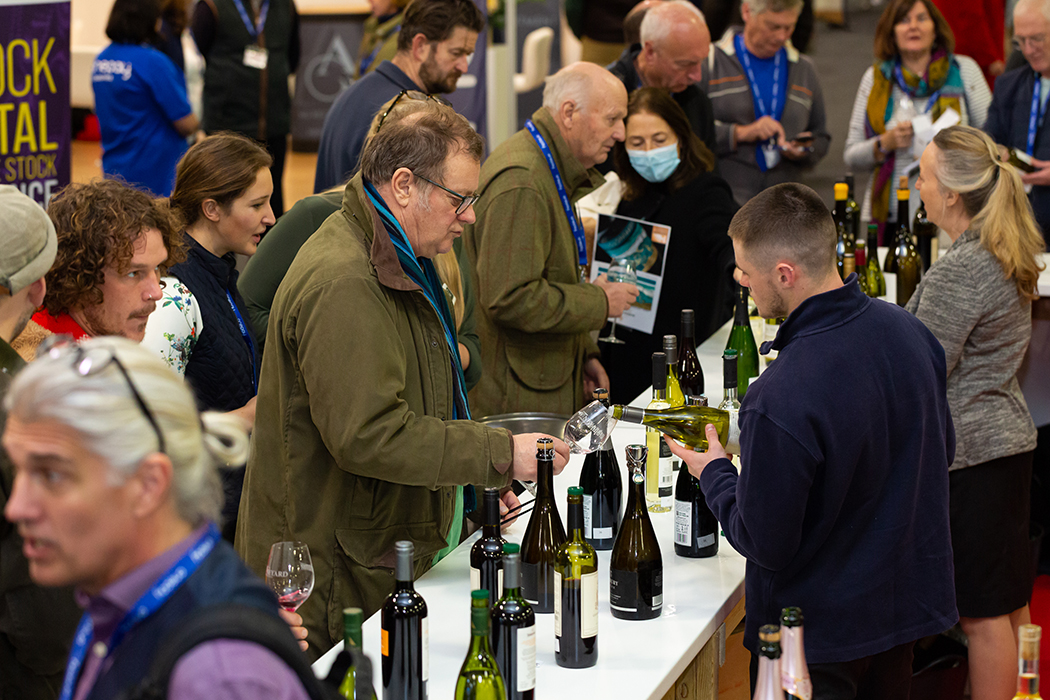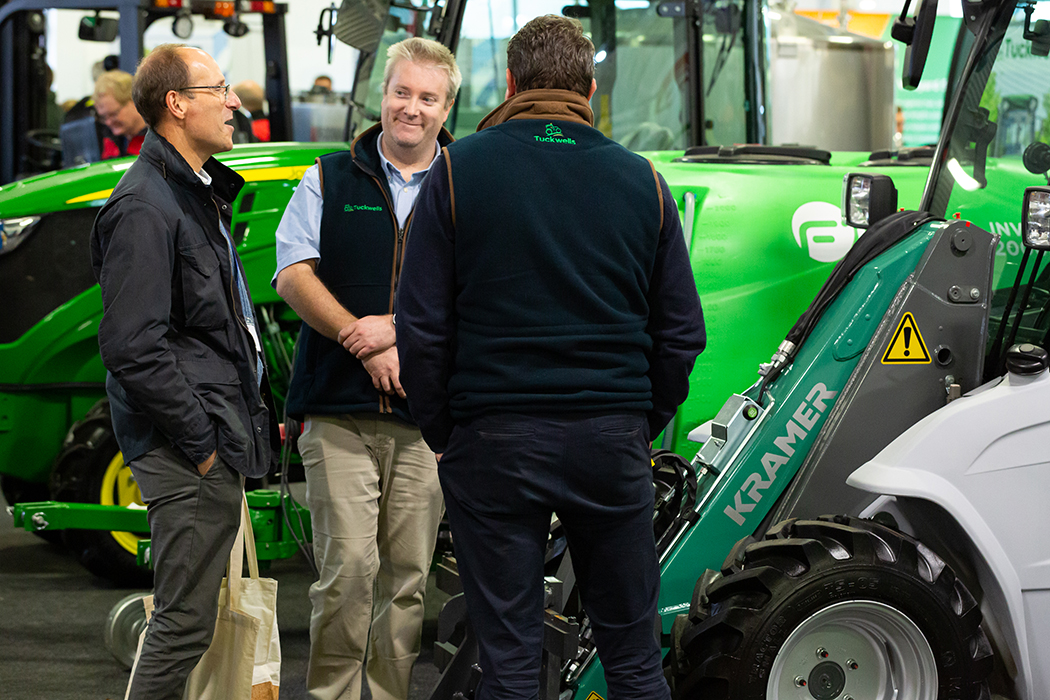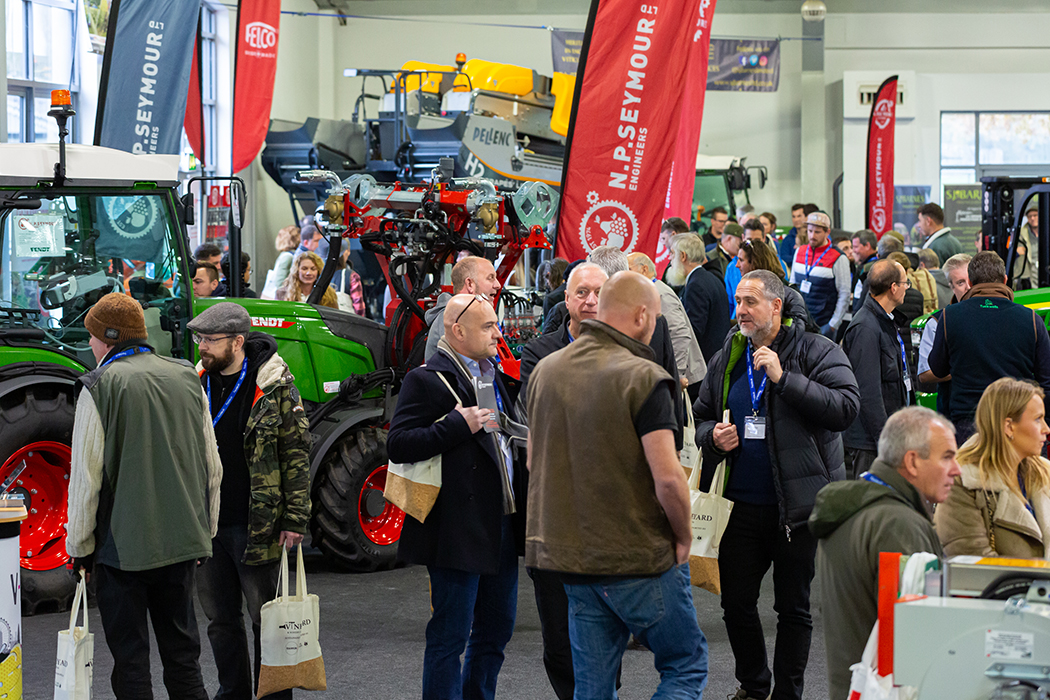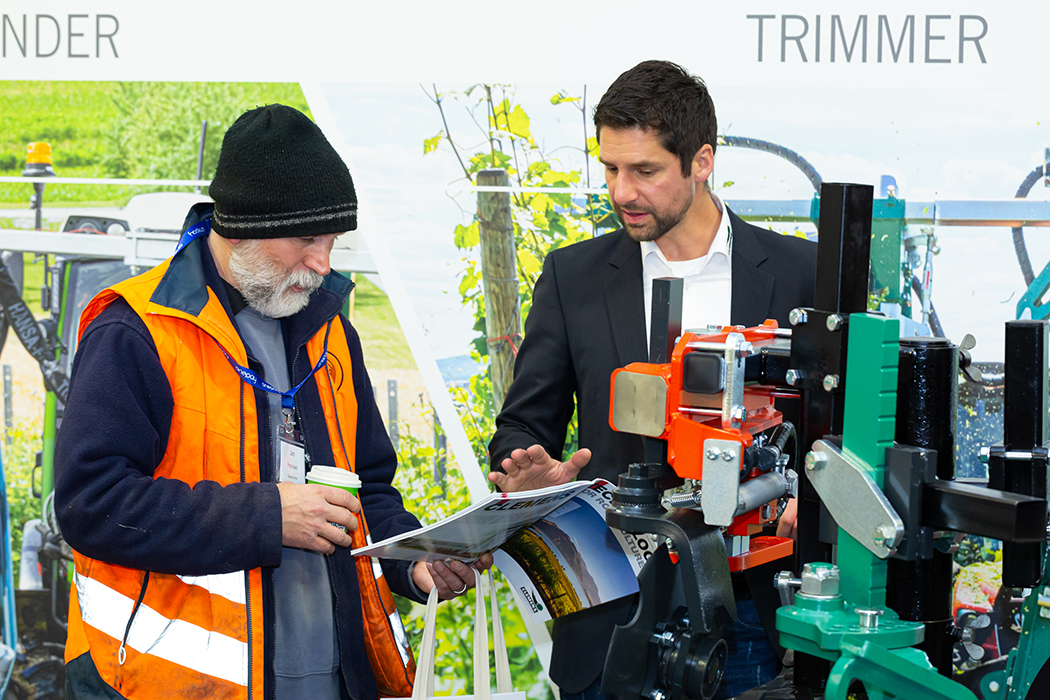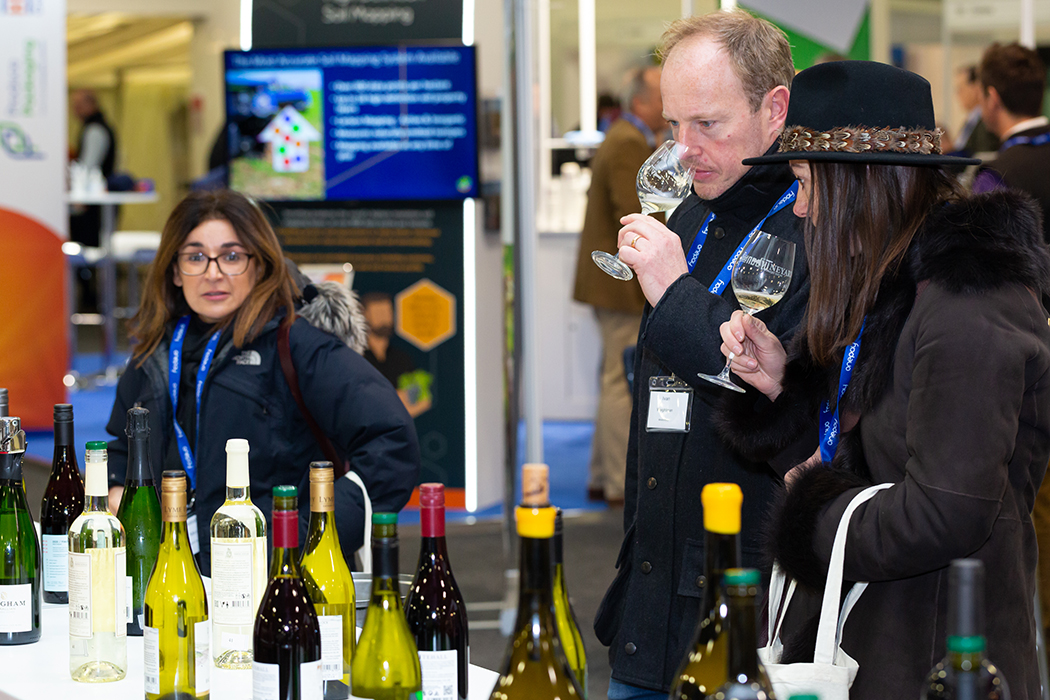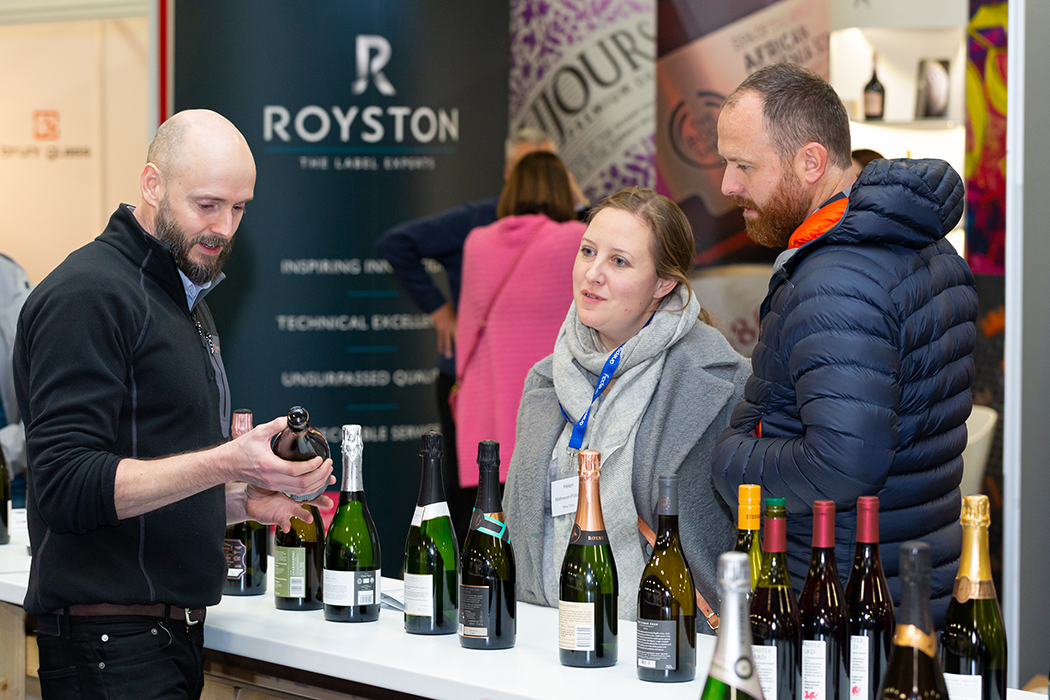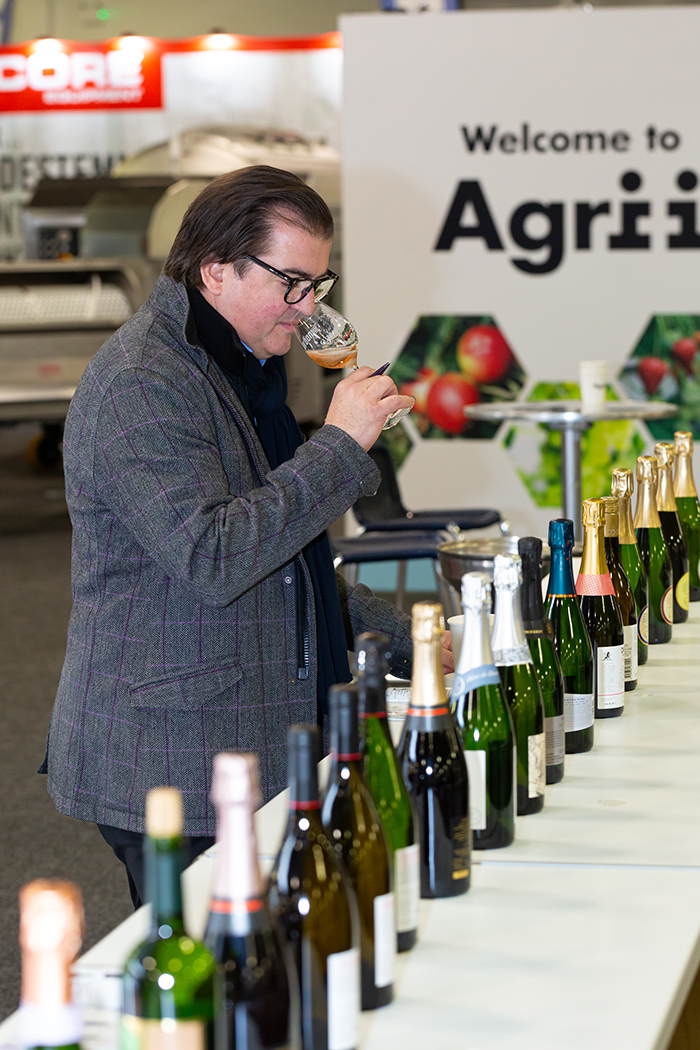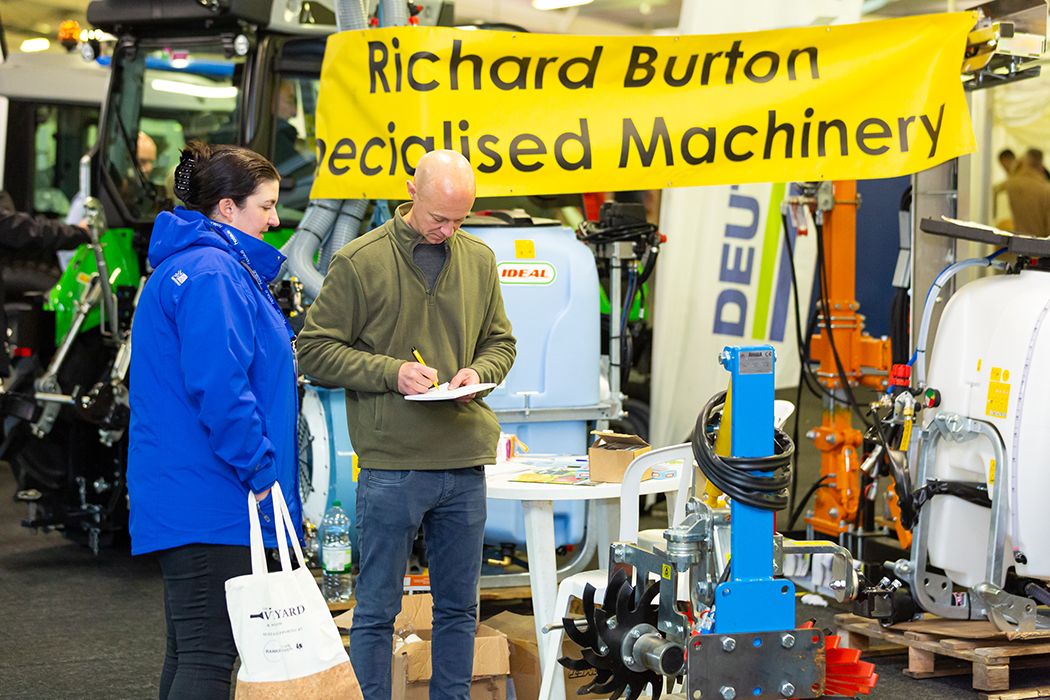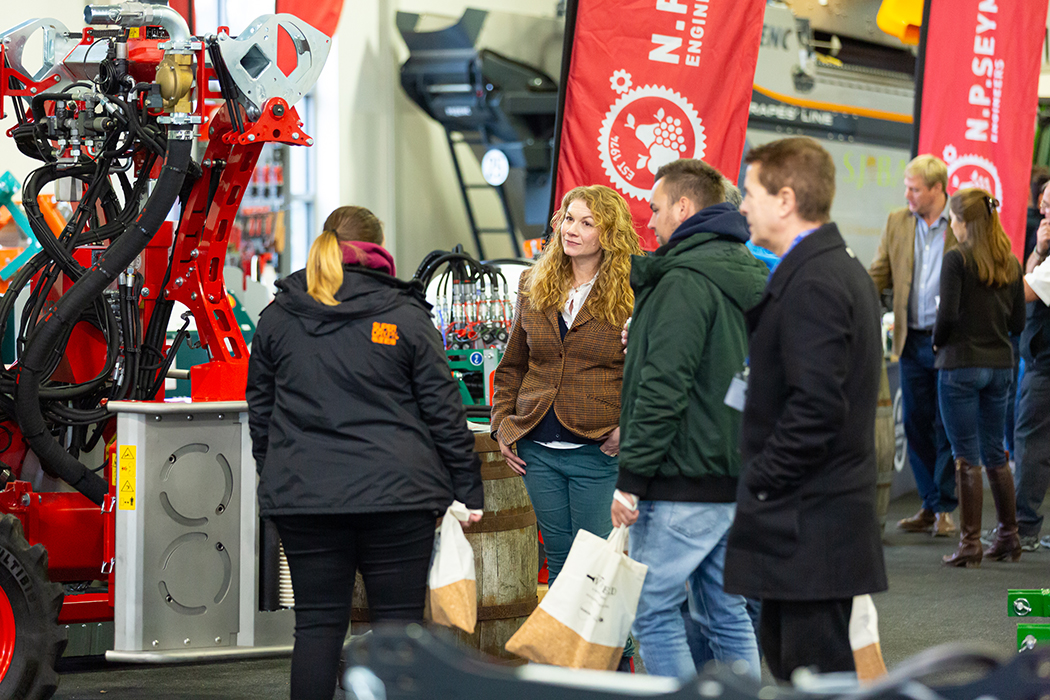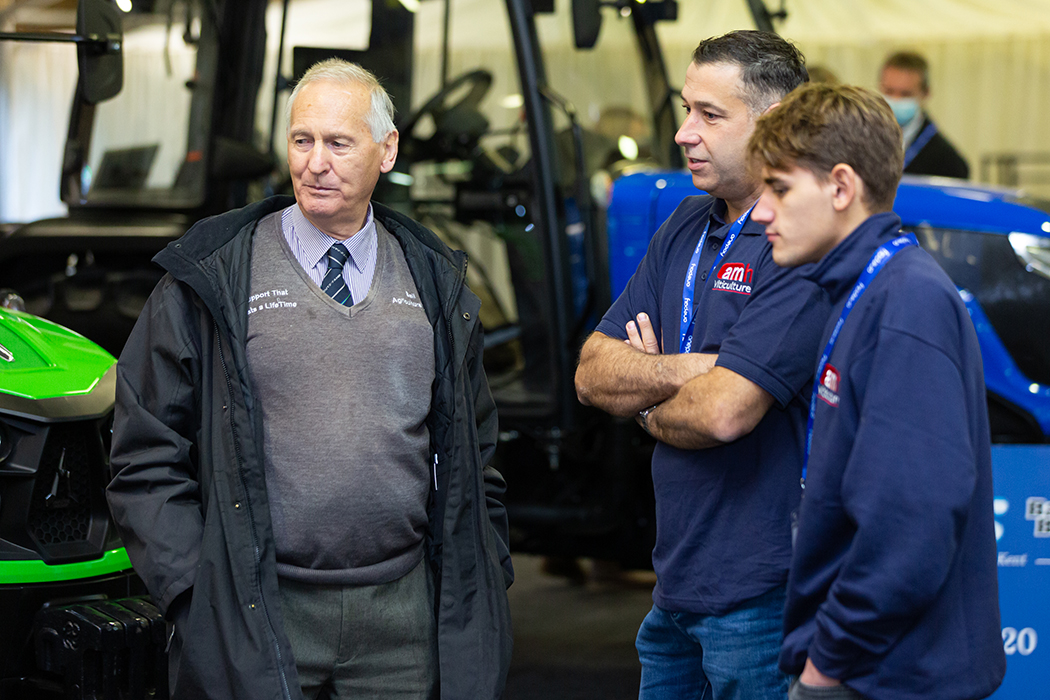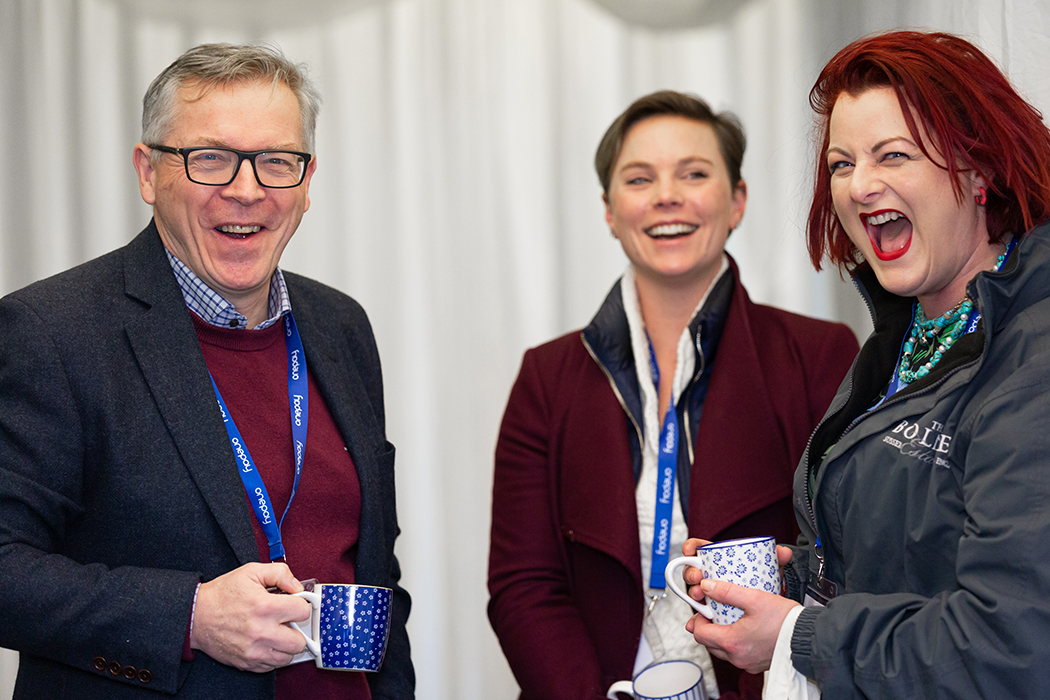The first ever Vineyard & Winery show took place on
24 November 2021 at the Kent County Showground and proved to be an outstanding success – with a vibrant buzz reflecting a fast growing and buoyant wine sector. Jo Cowderoy, Vineyard magazine editor, reviews the events of the day.
This historic event, organised by the Vineyard magazine team, was a long-term dream of Show President, Julian Barnes, owner of one of Kent’s oldest vineyards, Biddenden. His vision was to hold a show on the scale of events seen in other wine regions around the world – and this was more than amply achieved.
The free to attend one-day event attracted over 1400 visitors, had 80 trade exhibitors, a Wine Hub with the UK’s 100 top wines on offer, as well as a structured tasting from globally renowned wine writer, Matthew Jukes. Expert speakers, and a full day of technical seminars, informed a packed audience on topics current and pertinent to the industry.
Suppliers to the industry had the perfect event to showcase their latest machinery, equipment, technology, and professional services – it was a long-awaited opportunity for the whole industry to network and undertake face-to-face business. Both well-established vineyards and prospective growers were able to speak to experts and seek professional advice.
Throughout the day, in the fully packed seminar hall, expert speakers shared their knowledge and inspired discussion across all disciplines: wine marketing, grape growing and winemaking. These included presentations that provided comprehensive information for new entrants, along with, building a sustainable business through wine tourism, achieving yield and quality fruit, and the wine chemistry behind malolactic fermentations for acid management.
The Kent County Showground did not disappoint and provided the perfect venue, with all exhibitors, activities, and events under one roof. Local catering and free coffee made it an enjoyable, as well as valuable day out. Beautifully etched glasses were gifted to each visitor, along with an individual disposable spittoon – helping make the day Covid-19 safe.
Topping the bill and opening the show were Wines of Great Britain’s CEO Simon Thorpe MW and keynote speaker Ben Kantsler, Nyetimber Vineyard’s head viticulturist. Simon welcomed visitors and made reference to the fact that our growing industry is, “attracting more and more talent, both home-grown and from abroad,” as he introduced Australian-born, Ben Kantsler.
Ben started his keynote speech by thanking the headline sponsors, as without their support the show would not have been possible. These included CLM, Berlin Packaging, Hutchinsons, Vitifruit, Royston Labels, Harvest Green Developments, Urban Bar, Elite Refrigeration, Rankin Brothers & Sons, Defined Wine and Ferovinum. Ben also urged everyone to attend the fantastic seminars and commented, “my learned peers discuss a wide range of topics that impact our industry. These relate to changes in climate, financial considerations when investing, business diversification and the practicalities of qualitative fruit and wine production. On top of this there are numerous suppliers in attendance that also help the knowledge transfer process.”
Ben, who is originally from Margaret River in Southwest Australia has been working in the UK with Nyetimber since 2015. “What I would like to talk to you about today is how I found myself in the wine industry, my experiences in Australia working through an expanding and then contracting market and what learnings could the UK take from this,” Ben started.
“My first experience drinking English wine was Christmas 2014. My sister had arrived back from Europe with a bottle of sparkling wine. I still remember our appreciation of the subtle citrus and brioche notes. I instantly thought my sister has been on a glamourous weekend away in Champagne. Without being too discourteous, I was truly amazed when I discovered this wine came from England. That experience really resonated with me and challenged my pre-conception on what growing requirements are needed for fine wine. In a simple twist of fate, a few months later the same producer was advertising for a viticulturist and a new chapter started in my life later that year.
“It is a great privilege to be speaking here today representing Nyetimber. There are several core values associated with the brand but the two that echo the greatest sentiment to me are embracing innovation and a pioneering spirit. Who would have thought a brave decision in 1988 to plant Chardonnay in the UK may be the reason why I am here speaking to you today!
“When I started, we had 150ha in production now the business has expanded to 350ha under vine. My first years took a lot of work, including learning about general patterns in the English weather, the different legislation in the UK and the wider wine industry in general. I still feel I have much to learn – but I can spot a northerly airstream in April now!
“The strong international demand that originated in my earlier years working in Australia resulted in effectively tripling the area under vine over a 20 year period. A very similar trajectory can be seen in the UK now, which has quadrupled its area under vine area since 2000. So personally, I do see some similarities in my earlier years with the UK now.
“One thing 2021 has reminded us – growth is good when you have stable markets and consistent supply and demand but when this balance is disrupted changes will occur. In Australia’s case, eventually the Aussie dollar increased in value thanks to another boom in mining, and suddenly, our wines became more expensive in a new global market and struggled to compete with other new wine regions. With wine demand on the decline, vineyard expansion ceased and we in the industry had to adapt to a new market of oversupply. One of the worst outcomes was that even though there was an oversupply in the country the stronger dollar made wine imports more attractive, and suddenly many Australians were drinking NZ Sauvignon Blanc much to the disgust of many in the industry!
“I am referencing these events in Australia today, as I understand the current fear some people have in our industry regarding periods of market expansion and potential contraction. Increased globalisation does mean markets can shift very quickly and given events like the pandemic who knows what is around the corner. If, as an industry we continue to focus on quality, do the hard work to market the varietals that our natural resources can deliver and provide a good foundation for industry to innovate our market will continue to prosper.
“In my short time in the UK, I am already seeing more of these qualitative values within industry compared to when I first started. My first industry event was a WineGB trade tasting in London. In my quest to learn about English wine I think I tasted every entry and was surprised to see several wines with noticeable faults. Some of these were production related (for example a result of light strike or recent sulphur addition) and some were just a general imbalance, but it did impart some qualitative concerns at the time.
“Since then, I continue to benchmark English wine and the more I do, the more these qualitative concerns are fading. I would like to commend the industry collectively for this improvement as Great British wine needs to be our industries greatest strength. The majority of credit for this rests with the producers pushing for their own gains, but I also would like to make special mentions to those educational pathways of Plumpton College, WineGB workshops and general collaboration within the industry. I do feel that for us all to grow and remain resilient in the marketplace, the pursuit of quality needs to be at the core of this.
“With that in mind we should always be very careful to maintain a healthy image for Great British wine and all of us need to be ambassadors for that. To compete we also need to play to our strengths and embrace the resources available to us.
“Our soils in the UK are youthful, healthy, rich in organic matter and biodiversity, our vines are a natural extension to the garden of England. Our climate allows for fresh, healthy canopies and this is portrayed in our delicate orchard characters that come across in our wines. Our cool, extended growing seasons maintain a lovely acidity in our wines that not many regions in the world can achieve or emulate.
“I honestly feel this industry has the requirements to ride out any market fluctuation provided it plays to its strength. The support network within the industry is ever expanding and I would like to think we are all in attendance today partly because we enjoy each other’s company… but more importantly we have a desire to improve our knowledge, benchmark what we do with one another and challenge ourselves for the better.
“Let us improve upon what we already do, innovate where we want change, explore the boundaries of what is possible and work together to strengthen the qualitative image Great Britain has in the world,” concluded Ben.
The seminars
The seminar programme, sponsored by working capital and investment platform Ferovinum Ltd, was chaired by Simon Thorpe. The seminar area was packed, 160 chairs were laid out – but often it was standing room only. One of the speakers, Dr Alistair Nesbitt, did a quick hands-up poll to see who already had a vineyard and who was planning to plant. It transpired that nearly half the audience were considering planting – reflecting the growing interest, and investment, in the UK wine sector.
The first session, ‘Venturing into viticulture in a changing climate’ was aimed at providing information and access to support for new entrants to the UK wine industry.
In his presentation Wines of Great Britain –helping your business to thrive, Simon Thorpe used the analogy of ‘teenage years’ to describe the UK wine industry – growing rapidly but still with a few challenges and ‘bumps’ in the road ahead. He said that as the industry continues to grow it’s vital there is a representative body to help provide the framework and environment in which vineyards and wine producers can build towards a sustainable future. WineGB strives to provide that support, from those considering planting their first vines to the old guard. Simon was able to outline the key strategic pillars and objectives of WineGB as well as giving an overview of the many activities and campaigns planned for 2022.
The future climate for grape growing in the UK was the title of Dr Alistair Nesbitt’s presentation. Alistair is a world respected Viticulture Climatologist and CEO of Vinescapes, a specialist consultancy that supports the technical and strategic development of wine production businesses. Alistair presented early results from the ‘Climate Resilience in the UK Wine Sector’ (CREWS-UK) research project showing how climate change will affect the wine production sector in the UK. He explained how the results of the project will help inform better decision-making, investment, and adaptation, and emphasised the importance of vineyard site selection. Alistair concluded with the opportunities, as well as threats, from a changing climate.
James Dodson, from Vine Works Ltd, a vineyard establishment and management company, provided advice from the ground up in his presentation Setting up a vineyard: the costs and practical considerations. James explained that establishing a vineyard can be a daunting, and expensive, task and that poor advice and mistakes can be costly. With some facts, figures and photographic examples James provided those considering planting a new vineyard information on how to get it right from the start, choosing land wisely and with a realistic budget to see the project over the finish line.
Discover how capital can become your key competitive advantage was the title of Mitchel Fowler’s presentation. Mitchel is the founder of Ferovinum Ltd, a company that provides a tailor-made working capital product. Mitchel explained that access to capital is a key competitive advantage and as UK viticulture produces world-class traditional method sparkling, how Ferovinum is levelling the playing field with its innovative approach to inventory finance, and helping businesses invest for the long term and build resilient brands.
The second seminar session, Building a sustainable business through wine tourism focussed on an increasingly important element of business success – the wine tourist.
Julia Trustram Eve, Head of Marketing, WineGB, has worked in the UK wine industry for some 30 years, was to share WineGB’s best practice guidance. Julia explained that there is a wealth of research from around the world that highlights the economic importance of wine tourism and that the UK, already gaining a global reputation for high quality wine, has great potential to attract domestic and international visitors. Providing insight into understanding the wine tourist, she reminded the audience that not every visitor is there for the wine and that art, music, wellbeing, weddings, cycle and walking tours, may be the attraction for some. Julia also spoke of the benefits of collaboration of vineyards and wineries for both the region and the individual businesses.
Wine tourists in the UK, was the title of the presentation given by Paul Harley, Wine Business Lecturer at Plumpton College. Paul, whose area of expertise includes wine consumer behaviour, focussed on who the principal wine tourists are in the UK and what a tourist expects, and desires, from a visit to a vineyard or winery. Informed by the latest research Paul provided hints and tips to help vineyards maximise satisfaction – and revenue.
Jo Smith, Brand Manager, Wine Garden of England leads an association of Kent wine producers who work together to bring wine tourism to the county. Jo’s presentation titled ‘Best practice in action – working collaboratively to develop regional presence,’ shared the successes and learnings so far for this tourism cluster, as well as their aims for the future. She concluded by announcing a new member of the group – Westwell wines.
The afternoon session focussed on topics pertinent to viticulture and winemaking. The UK as a cool climate viticulture region experiences variable yields, and the speakers were able to share their expertise on the topic. In the winery there are many decisions to be made, and one in particular is the benefit, or otherwise of malolactic fermentation, and the best method of doing or preventing this.
Dr Gregory Dunn, Head of Wine, Plumpton College, trains oenologists and viticulturists at undergraduate and postgraduate level. Greg has also held a range of positions in research, education, and training in the Australian wine industry. In his presentation, Securing sustainable yields in a UK vineyard, Greg emphasised the importance of meeting vineyard yield and composition targets to underpin a productive industry, as large yield fluctuations and low yields threaten the sustainability of businesses and have economic implications through the entire production and supply chain. He explained how the formation of yield potential and its realisation is a complex process, and explored critical factors involved in managing and protecting yield, as well as estimating yield. He also reminded the audience of the importance of site.
Quality vs yield vs style and yield management for organic vineyards was a ‘double act’ presentation by vineyard managers Alex Valsecchi and Matt Strugnell. Matt Strugnell, Vineyard Manager, Ridgeview Wine Estate, and Alex Valsecchi, Vineyard Manager, Albury Organic Vineyard. Together they provided practical vineyard management advice on plant health and good viticulture skills to achieve yield and quality in a challenging climate. They also shared their experiences from both a conventional and organic/biodynamic viticulture perspective.
The final session of the day focused on malolactic fermentation for acid management. Three experienced winemakers shared their protocols in a presentation titled, Malolactic fermentation: why, when and how; Emma Rice, Director and Head Winemaker, Hattingley Valley Wines Ltd, David Cowderoy, Managing Director and Consultant Winemaker, BevTech Ltd, and Nick Lane, Head Winemaker, Defined Wine. The speakers explained how acid management is a key part of winemaking in a cool climate and that deciding to do, or not do a malolactic fermentation is a critical decision – as it affects house style. They discussed the many choices and options with MLF, such as the proportion of the blend, how to do it, and when to do it.
Matthew Jukes structured wine tasting
World renowned wine writer and Vineyard magazine’s regular columnist, Matthew Jukes took 120 guests on a journey of discovery during his hour-long structured wine tasting session. Guest were able to gain exclusive insight into some of the very best wines in the UK, in a relaxed and enjoyable setting. Matthew Jukes’ tasting was sponsored by Urban Bar and HSBC, and all the proceeds from the ticket sales, priced at £20 each, were donated to the Drinks Trust.
The six wines selected by Matthew Jukes for the structured tasting session were:
- Gusbourne Brut Reserve 2018
- Hattingley Valley King’s Cuvee 2014
- Nyetimber Classic Cuvee magnum 2010
- Greyfriars Vineyard Sauvignon Blanc 2020
- Ashdown Estate White (Chasselas) 2020
- Ambriel English Reserve MV (Demi-sec)
The Wine Hub
Another highlight at the show was the 30-metre-long ‘Wine Hub’ – with 100 of the UK’s top wines available to taste on the day; it was buzzing! Sponsored by contract winery Defined Wines Ltd, the table hosted Matthew Jukes’ Top 50 wines, and the show guide provided Matthew’s write up of each of the wines, as featured in his Vineyard magazine column. It was also an opportunity to showcase 50 of the award-winning wines from the 2021 WineGB Awards. A thank you goes to all the producers who kindly contributed their wines.
The main show sponsors
Vineyard magazine is very grateful to the main Vineyard & Winery show sponsors for their support. These are of some of the most prominent businesses in the sector – Berlin Packaging, CLM, Hutchinsons, Royston Labels and Vitifruit.
The exhibitors
The Vineyard & Winery show was buzzing all day, as the 80 crowded trade stands attracted anyone, and everyone, interested in the growing UK wine sector including, vineyard owners and winemakers as well as prospective vineyard owners.
“It is so refreshing to see the growth of our industry and the turnout of visitors is a testimony to that. With established vineyards investing and growing and the many new start up vineyards coming down the track, demonstrating that we have a real success story in the UK – we will definitely be back next year,” said Glyn Scriven, Royston Labels, show sponsor and exhibitor.
“‘The Vineyard and Winery Show was fantastic. A great event for both those currently in the sector and newcomers, providing an opportunity to listen and talk to experts and access suppliers from across the UK and Europe. We’ll definitely be exhibiting again next year,” said Paula Nesbitt, Vinescapes Ltd.
Volker Freytag provided tastings of a range of Piwi wines throughout the day and commented: “We want to thank you and the team of Vineyard magazine for the great organisation. We are happy that we could be part of this amazing show!”
“By 10am we had more leads from the Vineyard Show than the last five other events that we have done combined,” said Nick Rainsley, Hutchinsons
“Well… what a fantastic event – give yourselves a pat on the back! I would definitely like to secure a spot for next year, we would like to increase the size of our stand next year as well so please keep us in mind for the next event. Next year we are planning to bring in some machinery so we would need to discuss the options regarding larger areas and power options. We had a great day and the organisation and planning all paid off in my opinion. Well done guys and thank you for all the help advice and support,” said Wayne Russell, WR Services.

